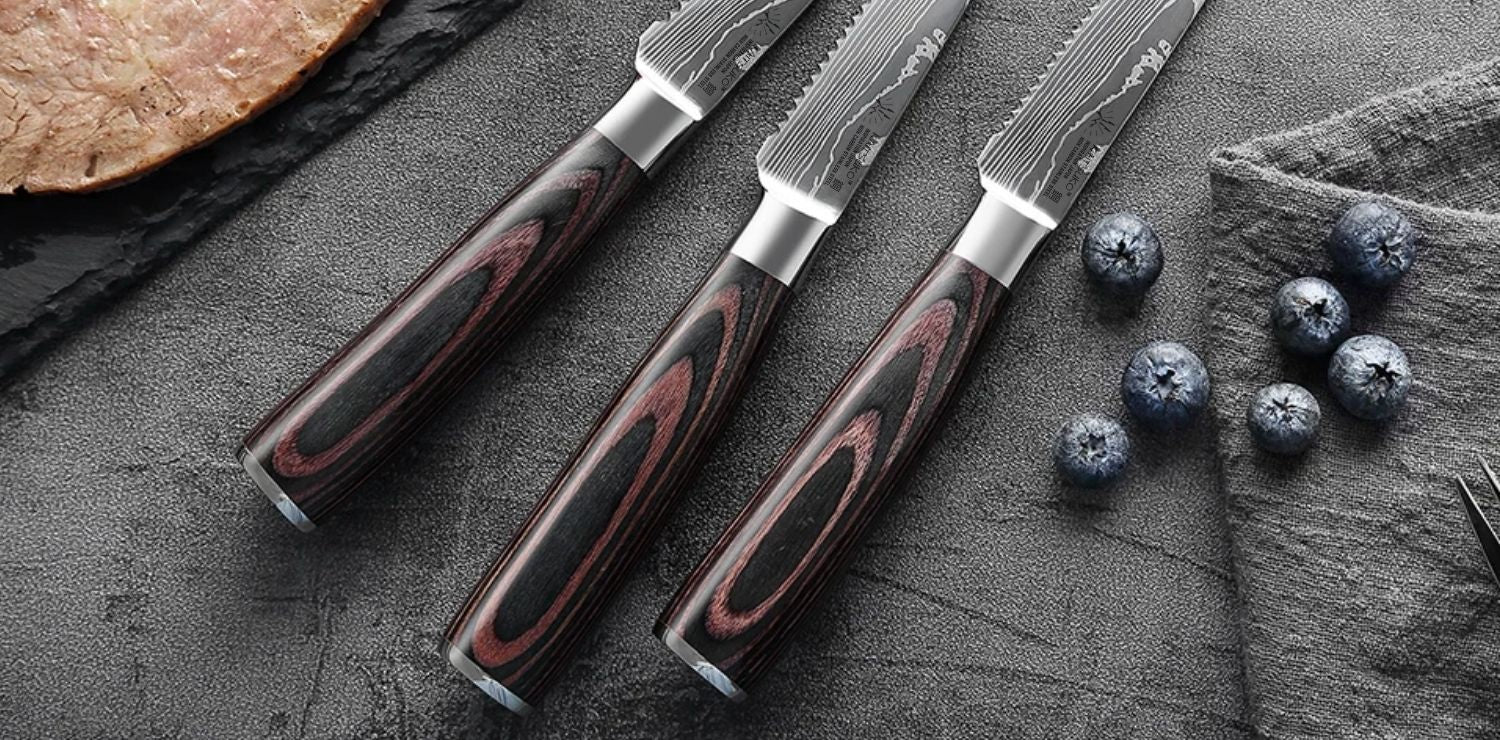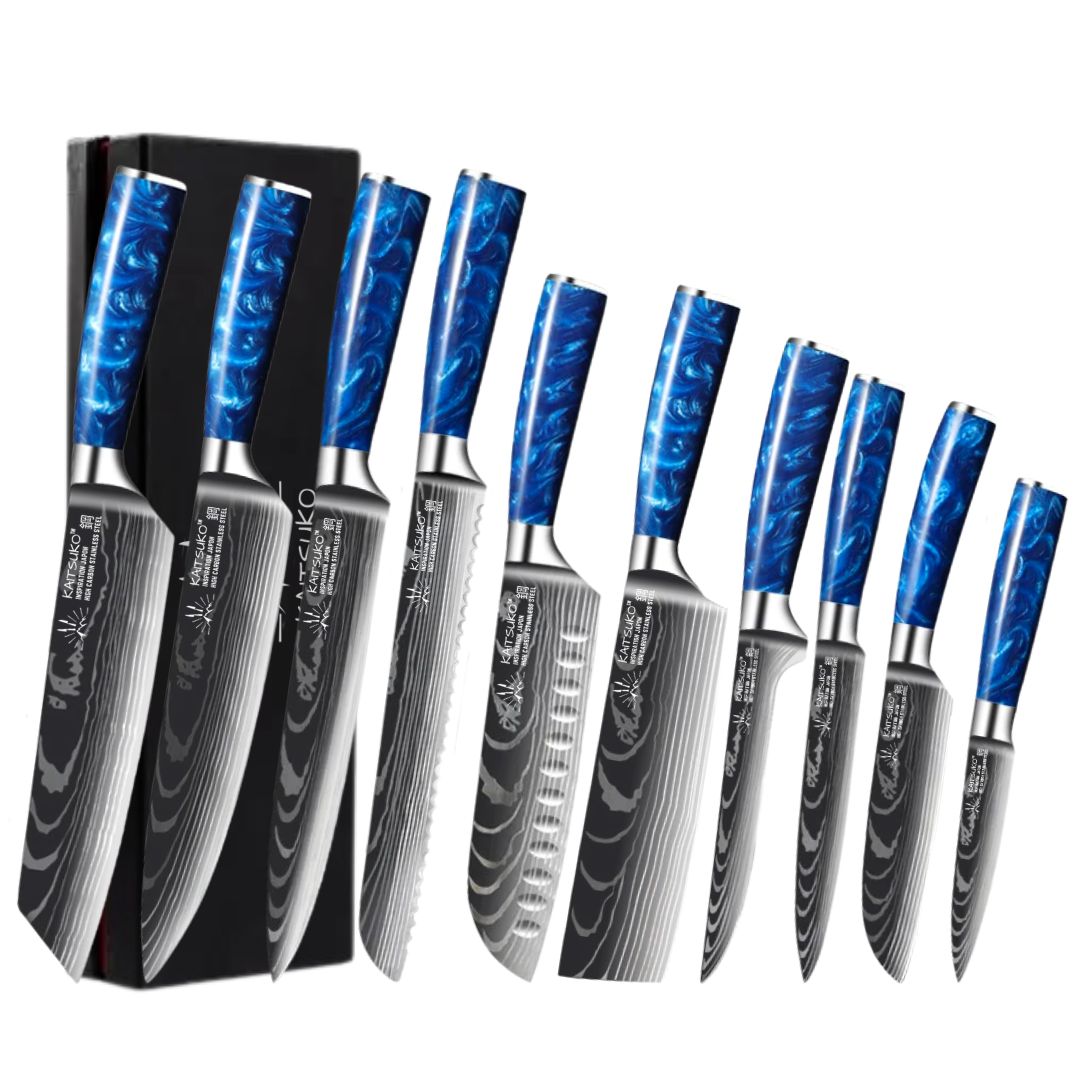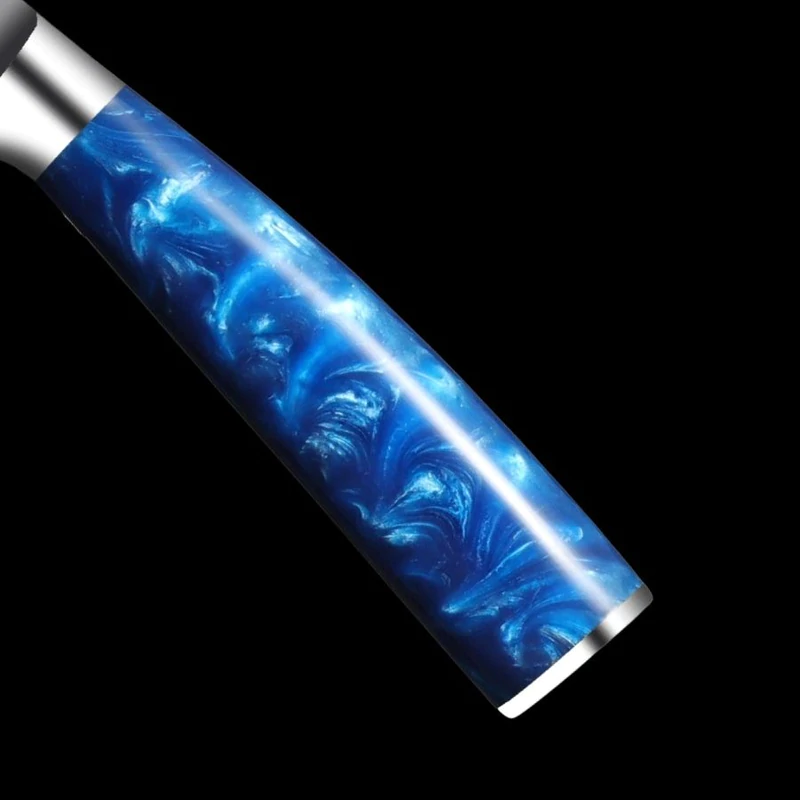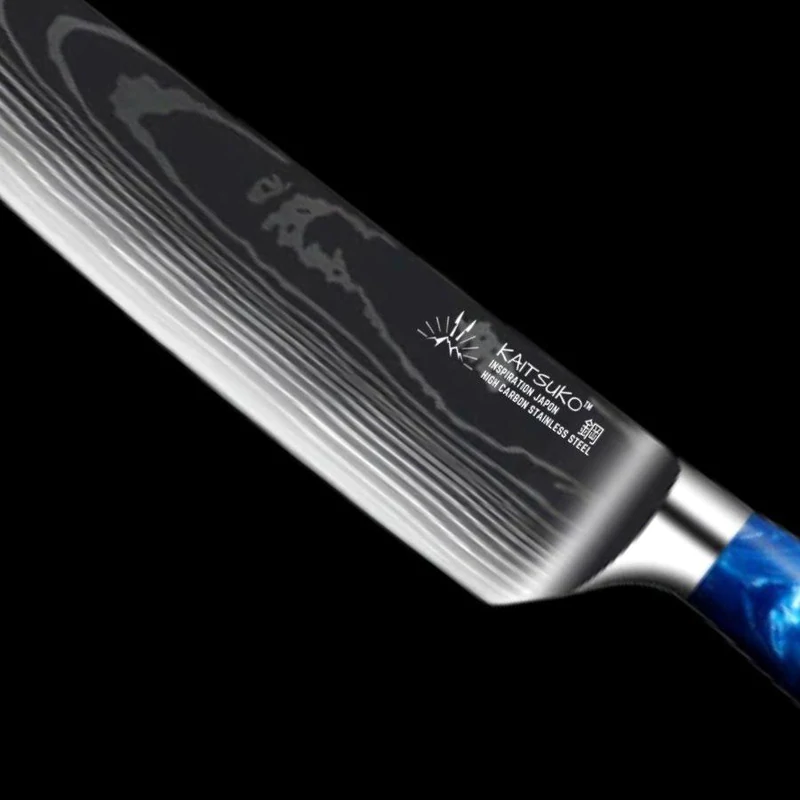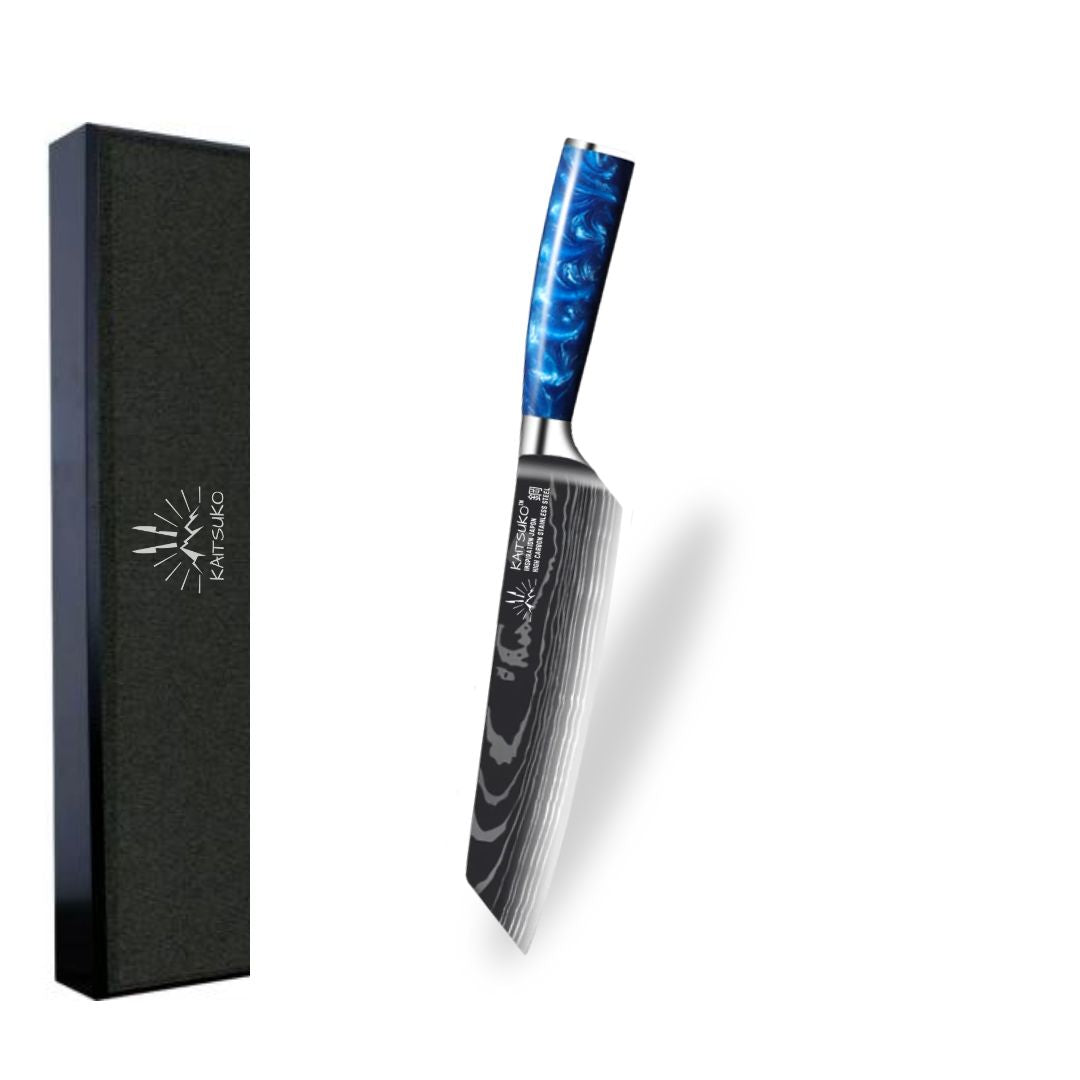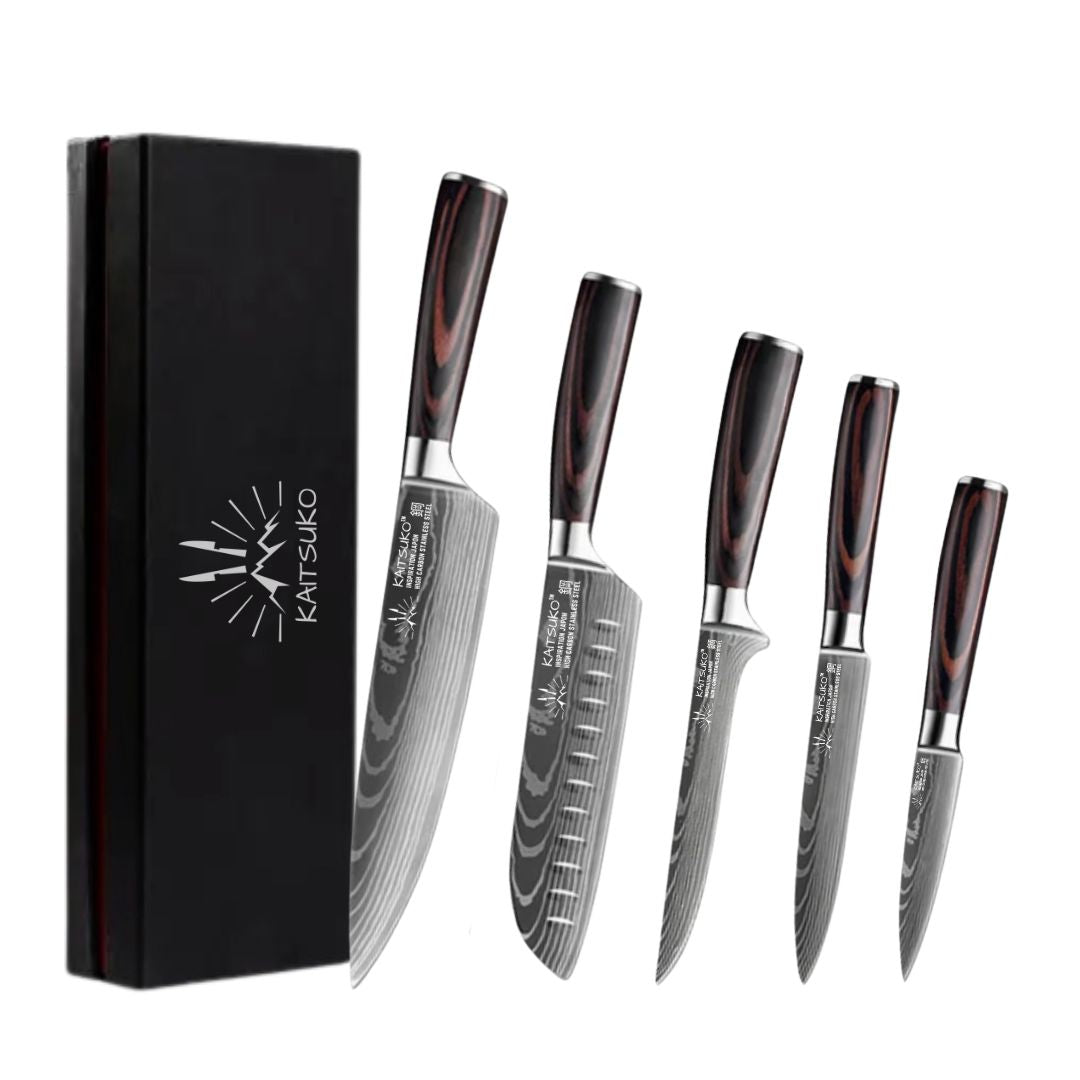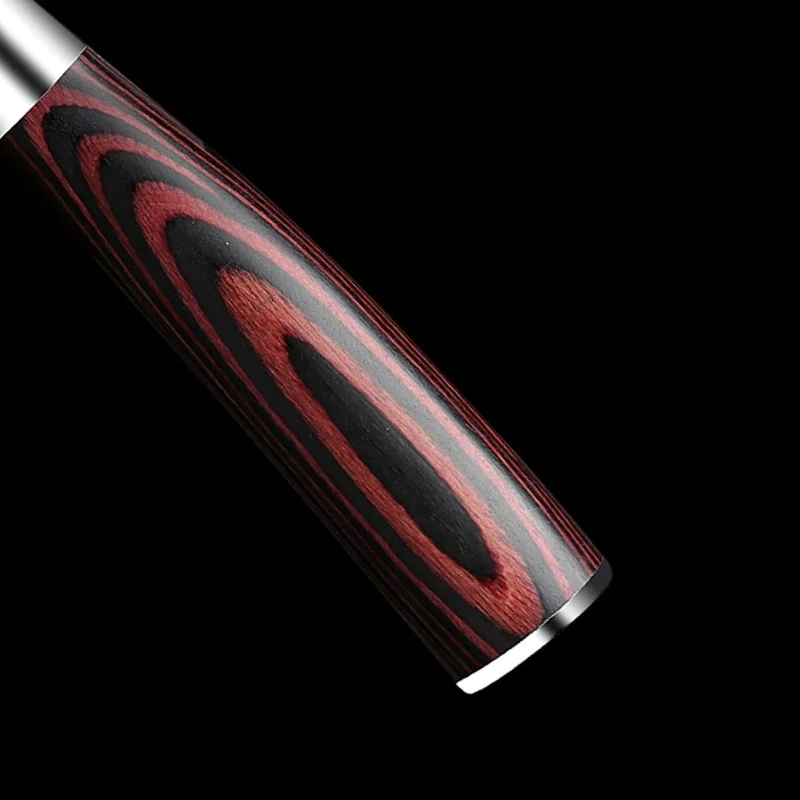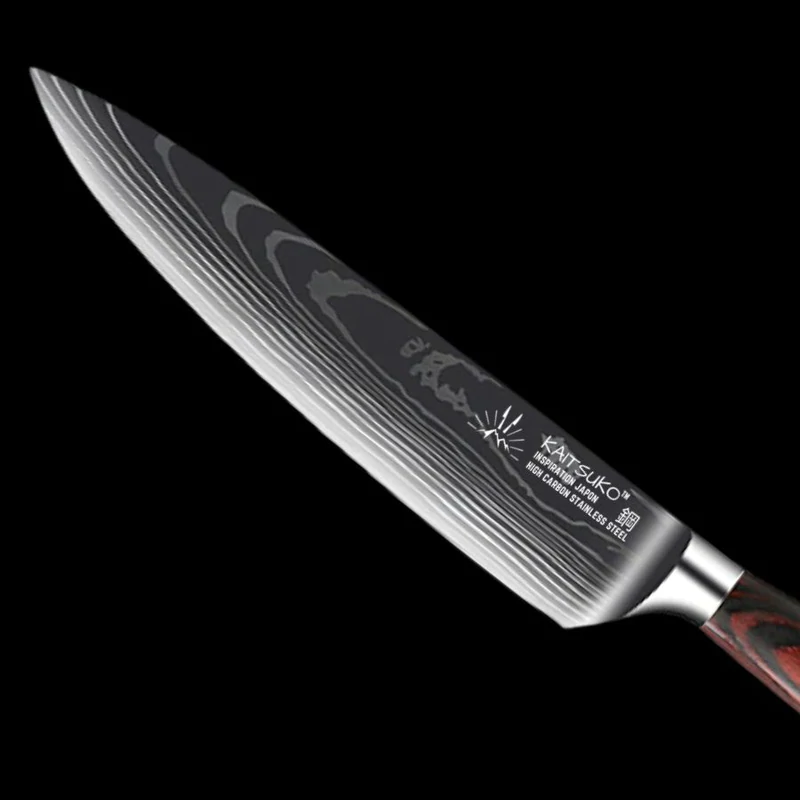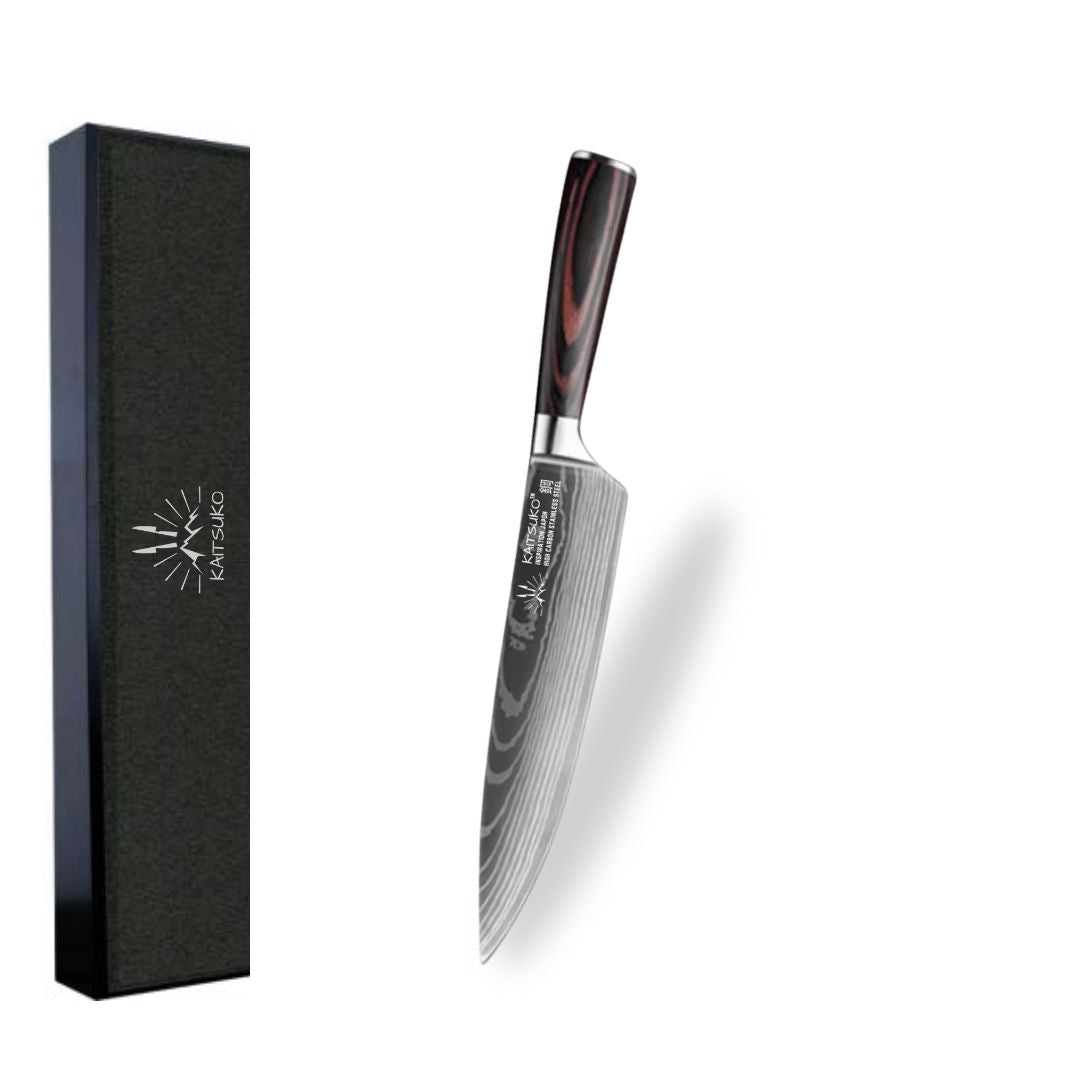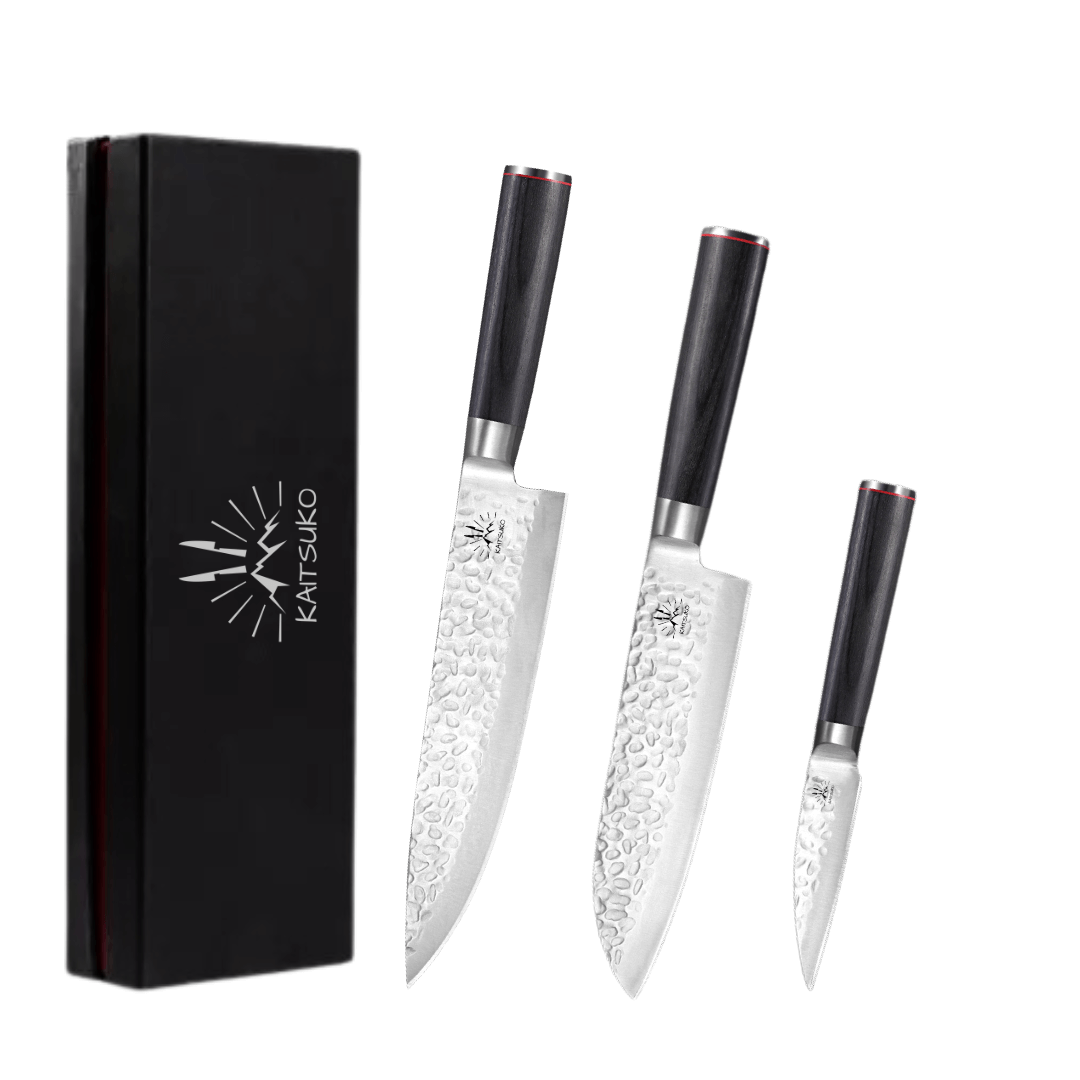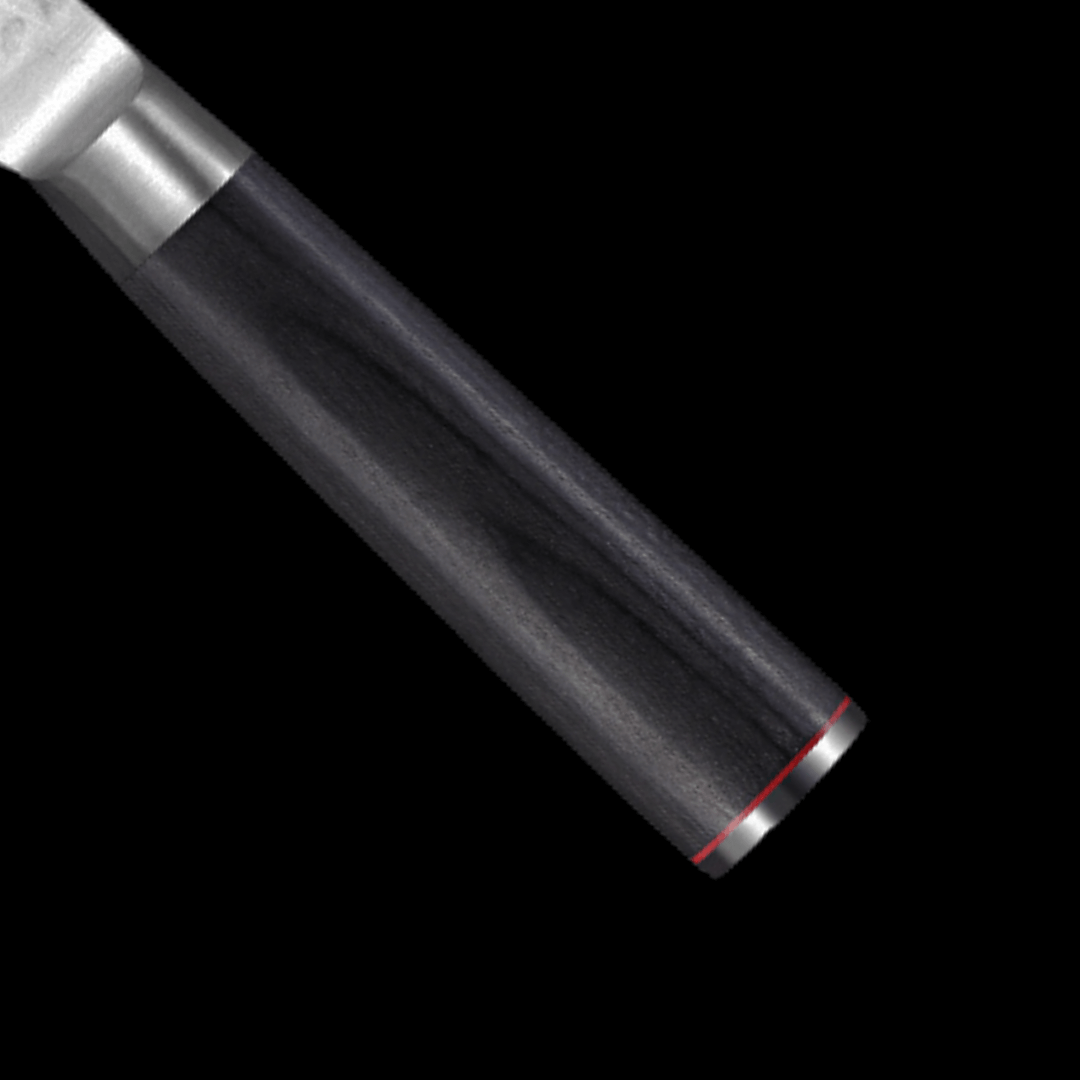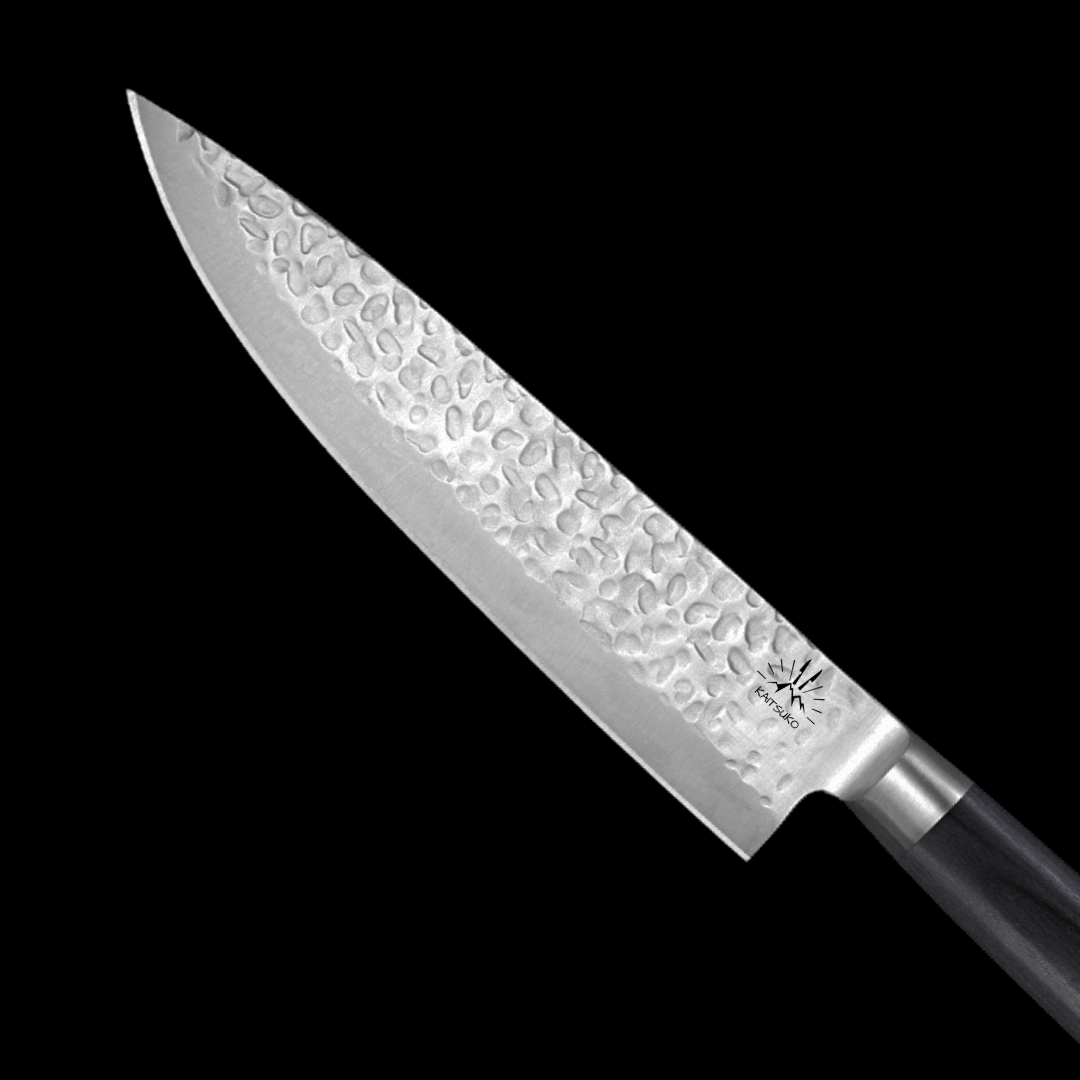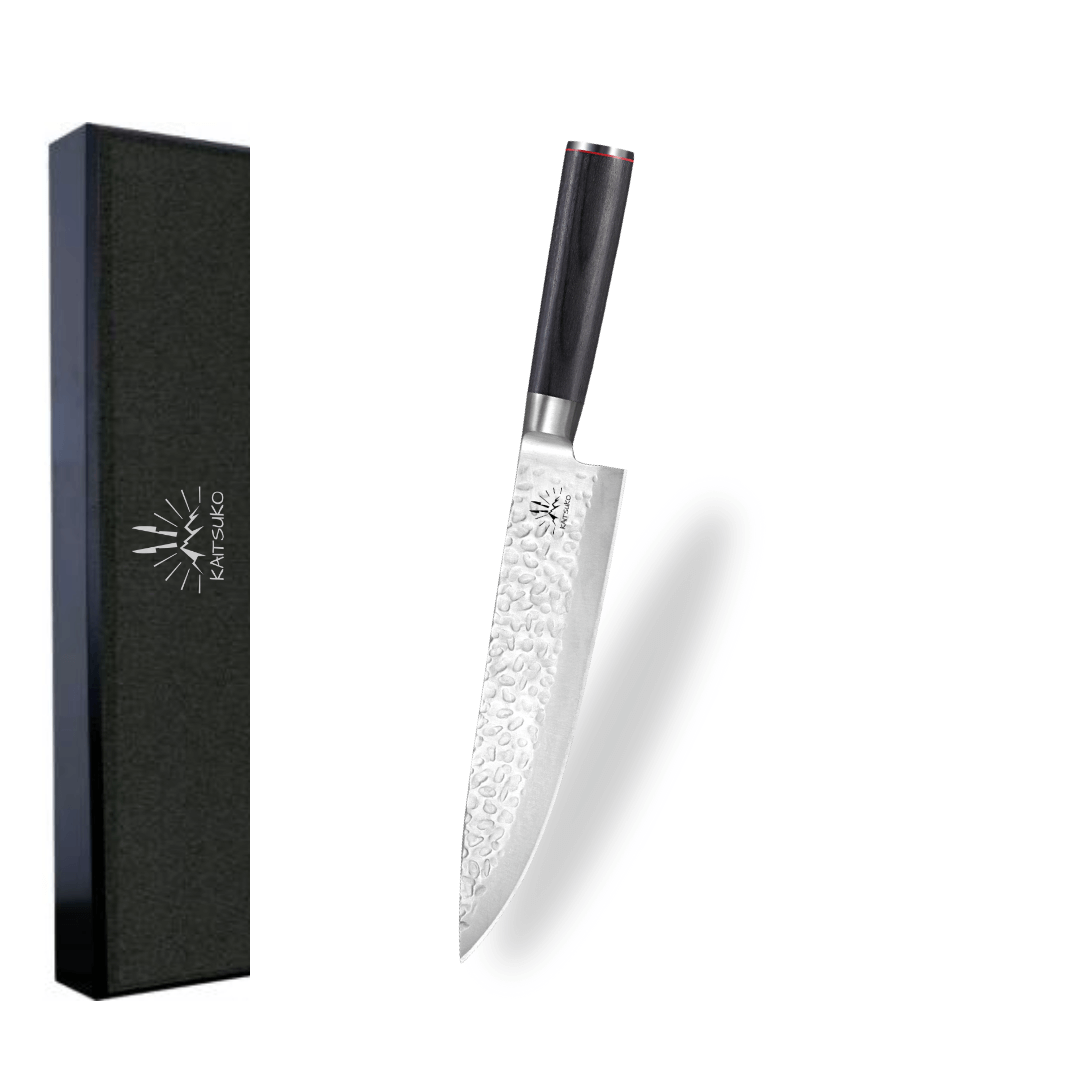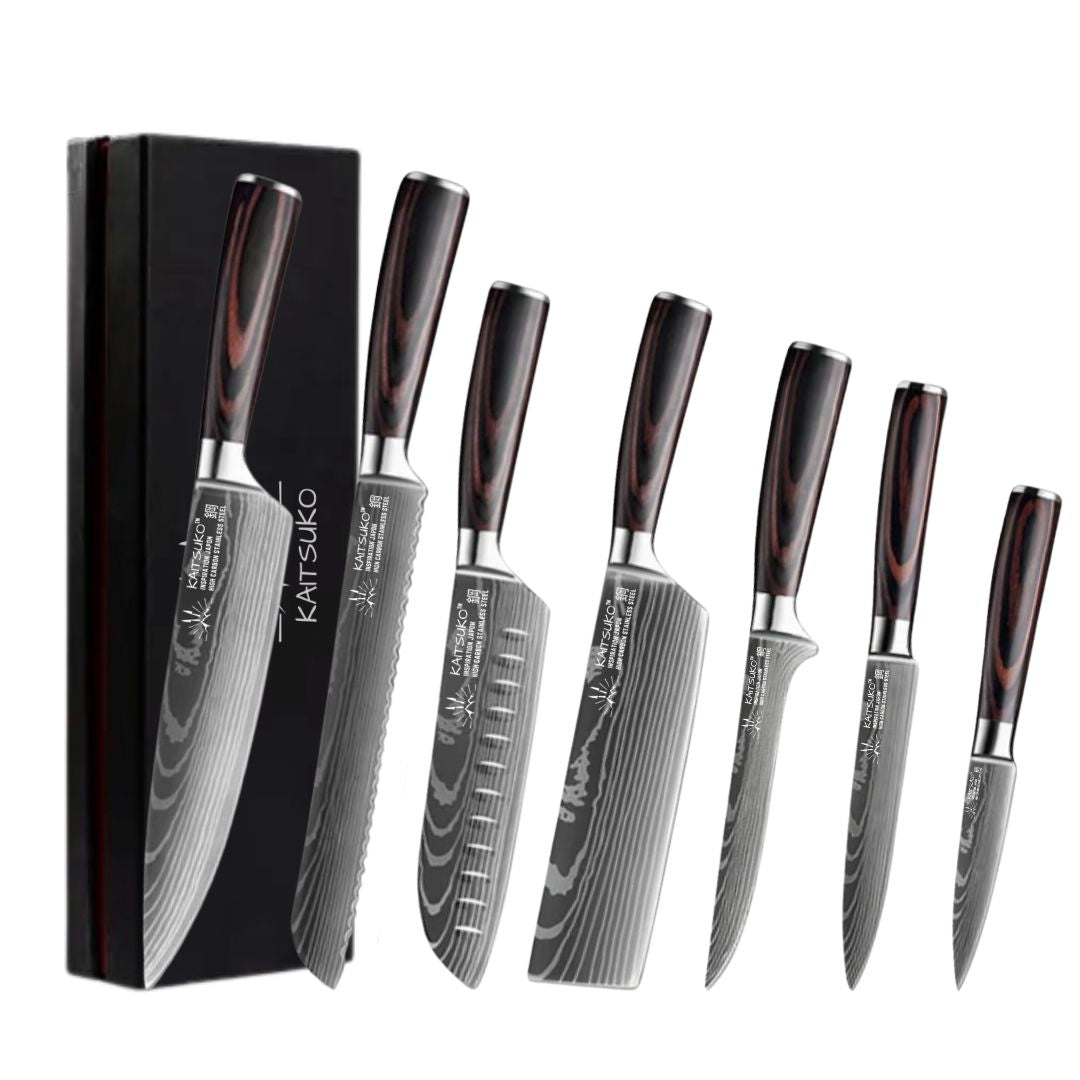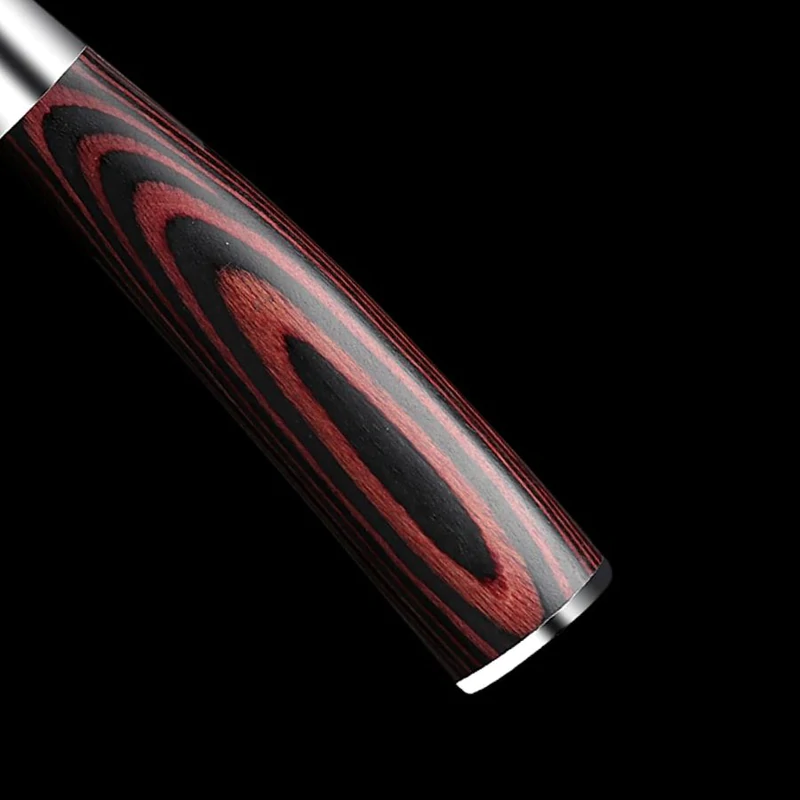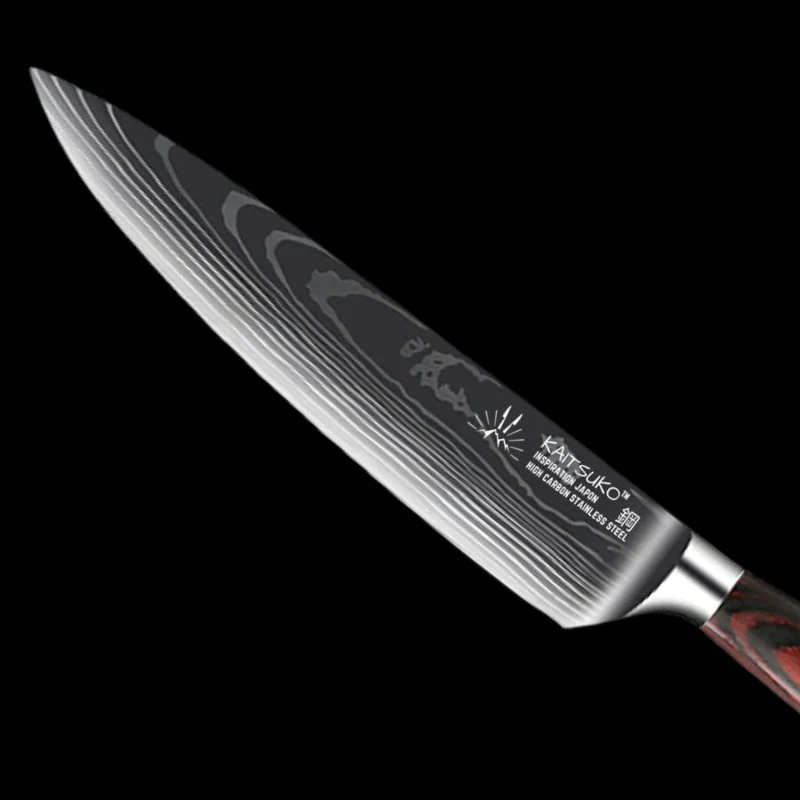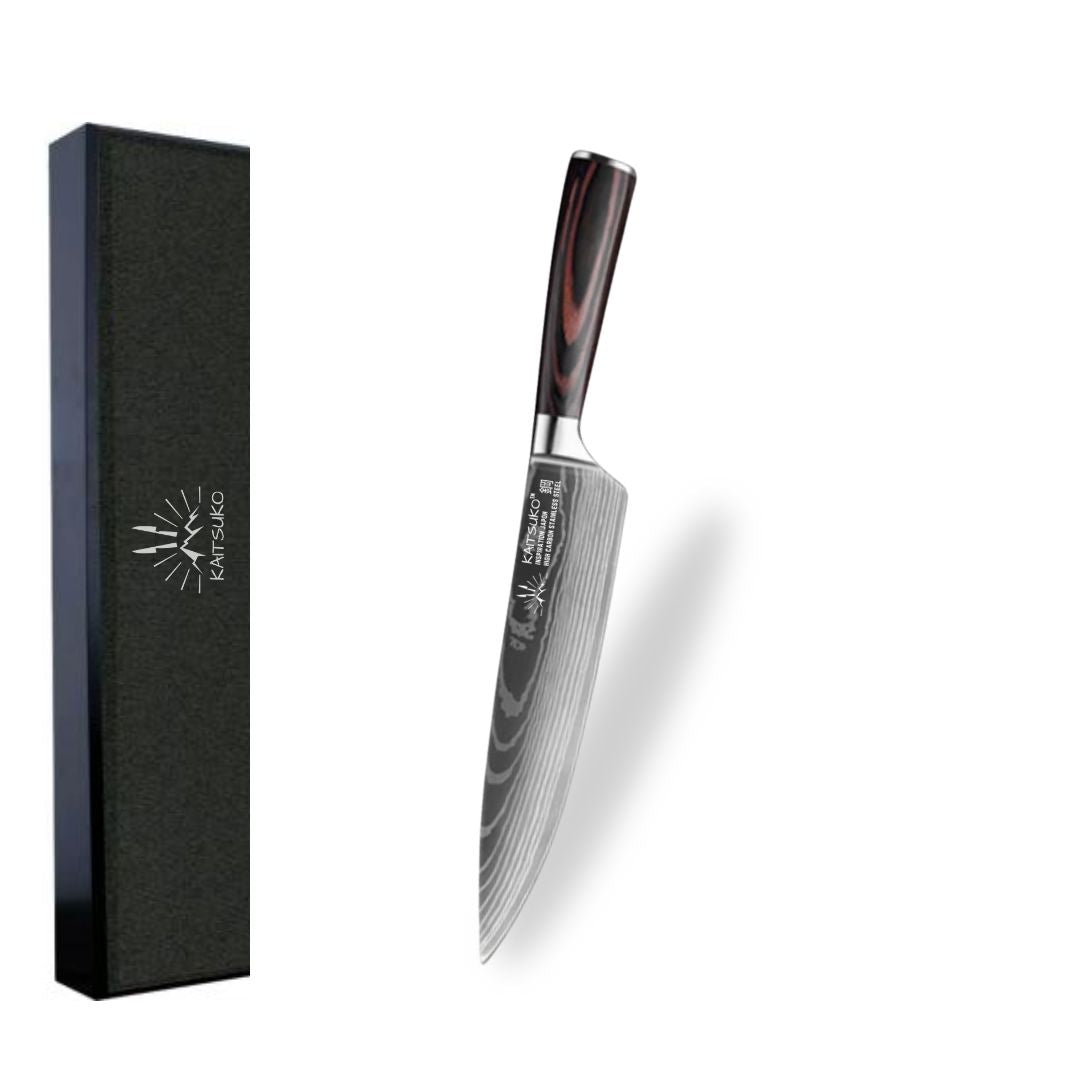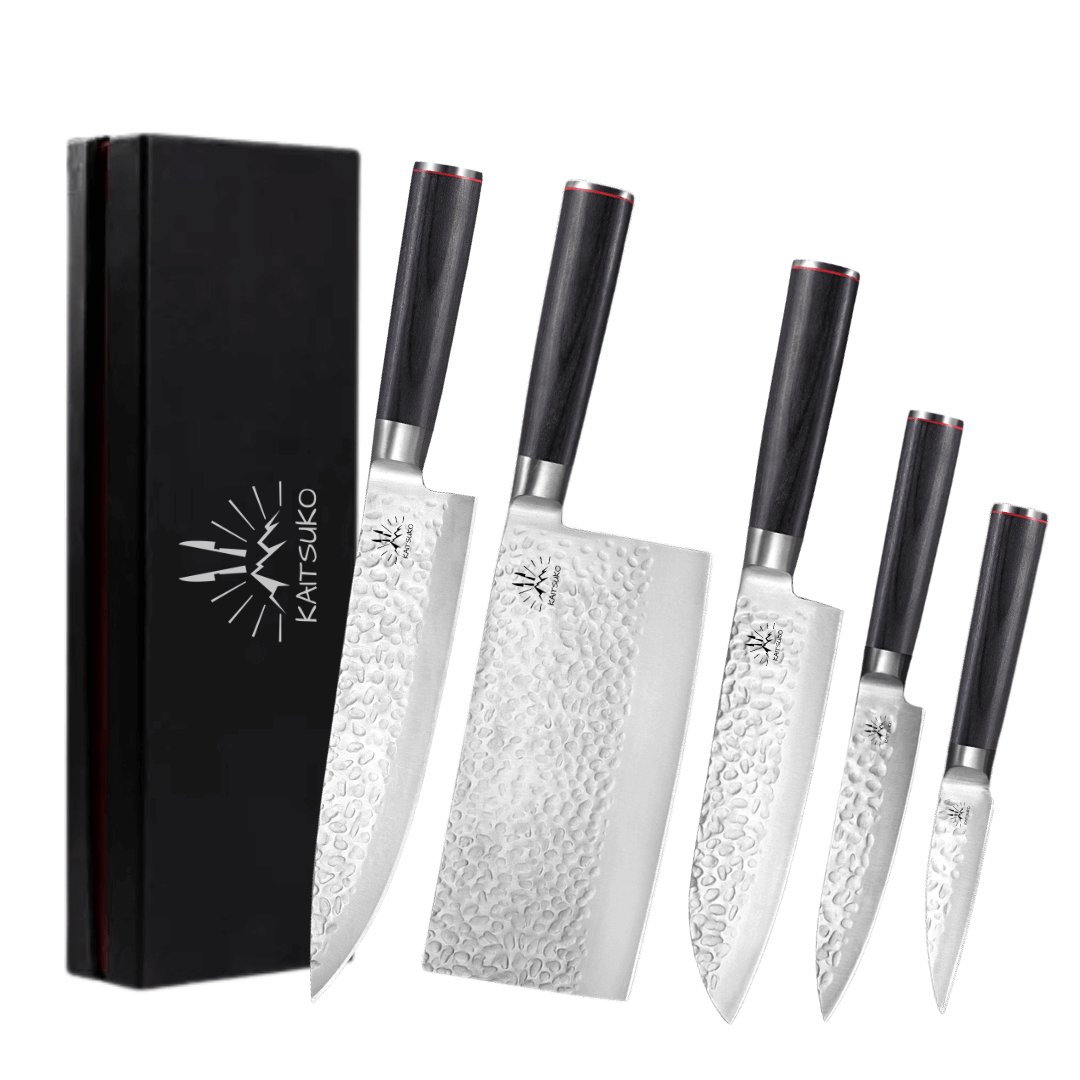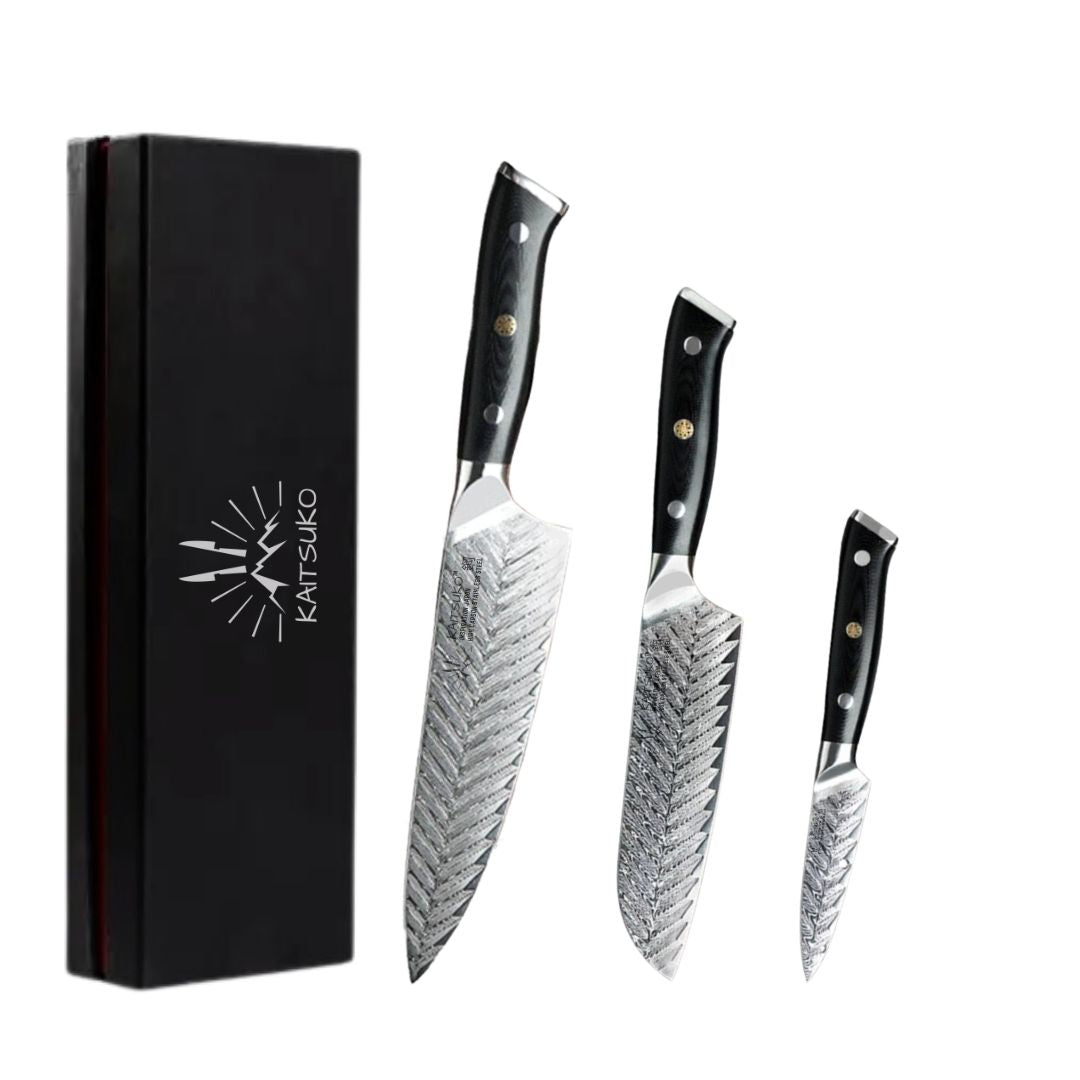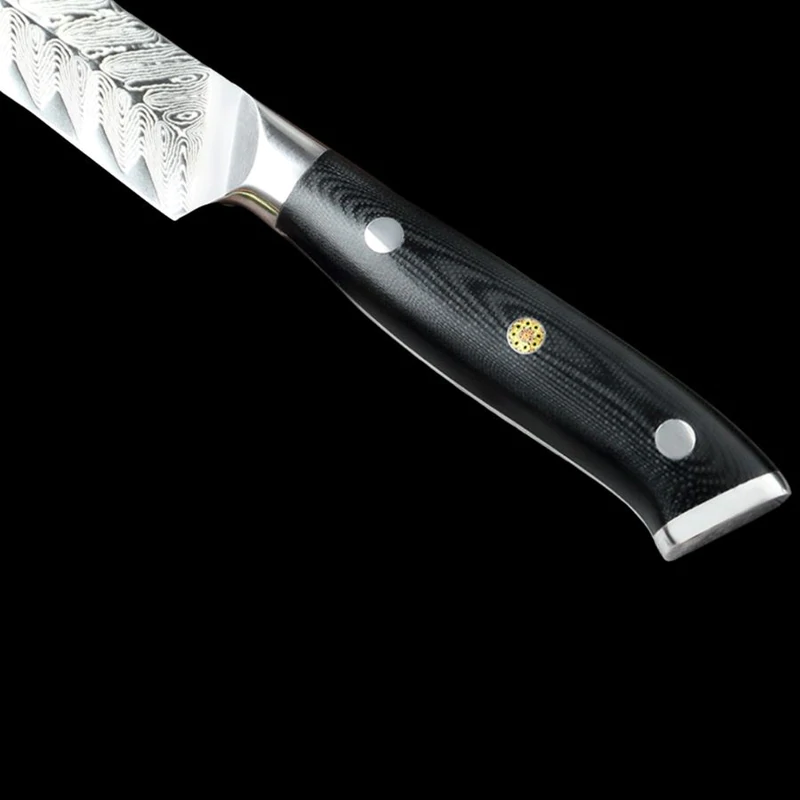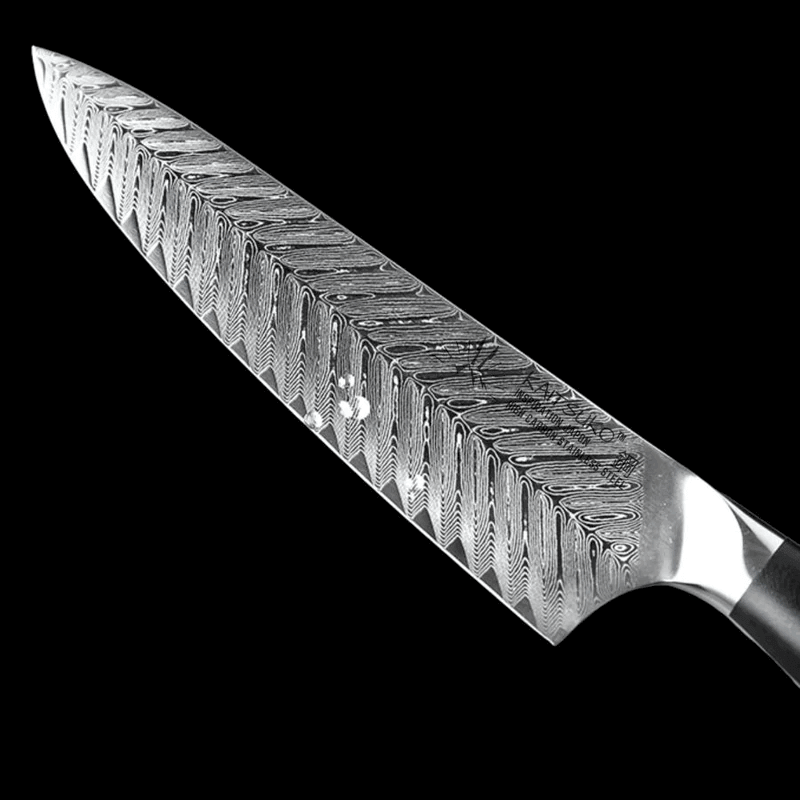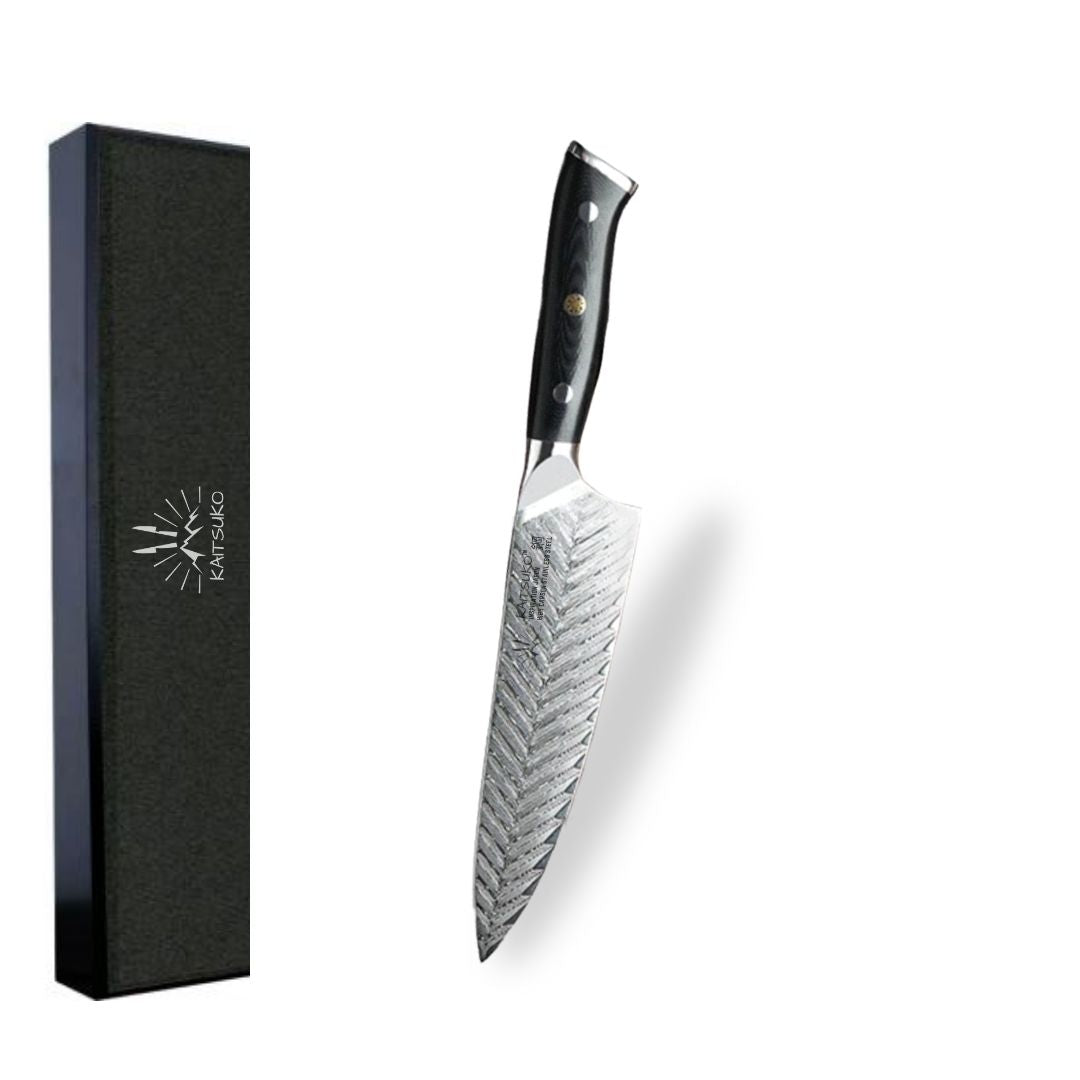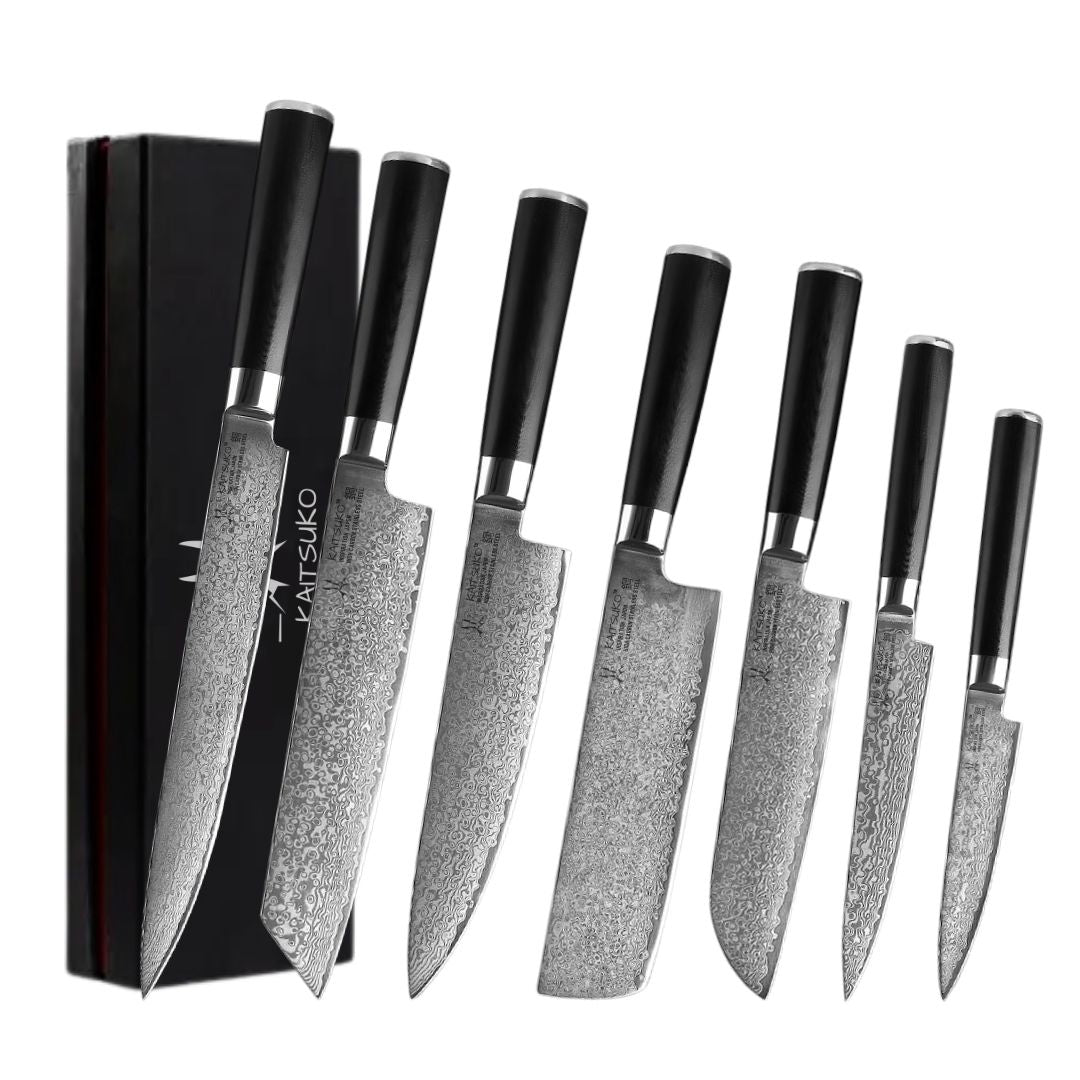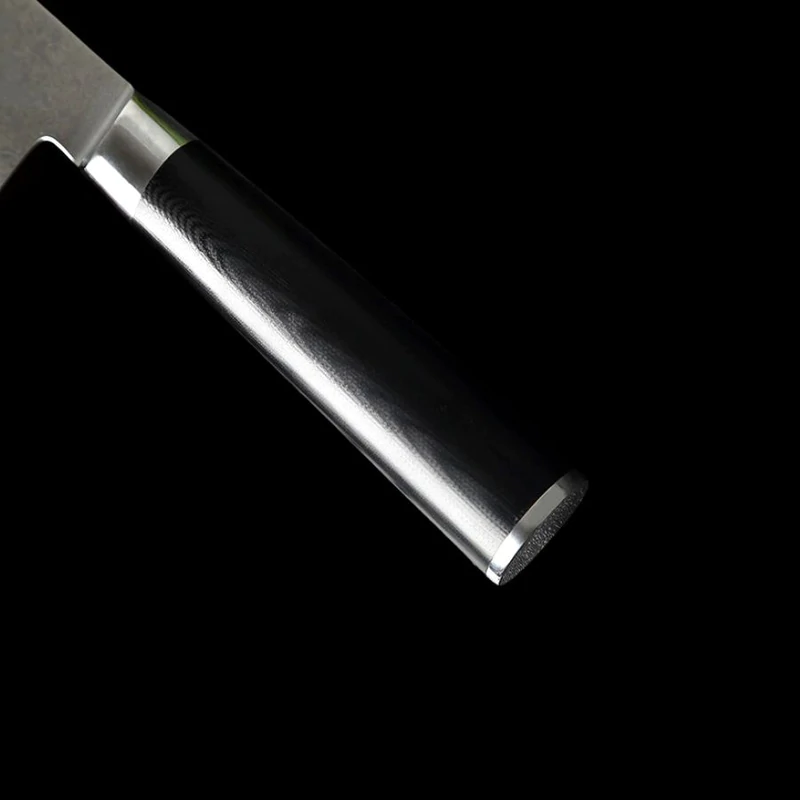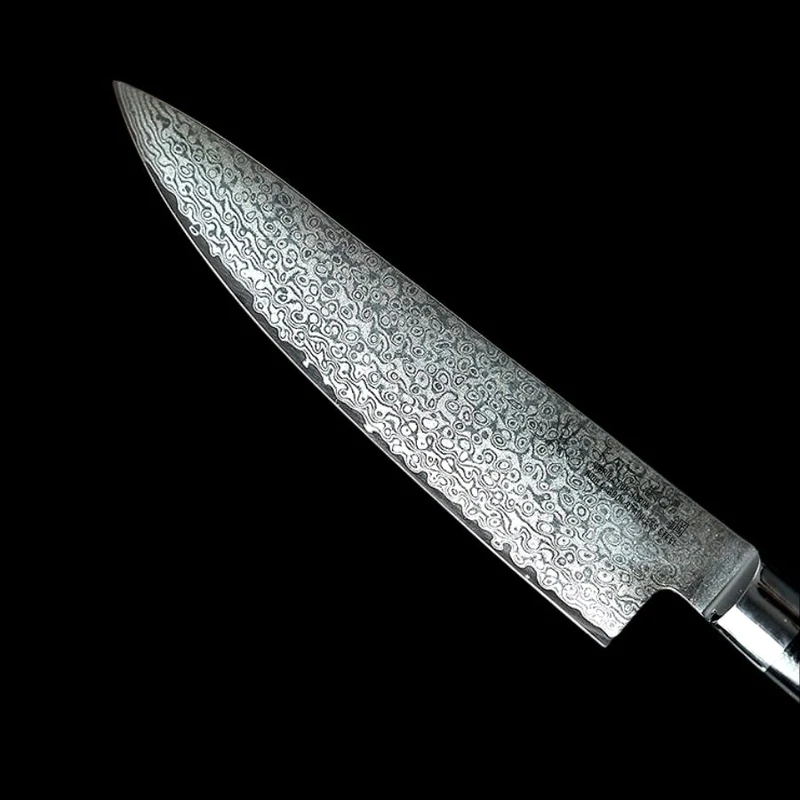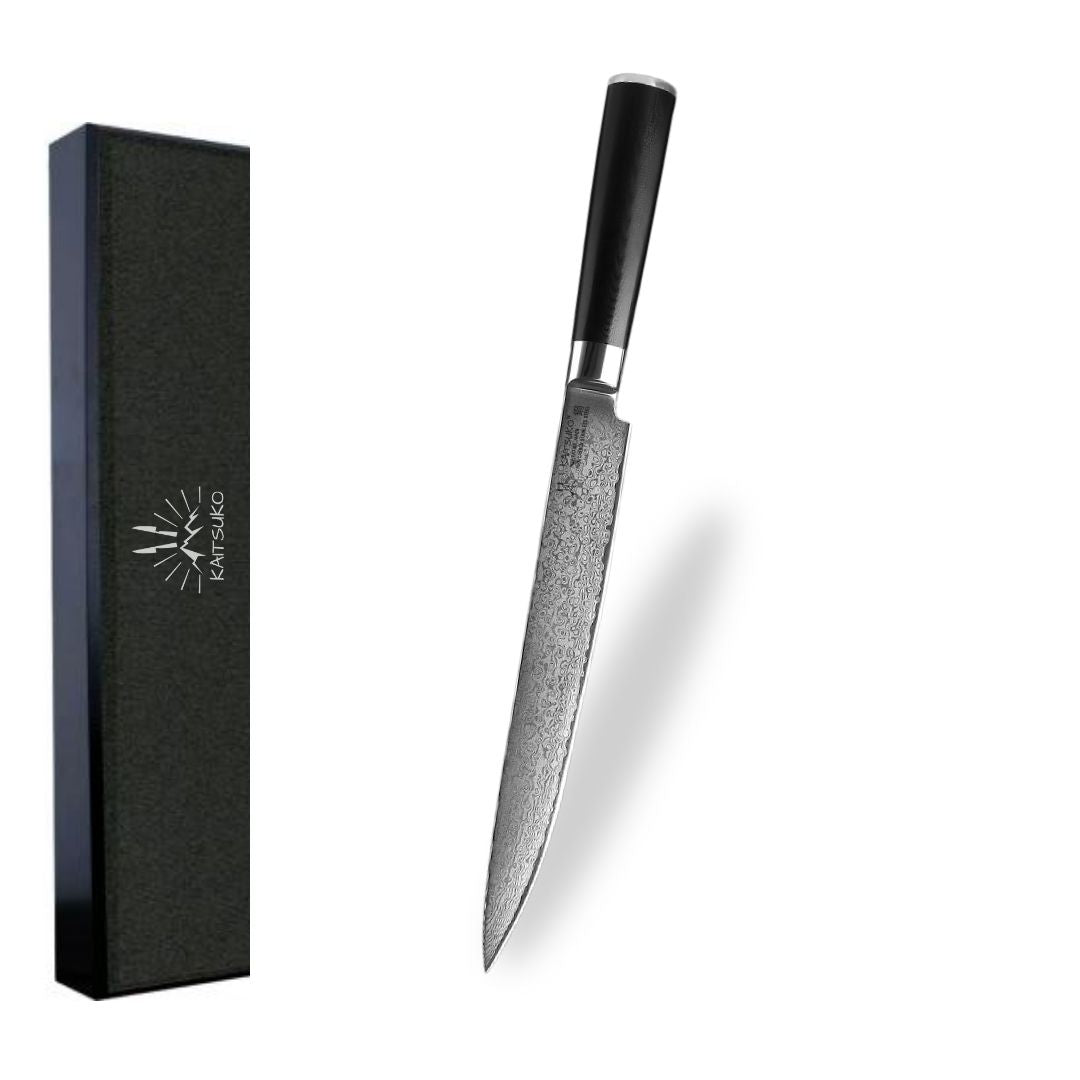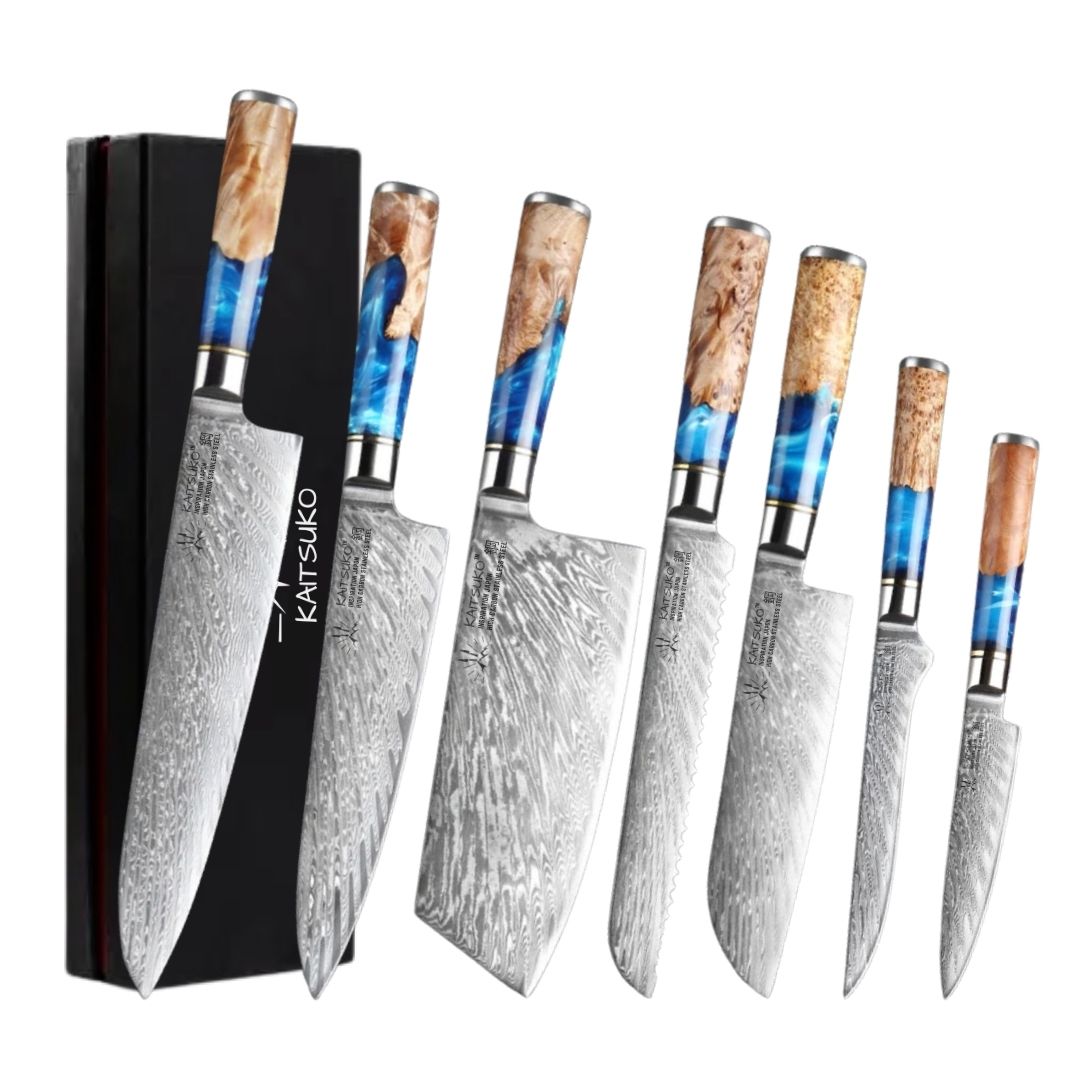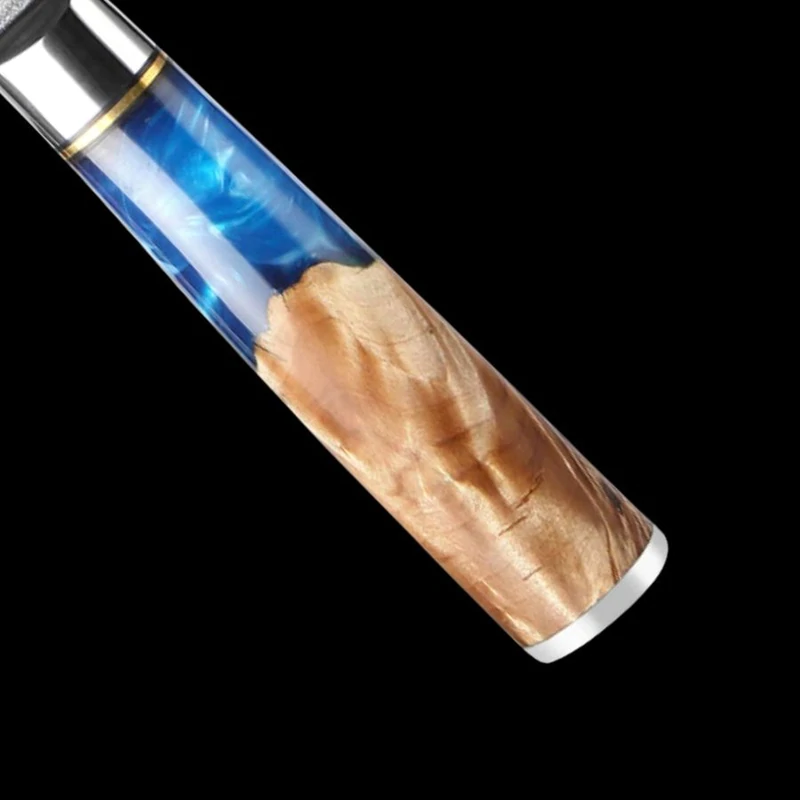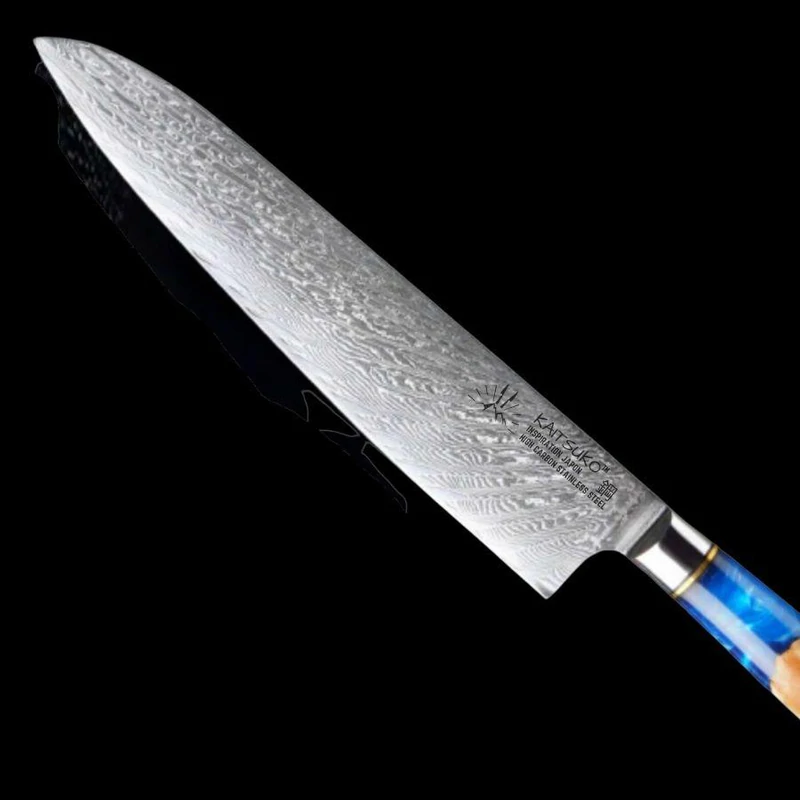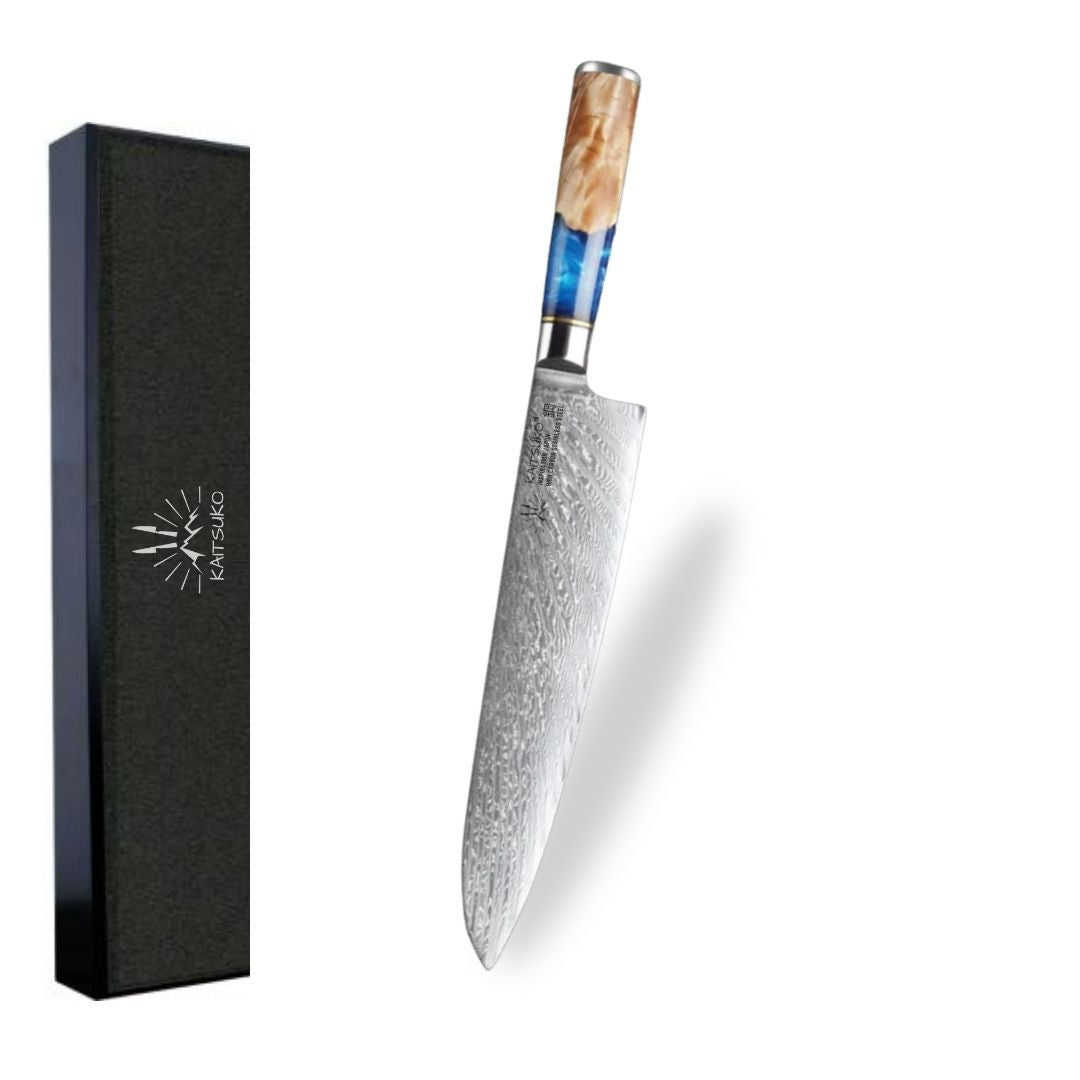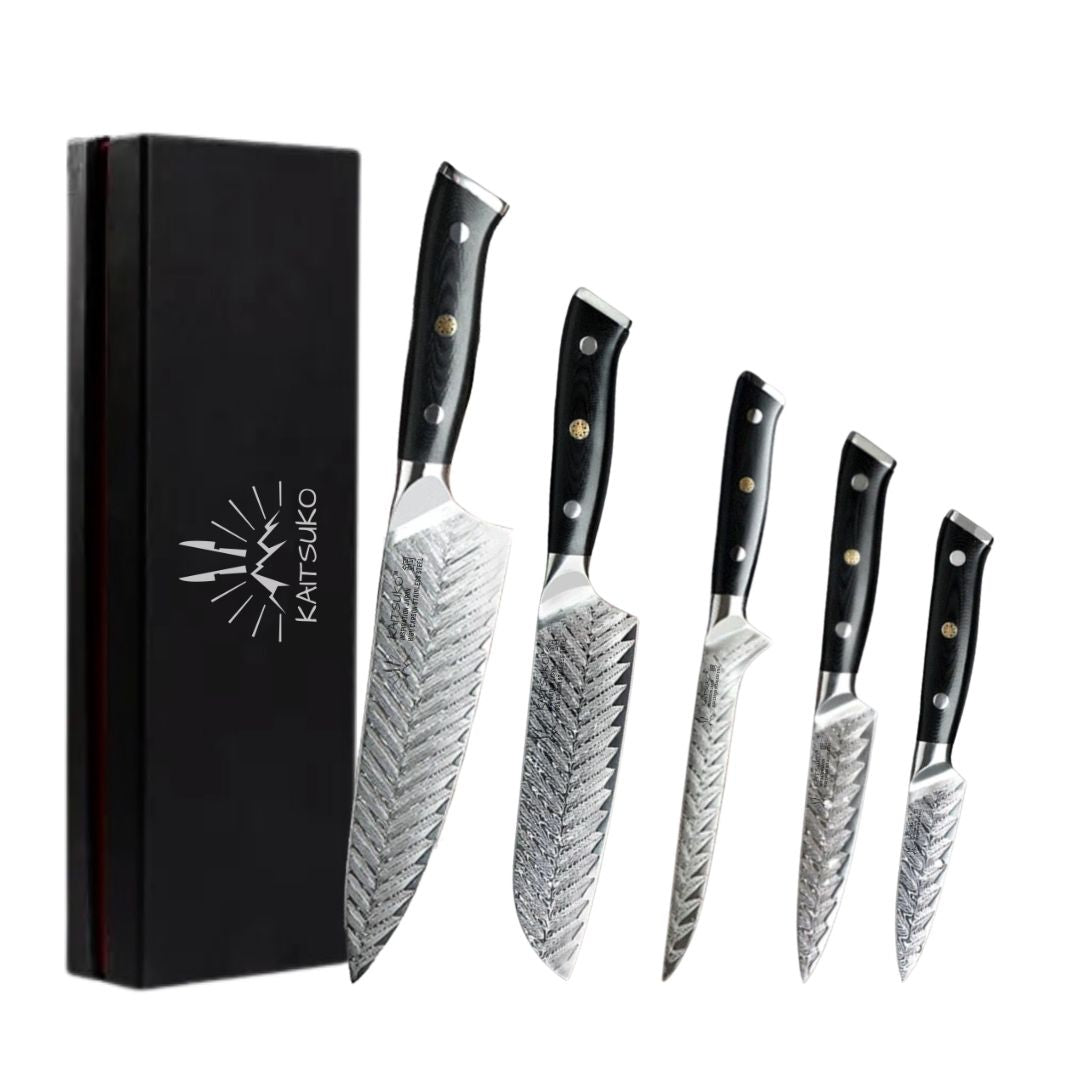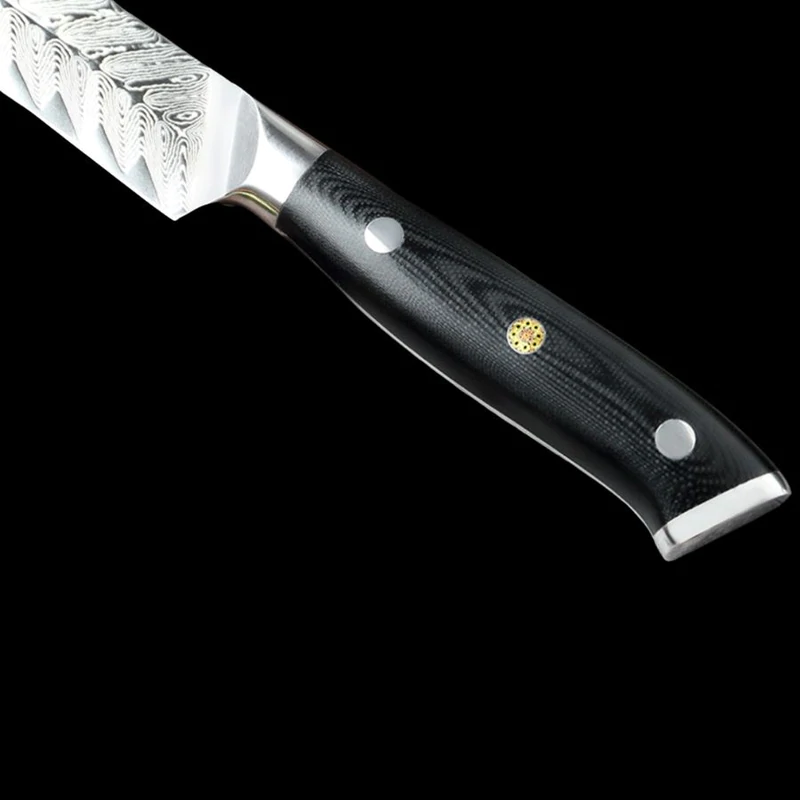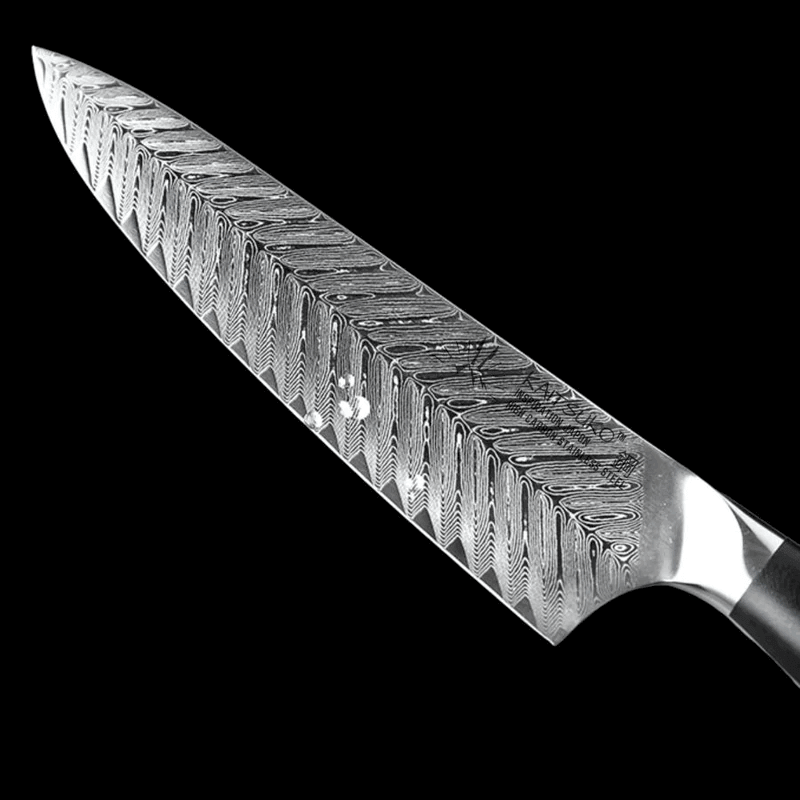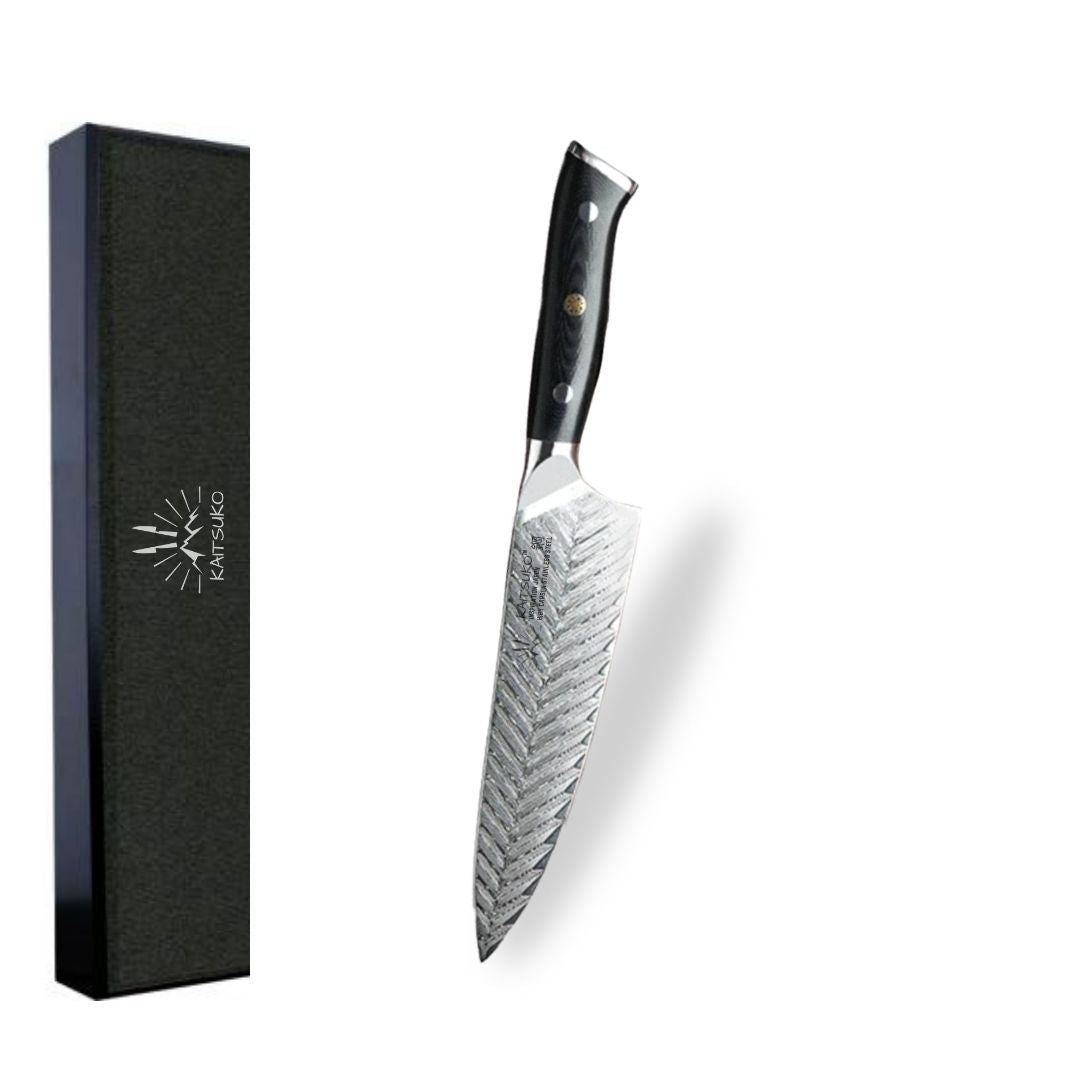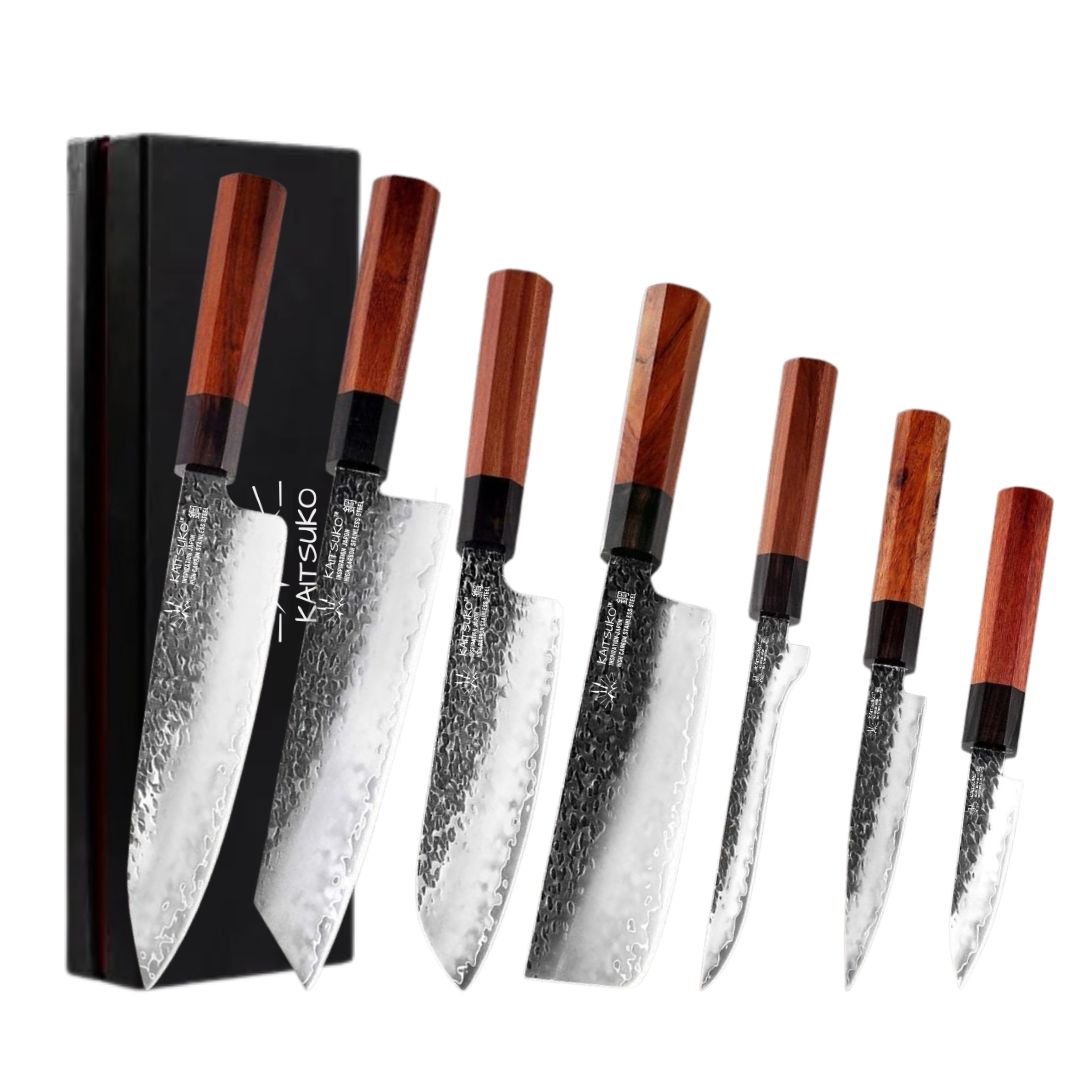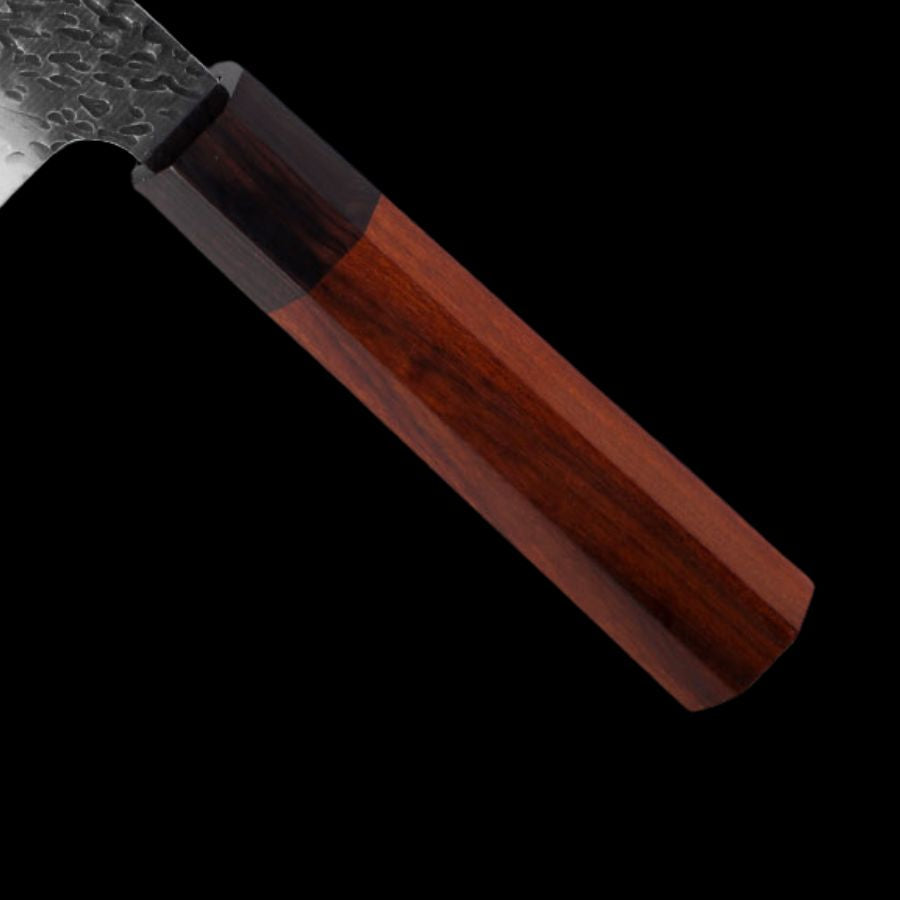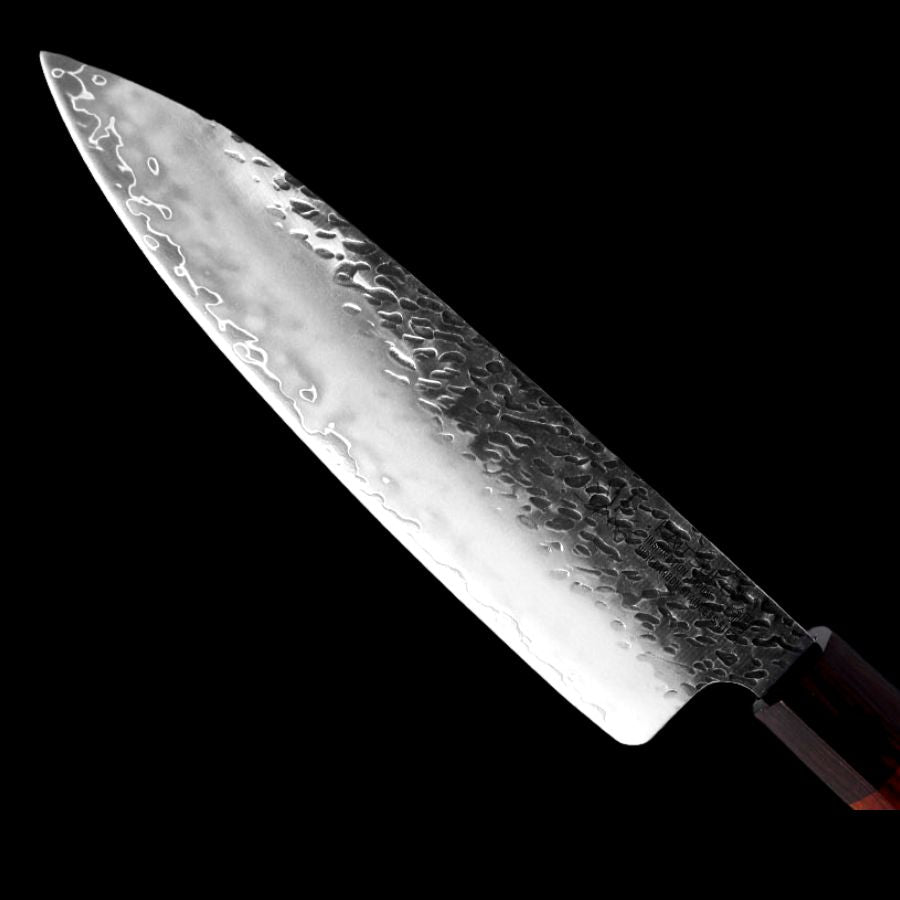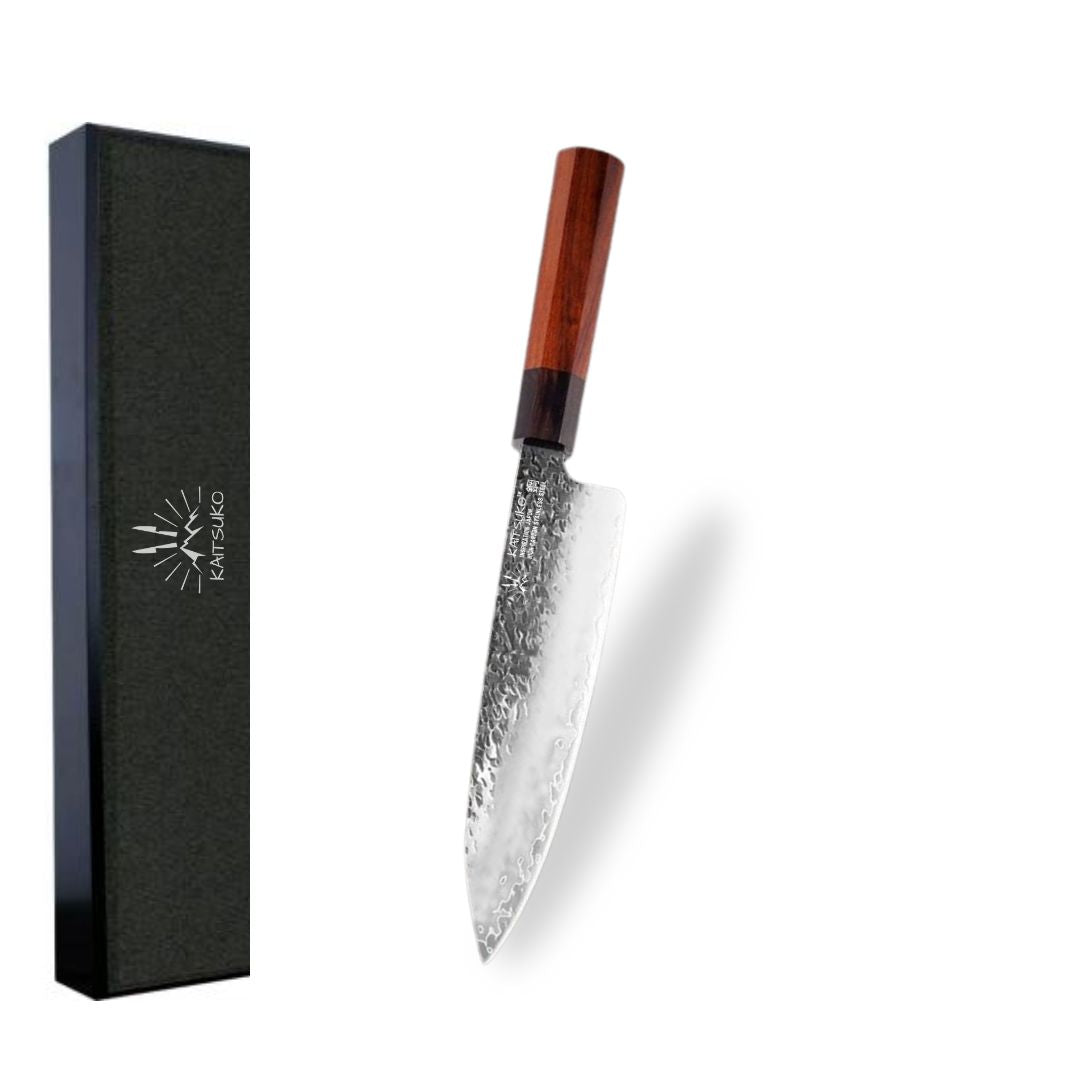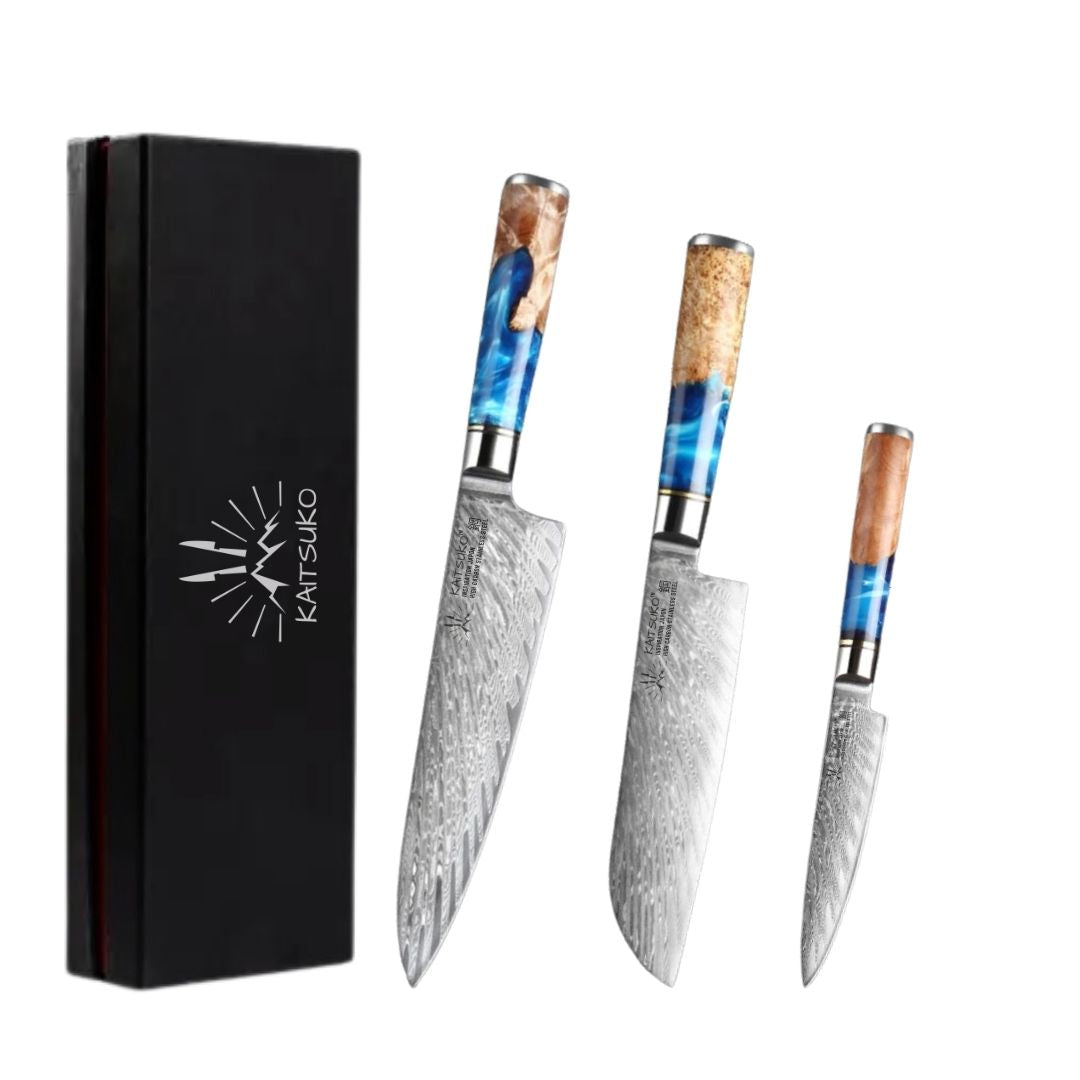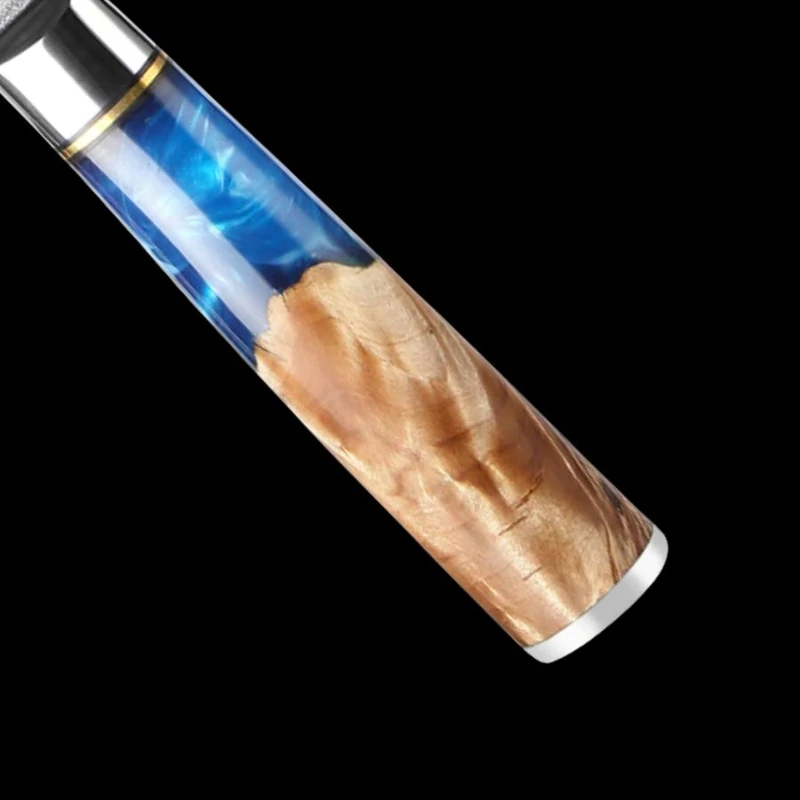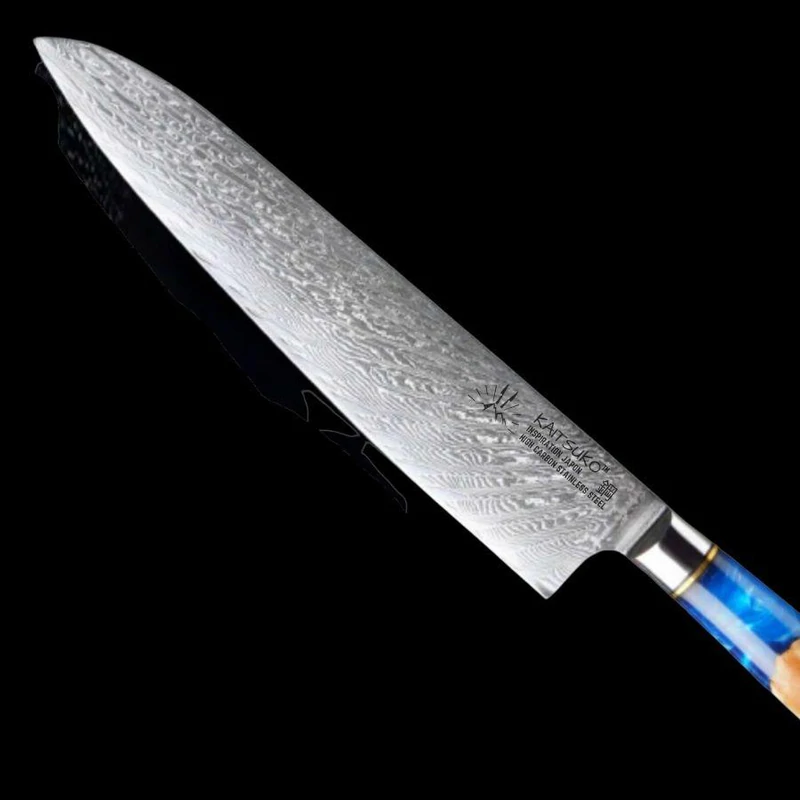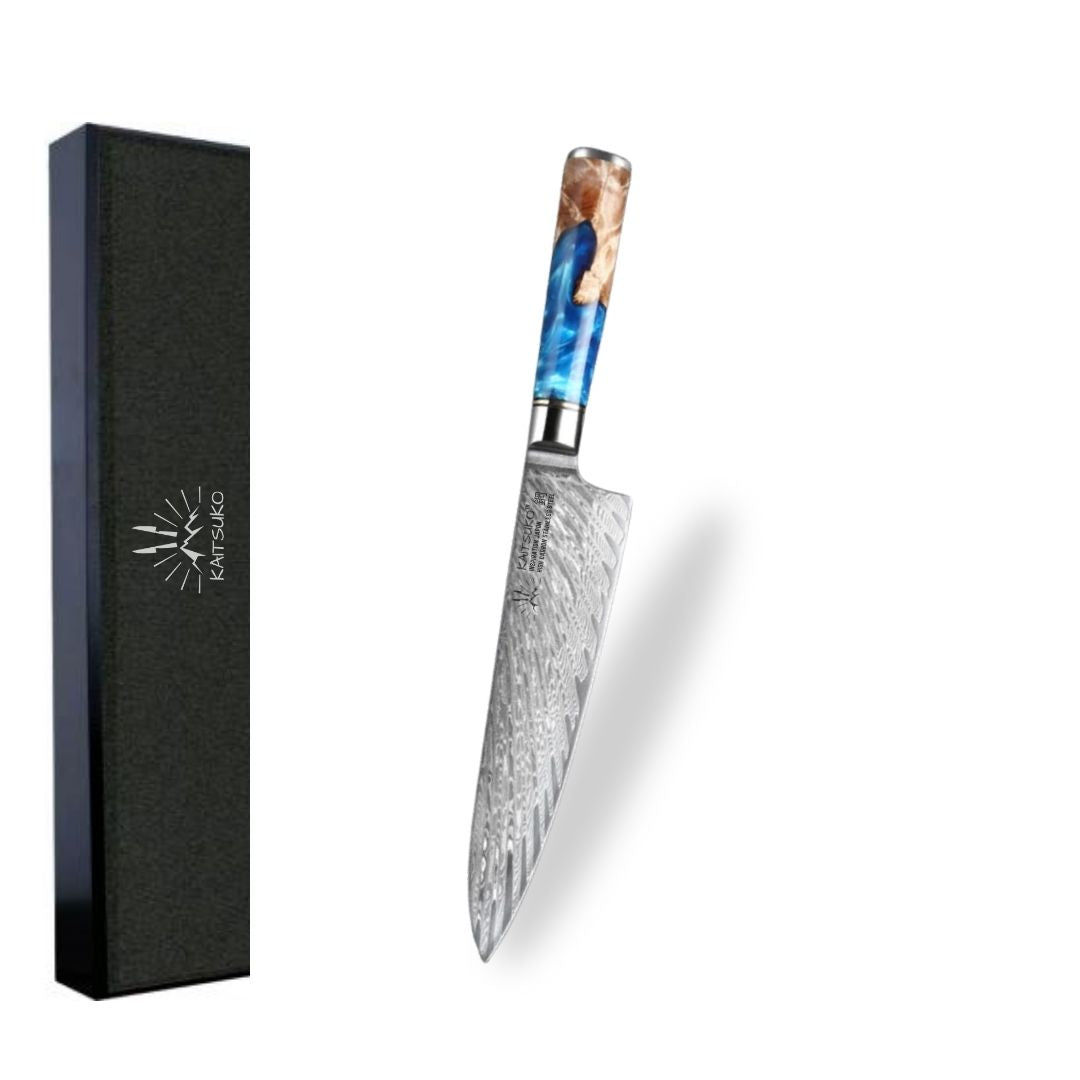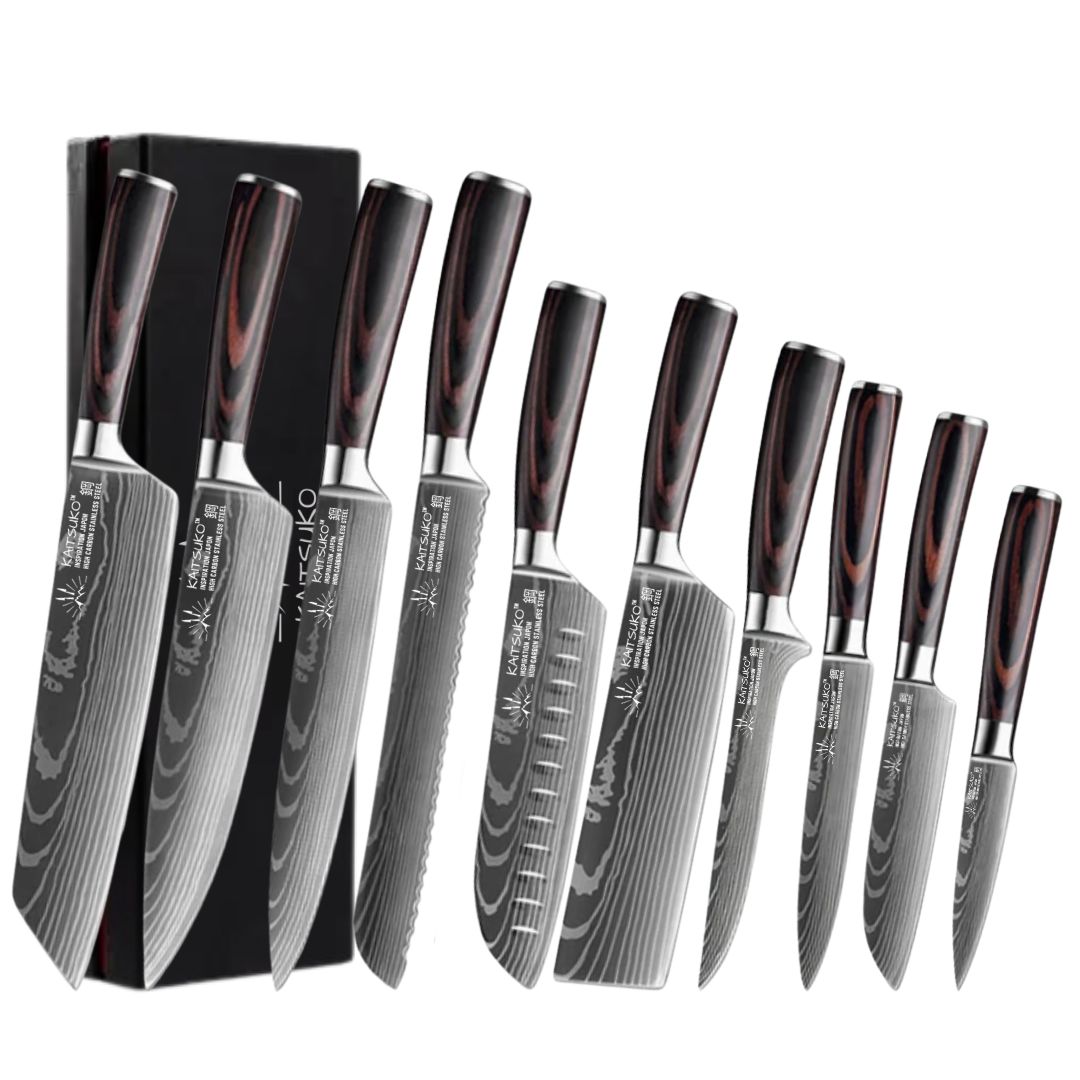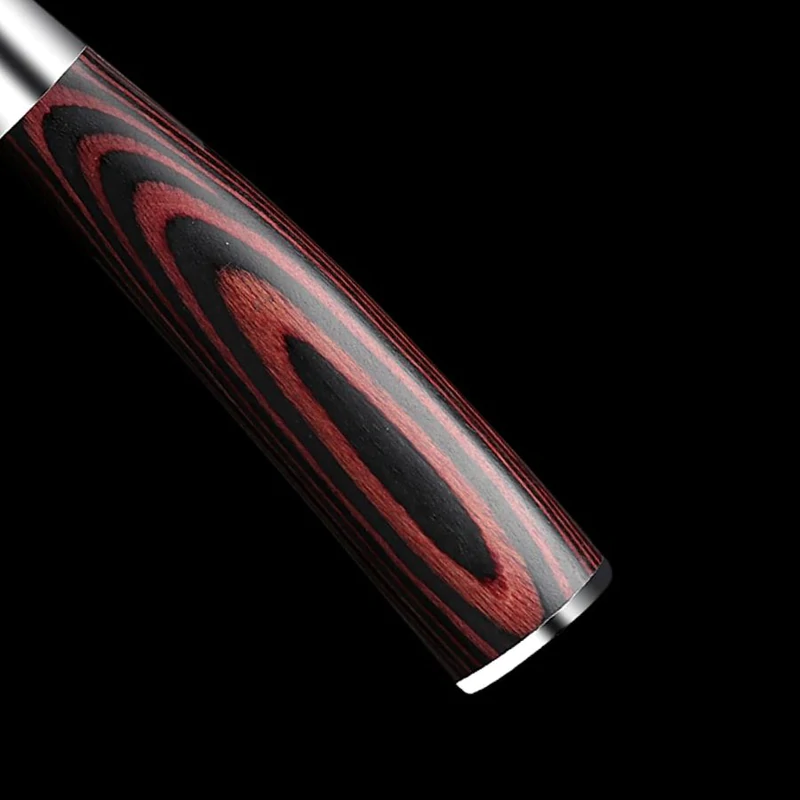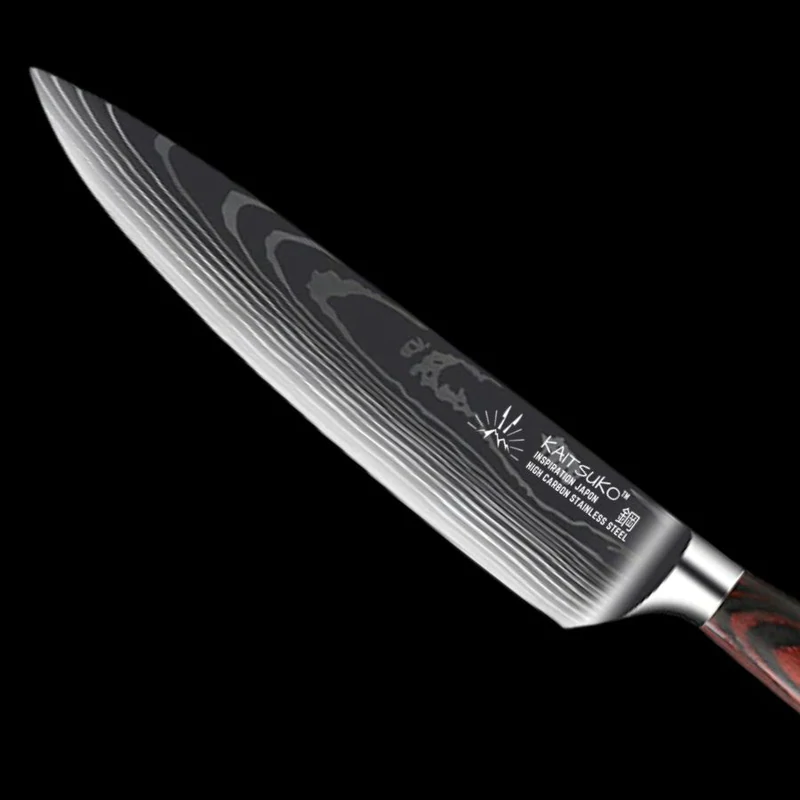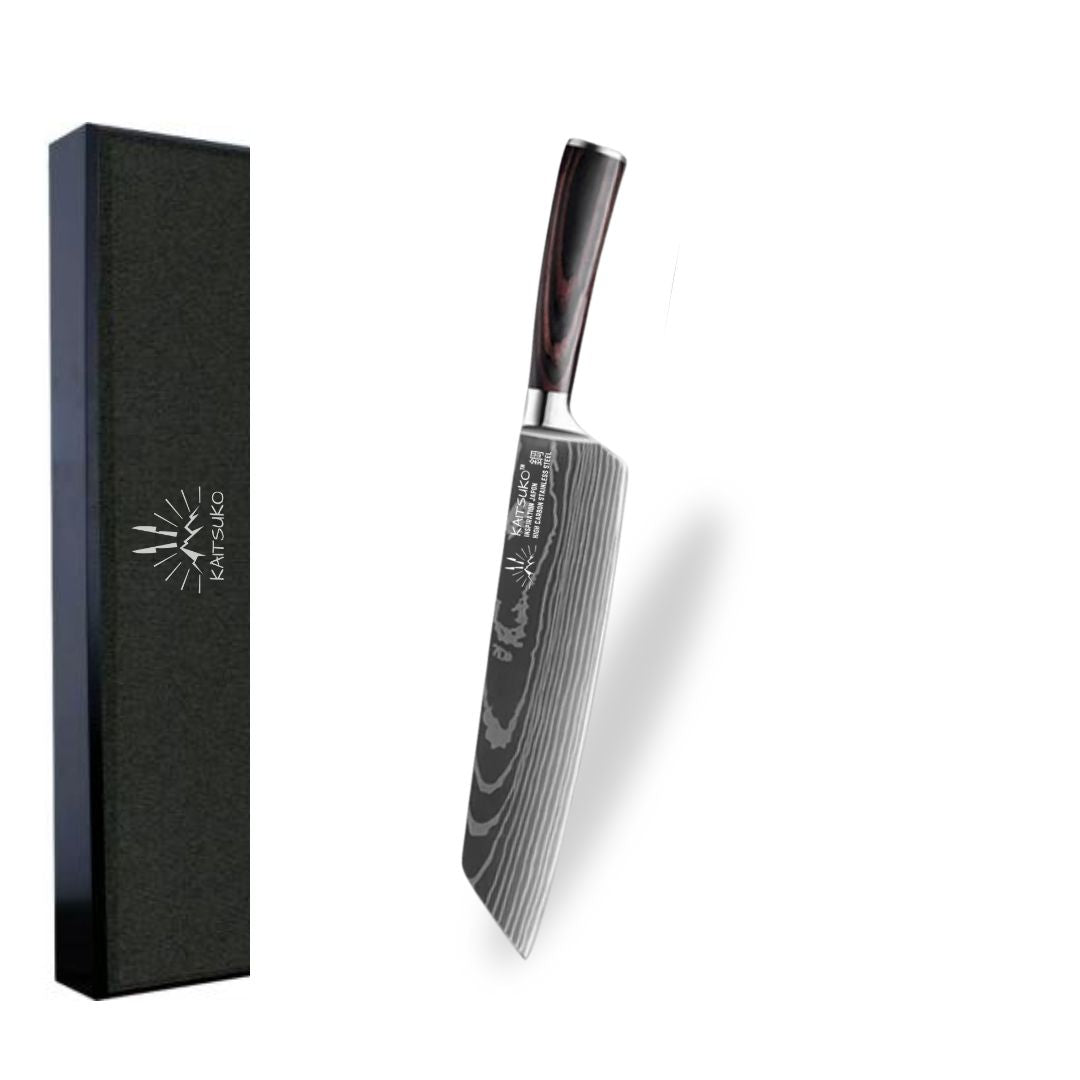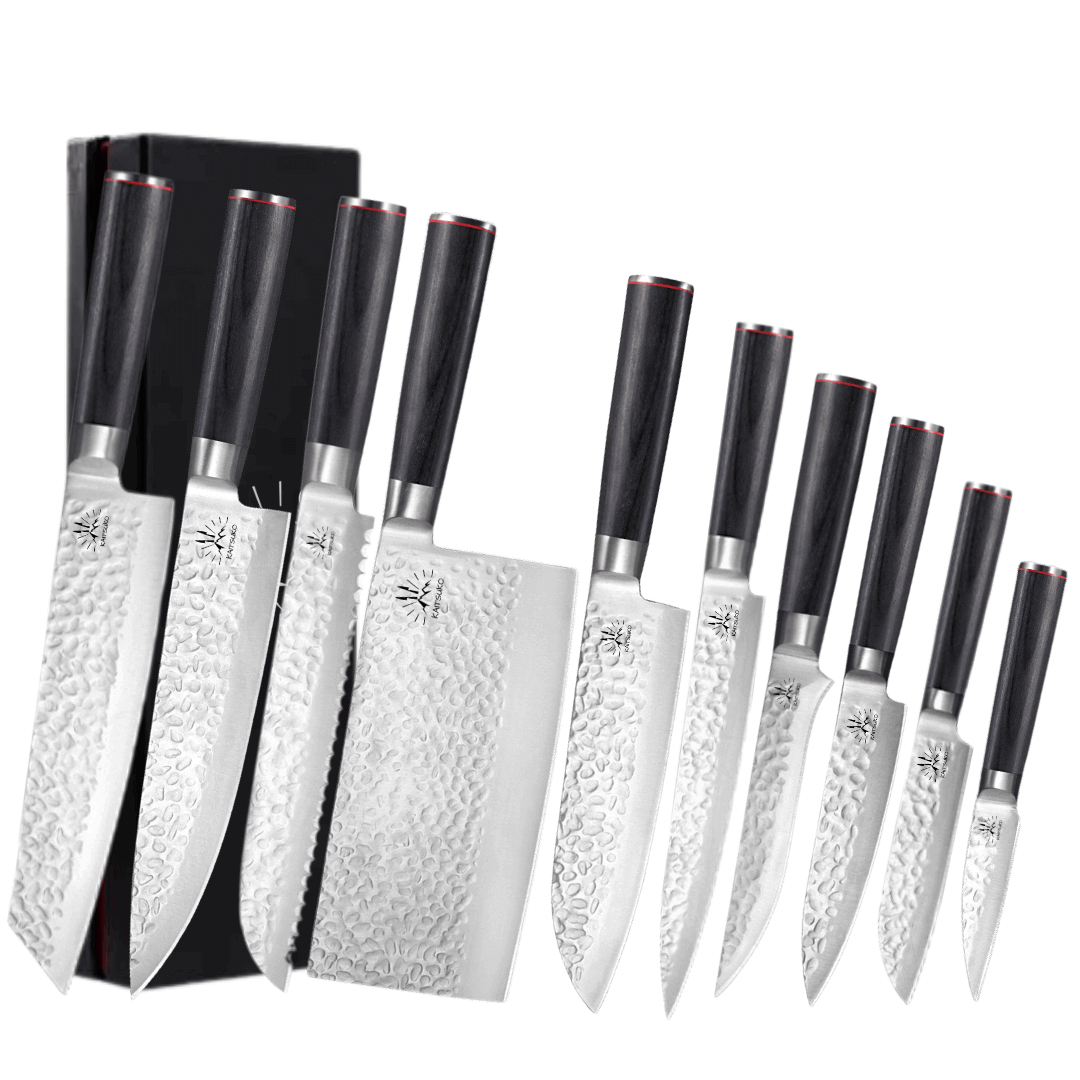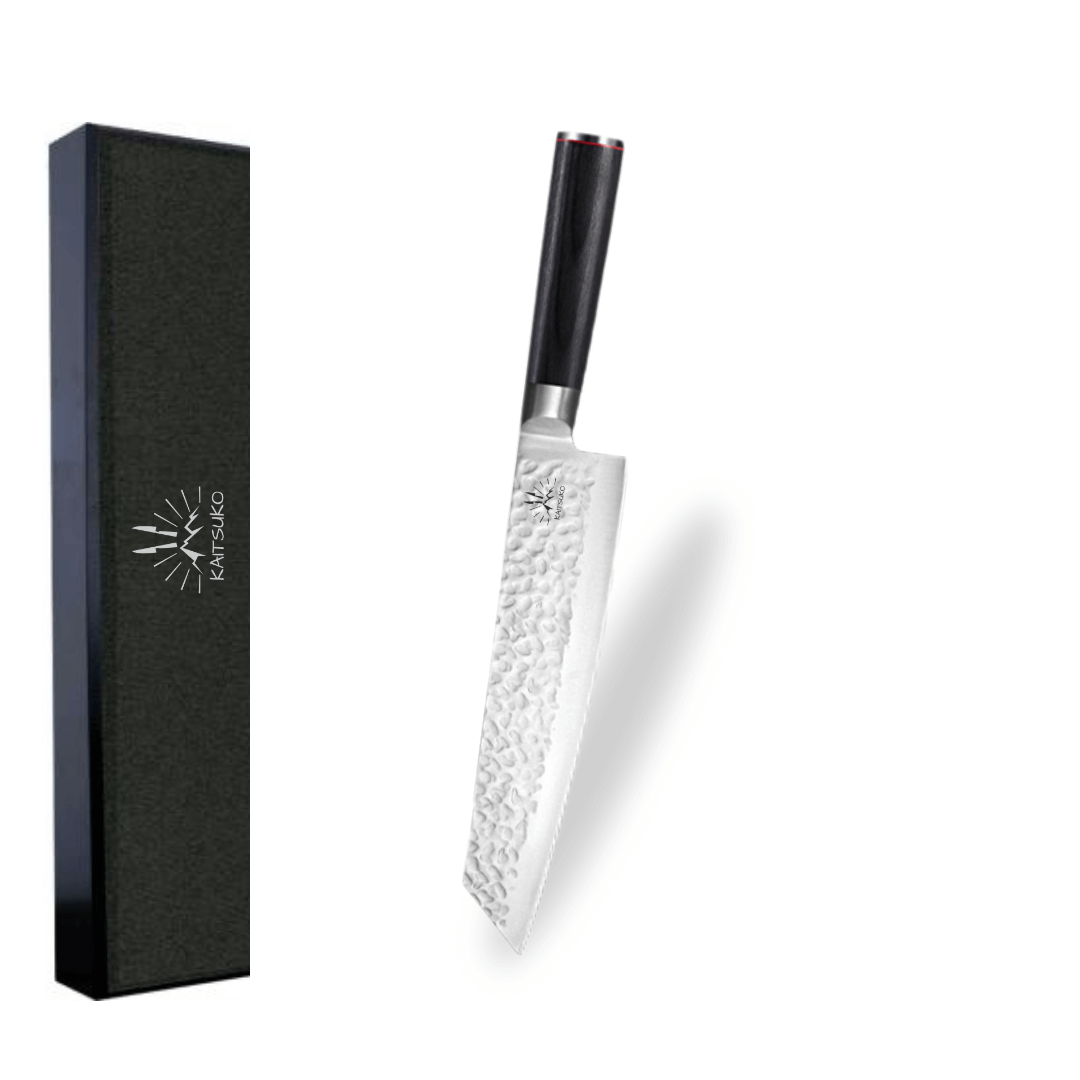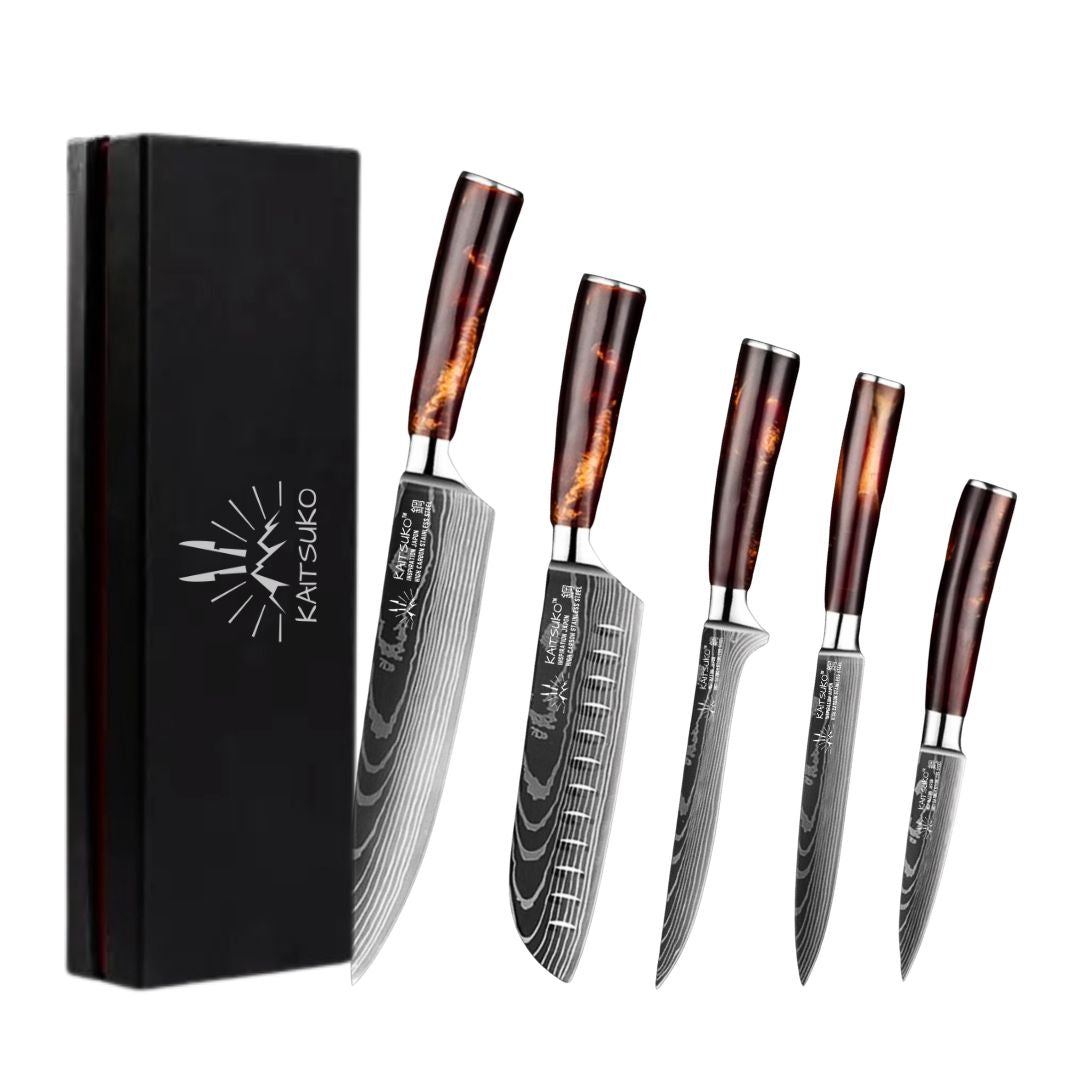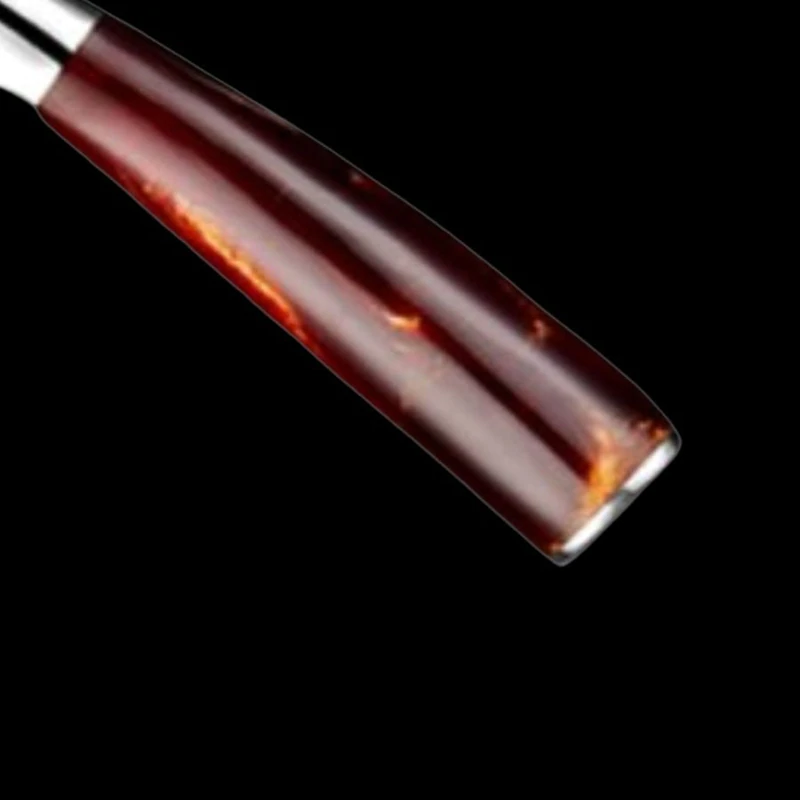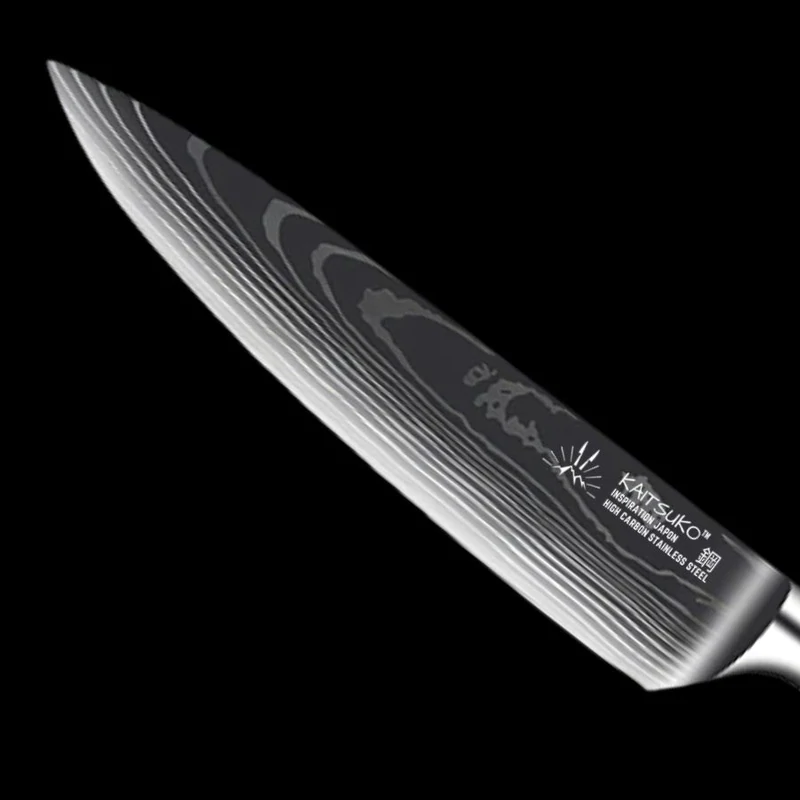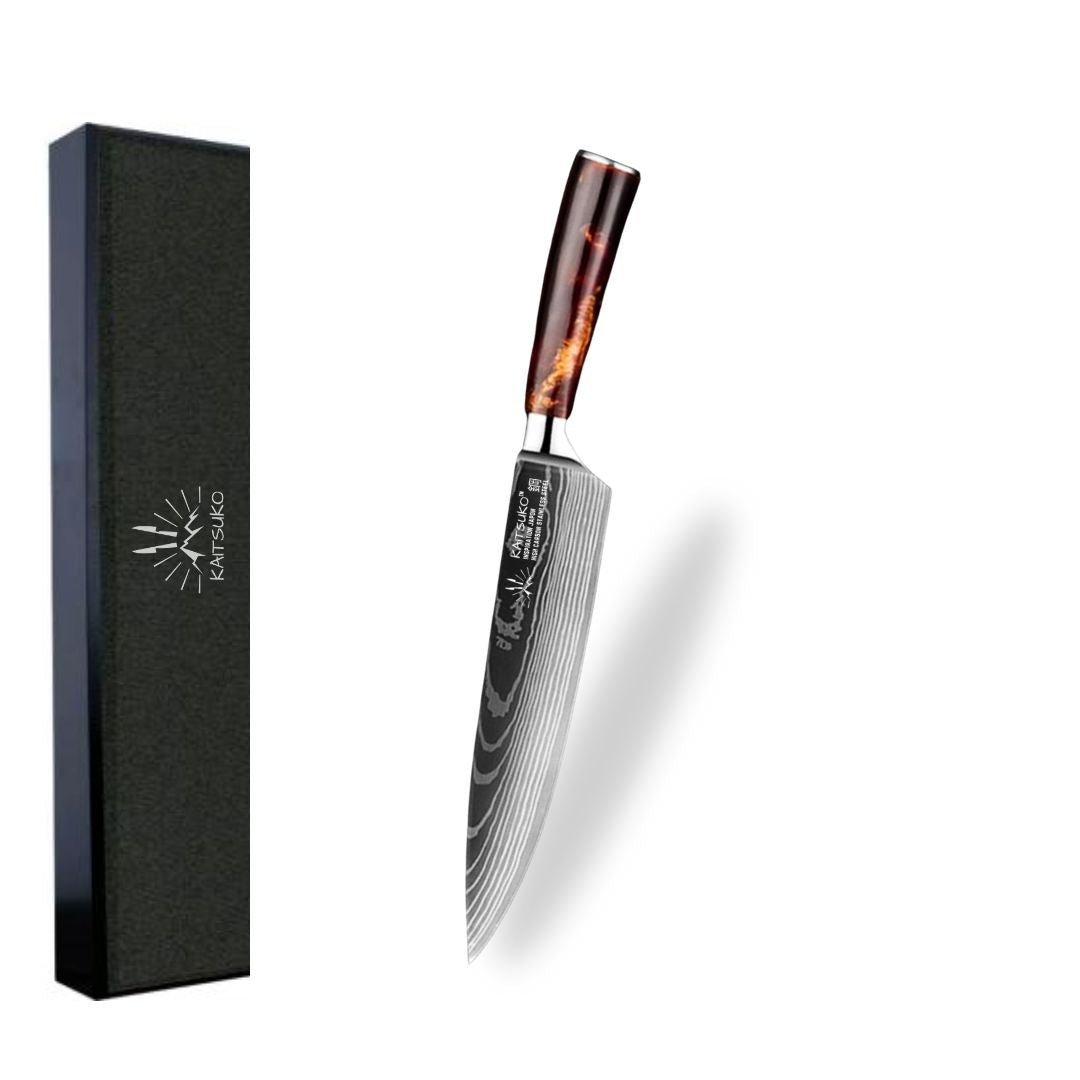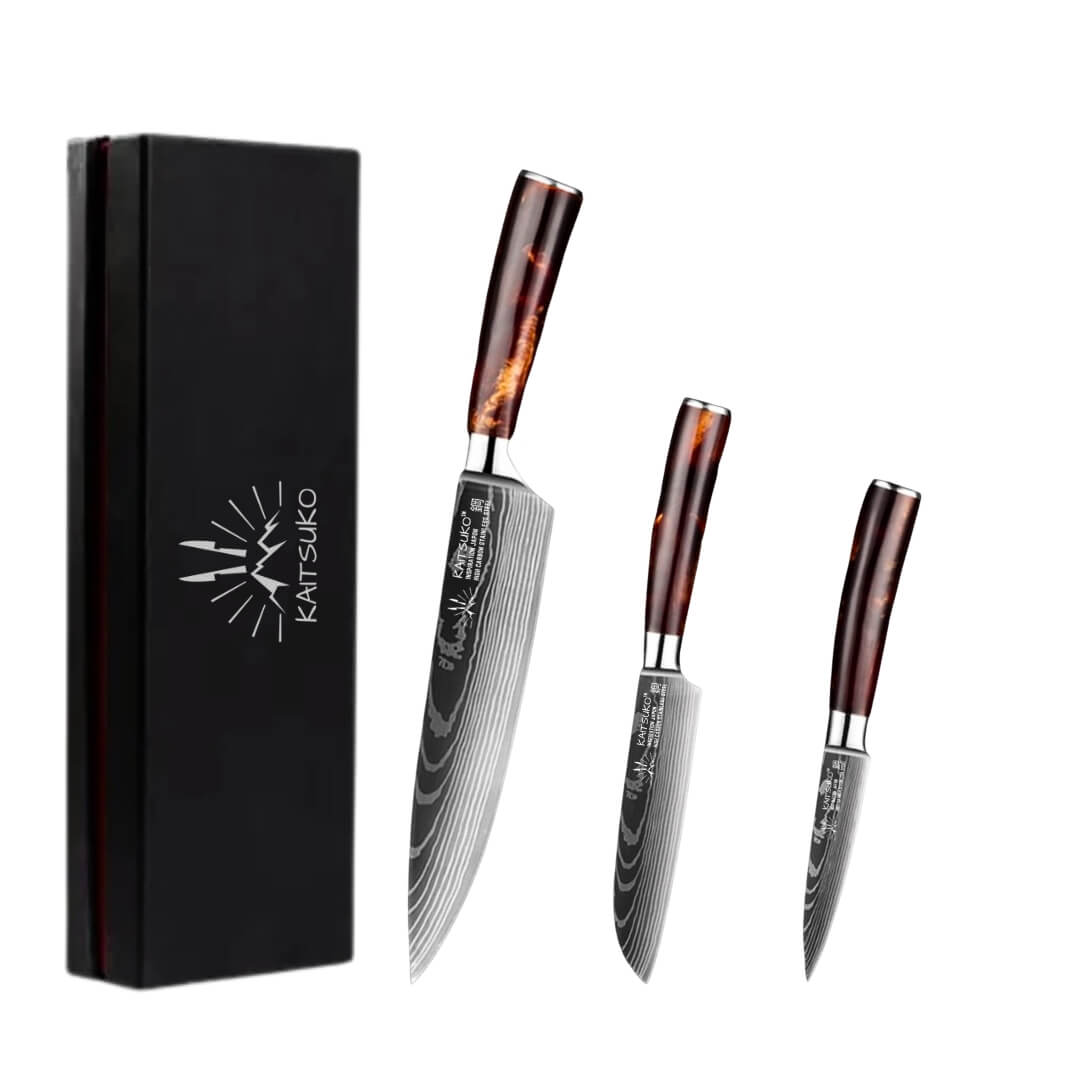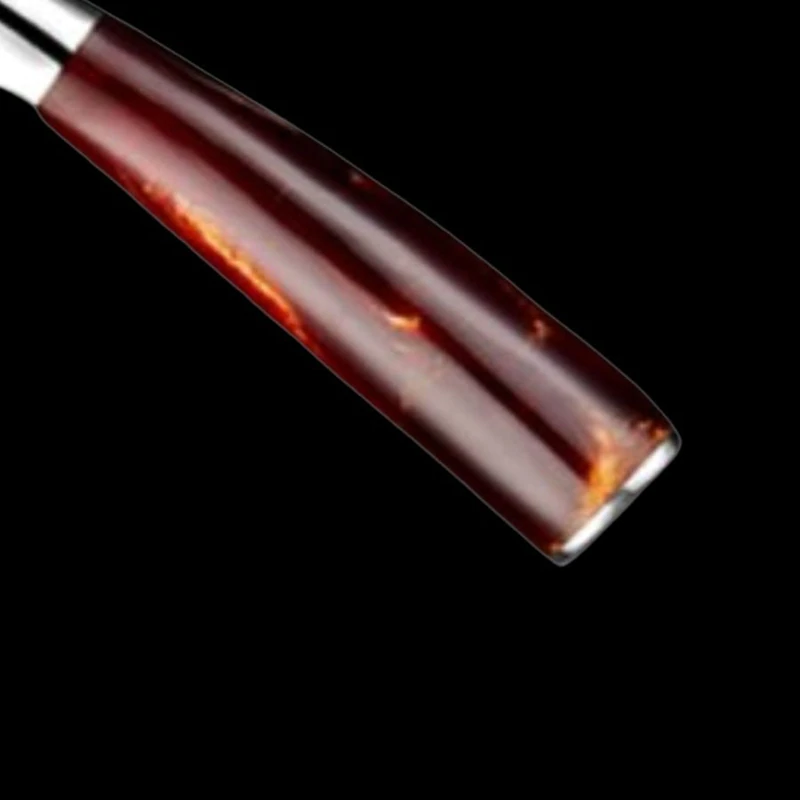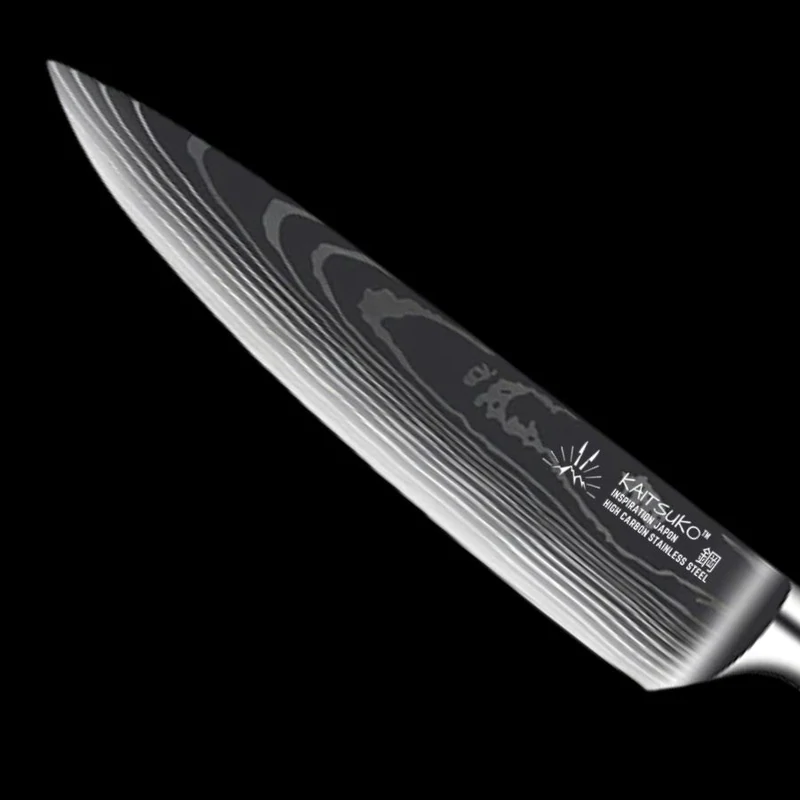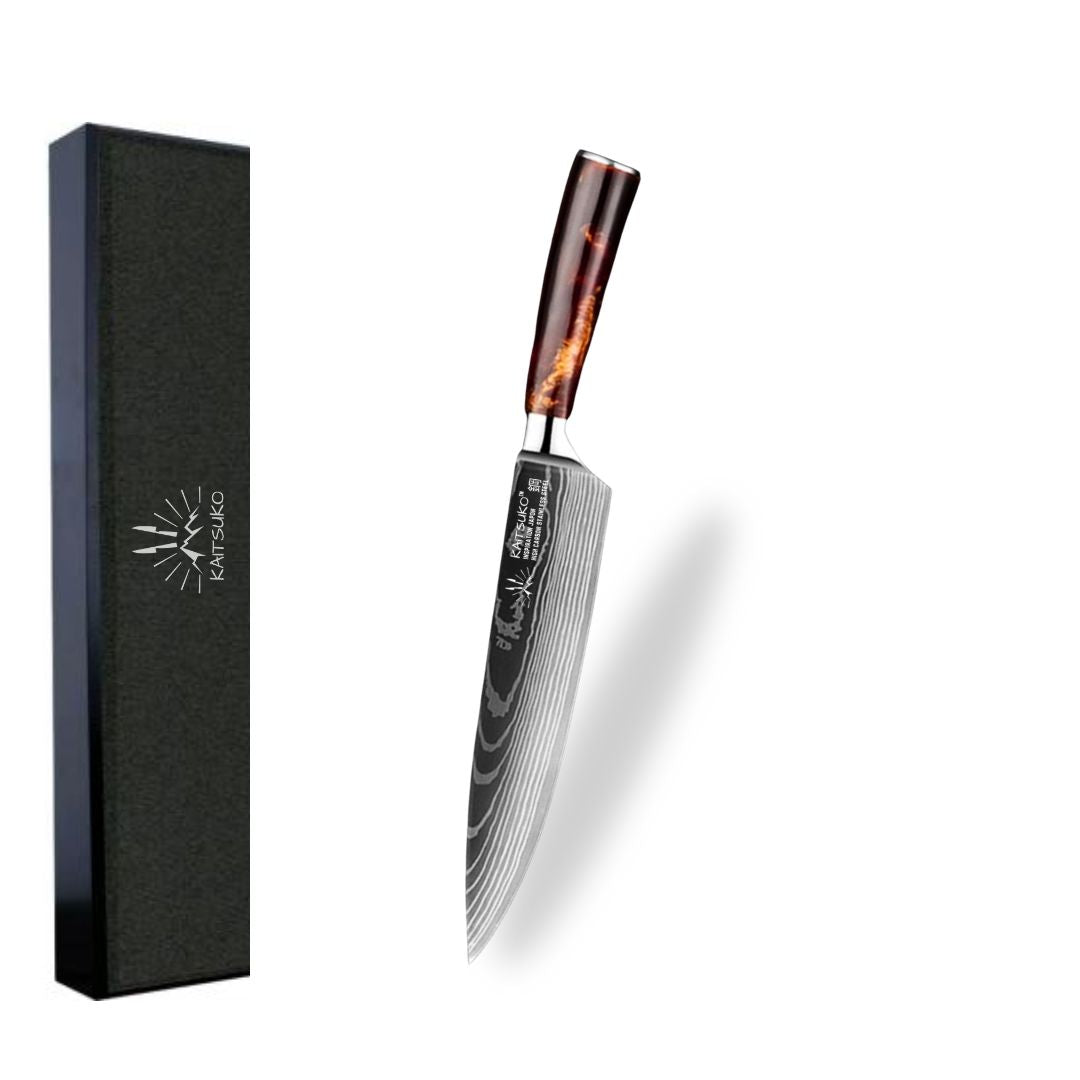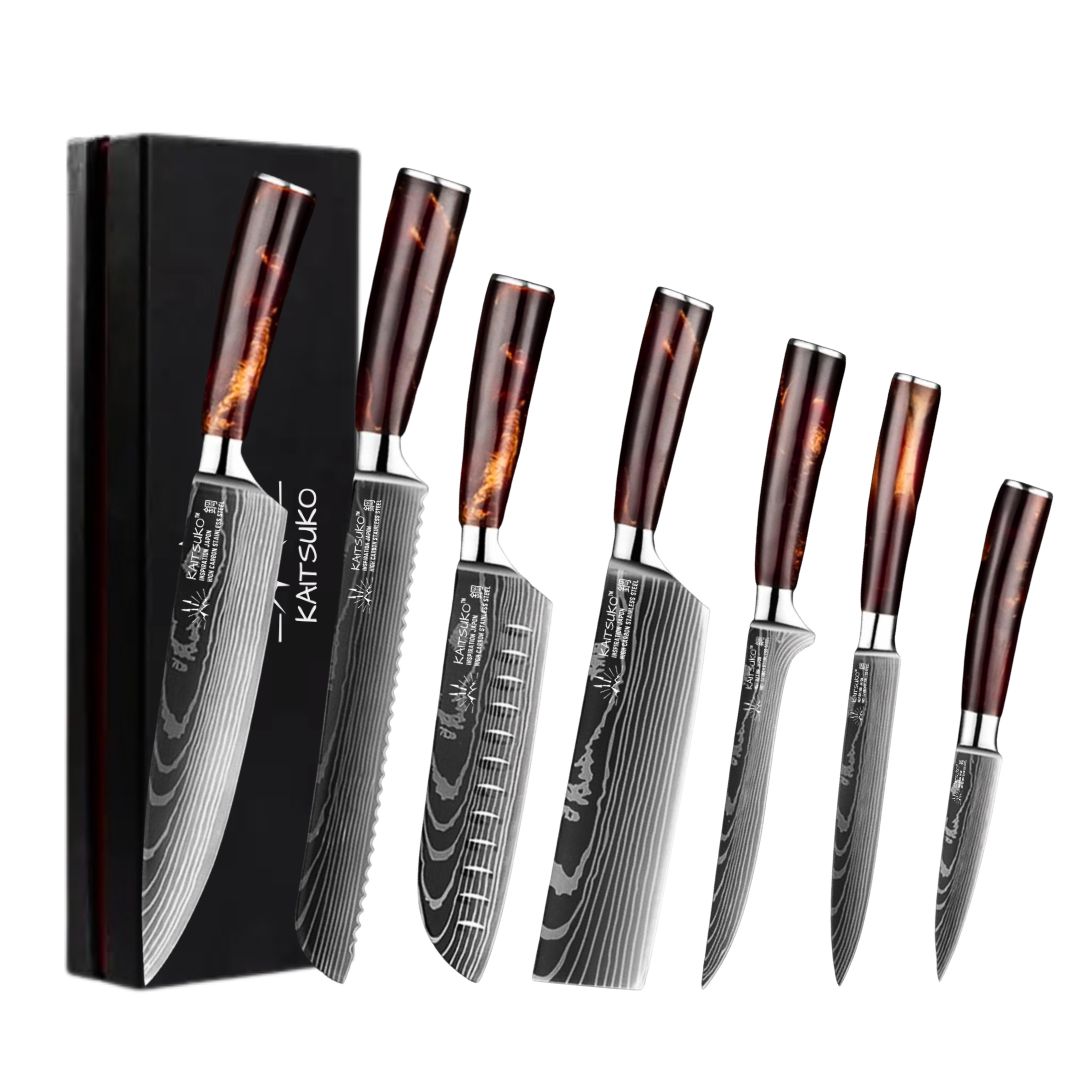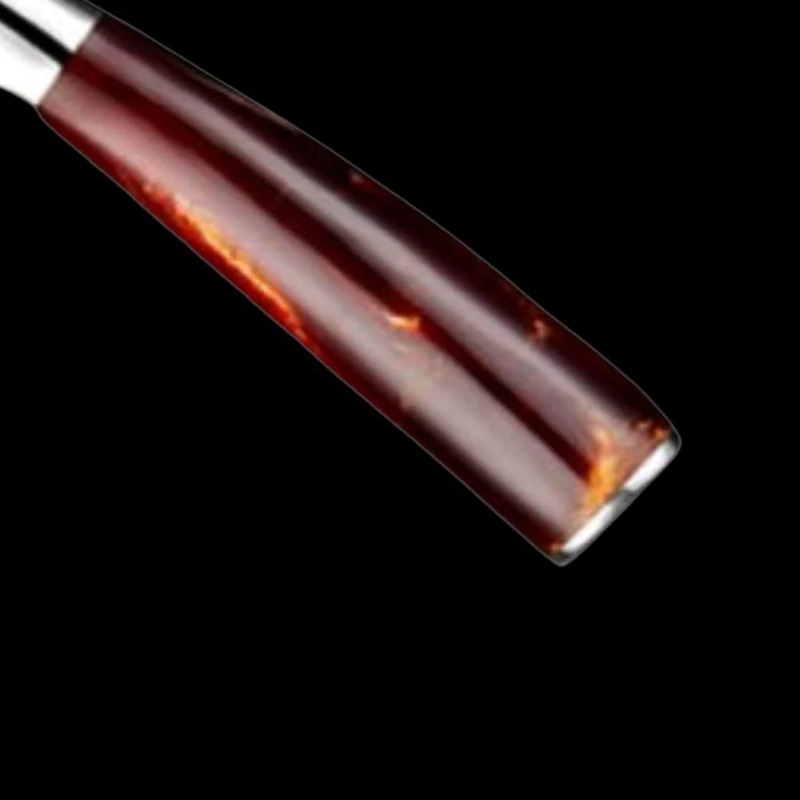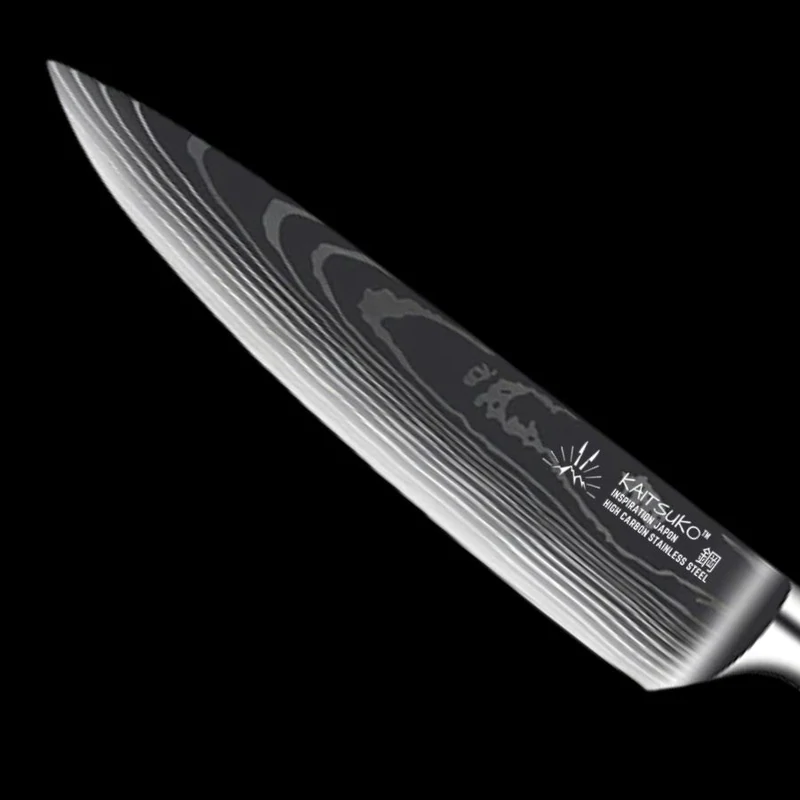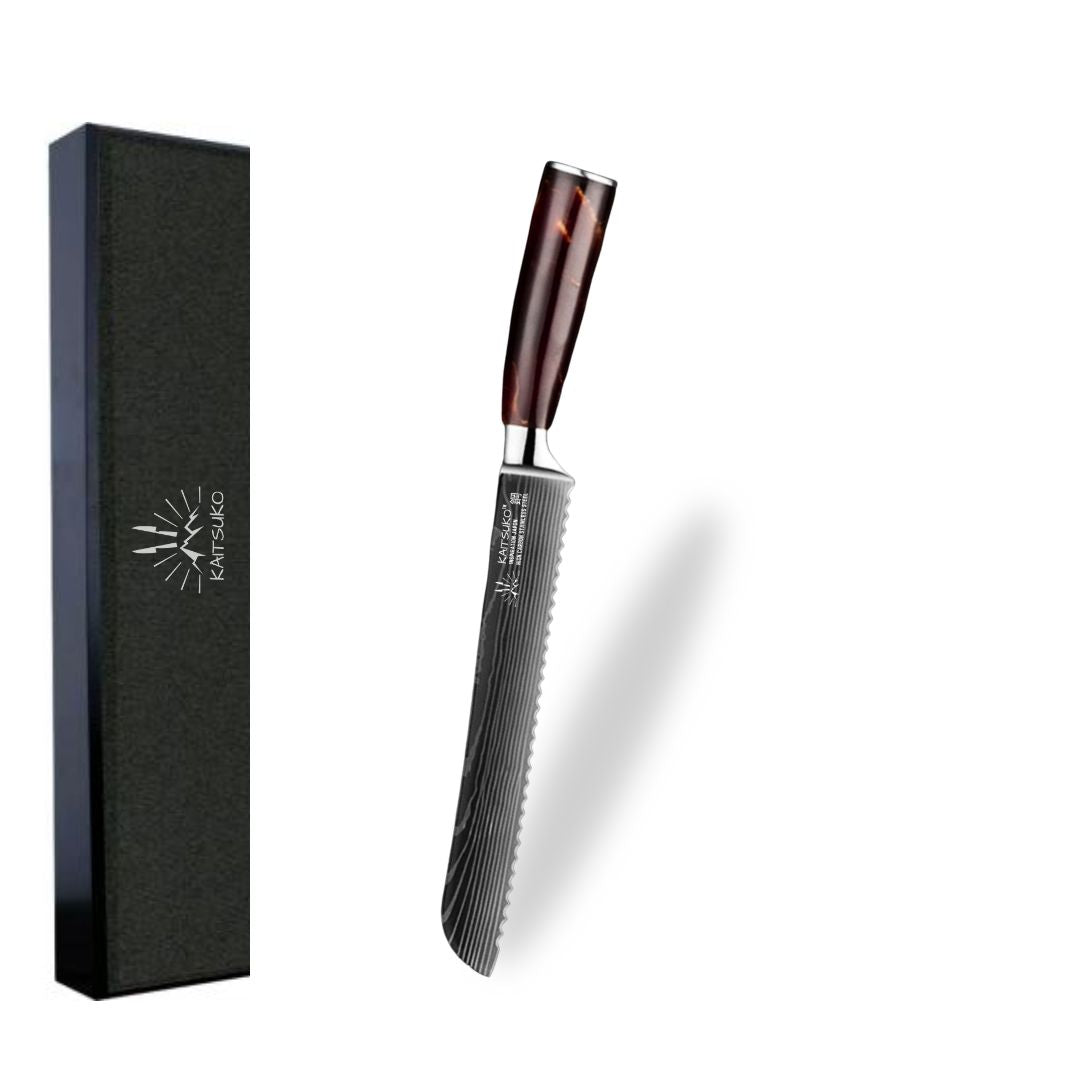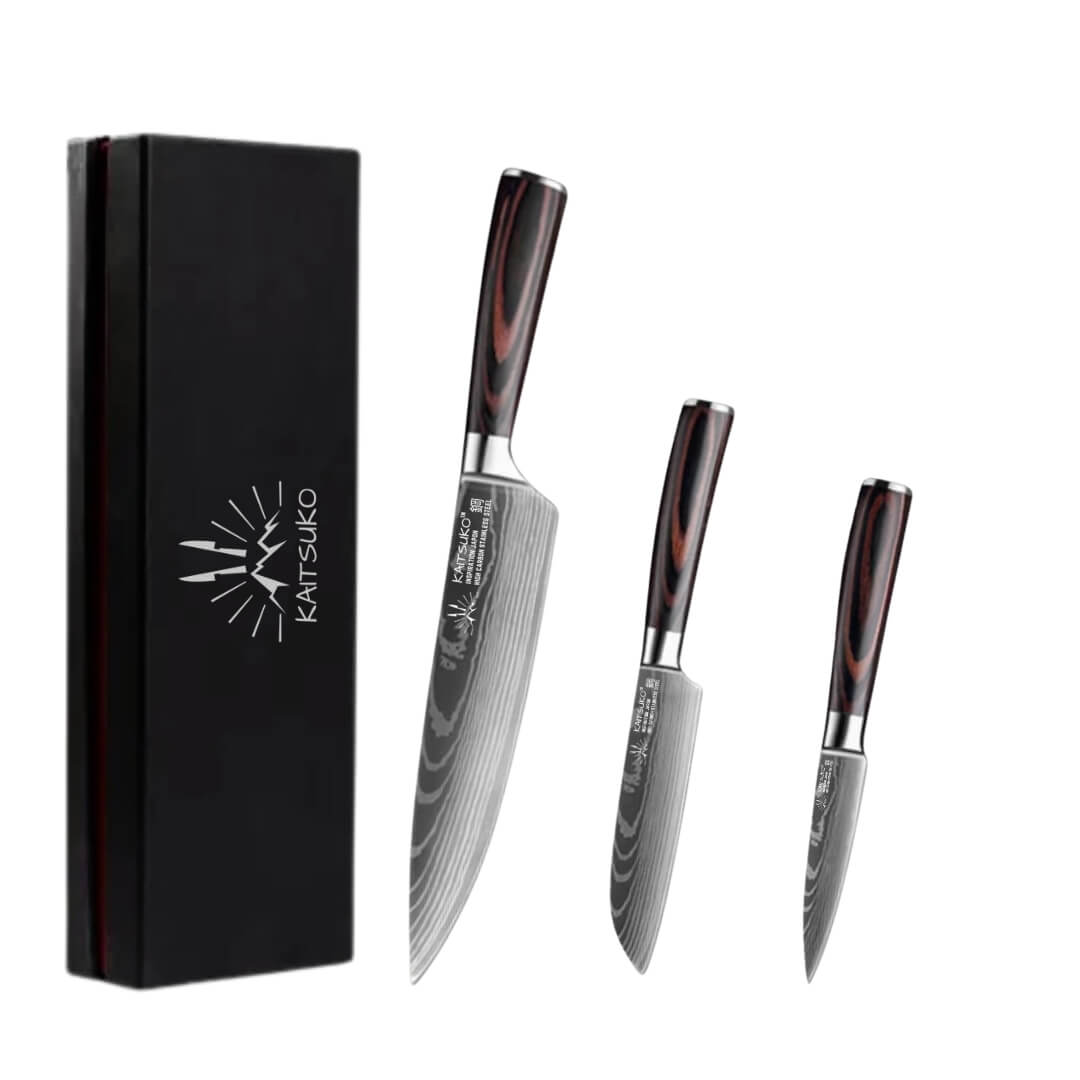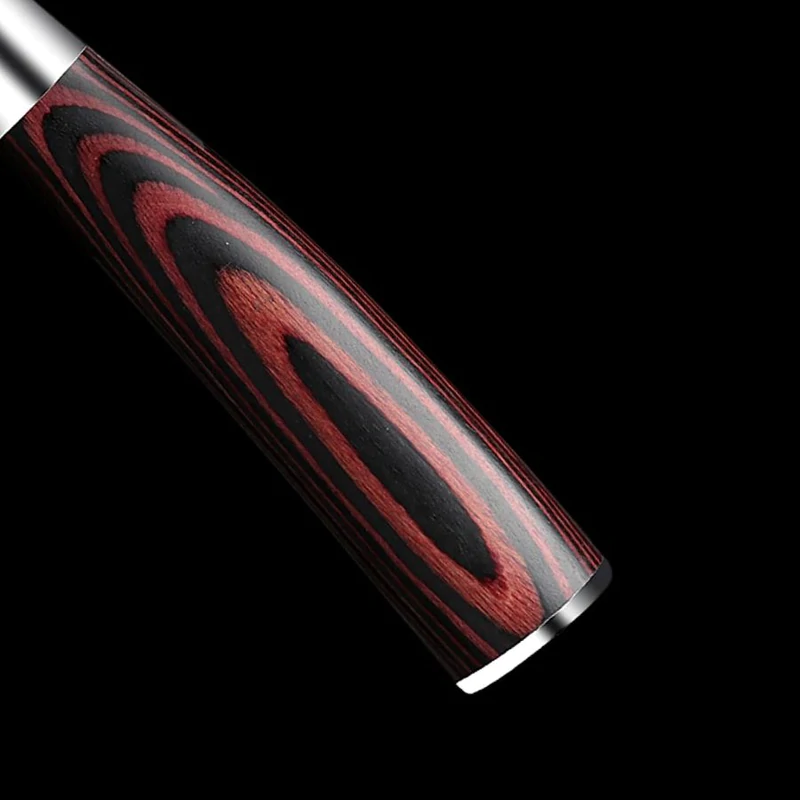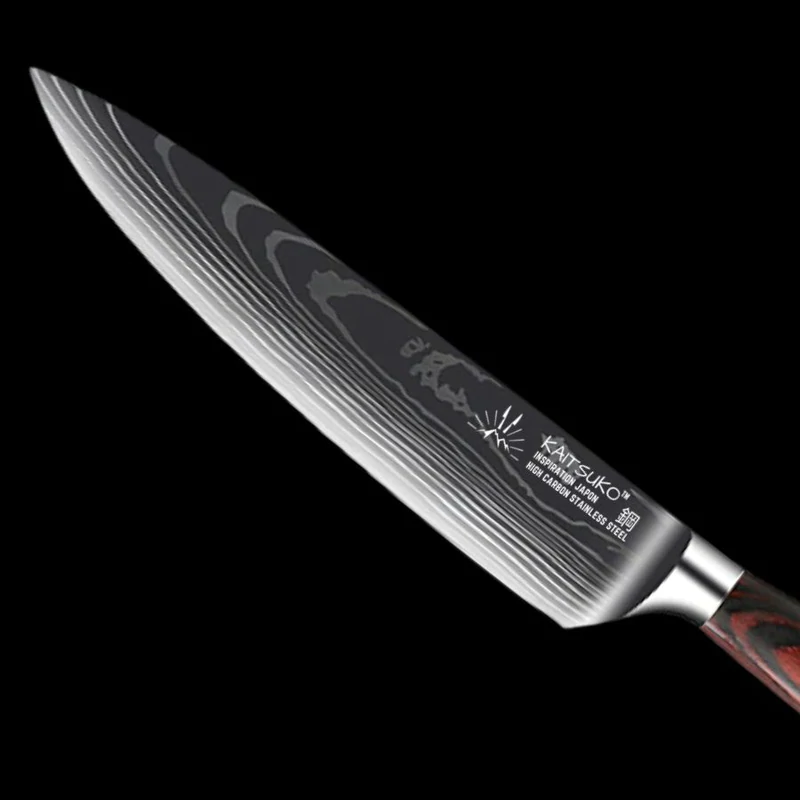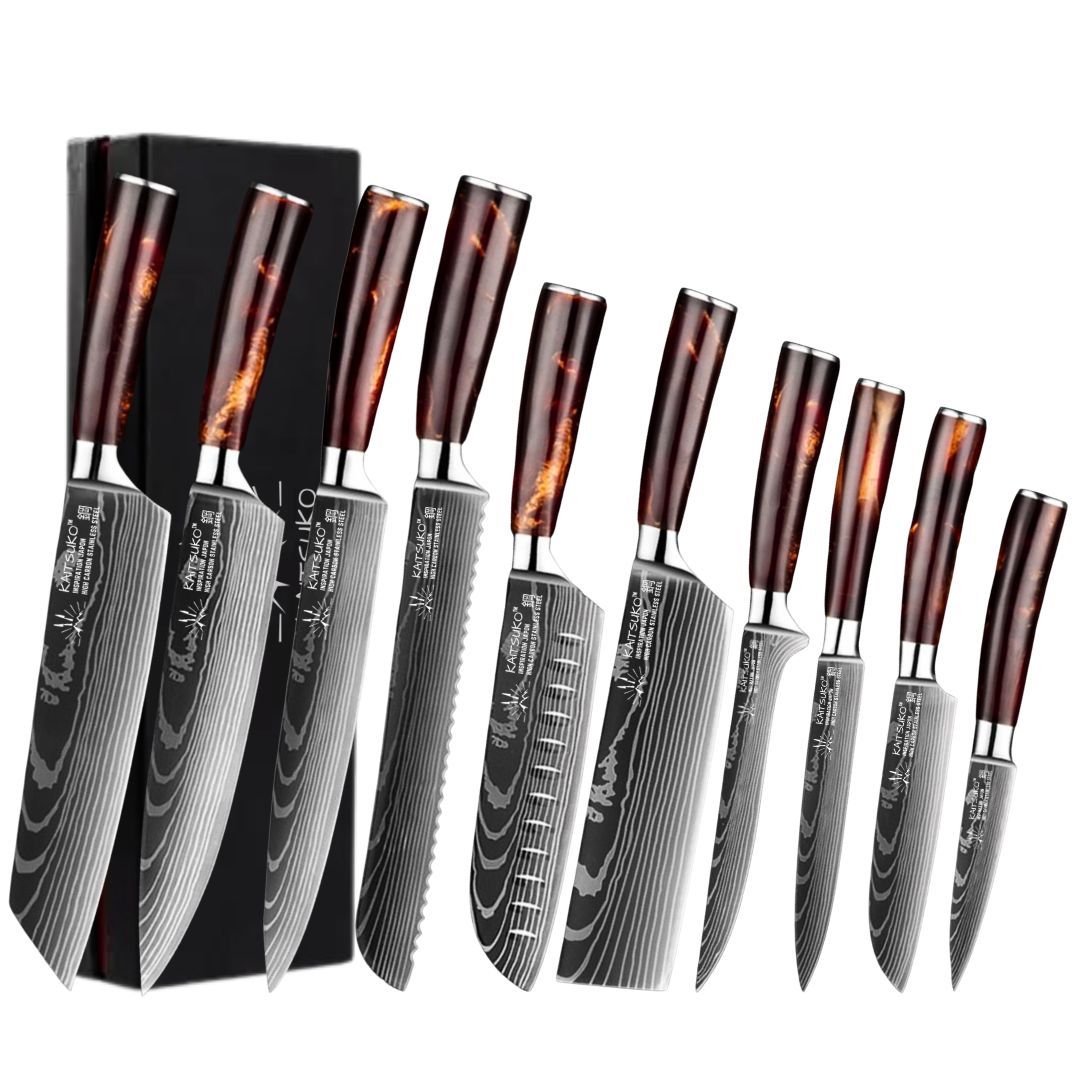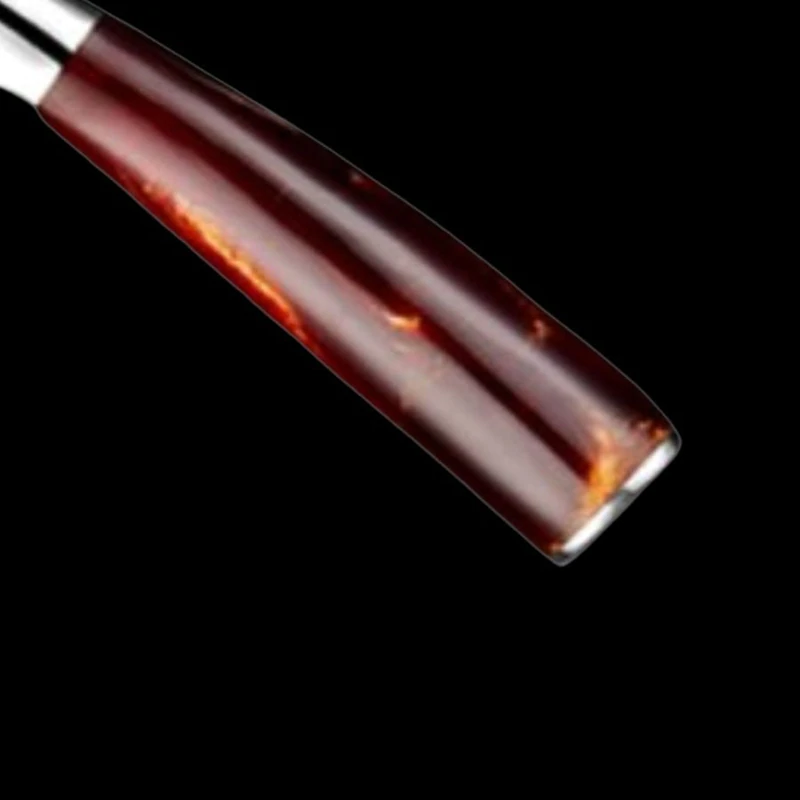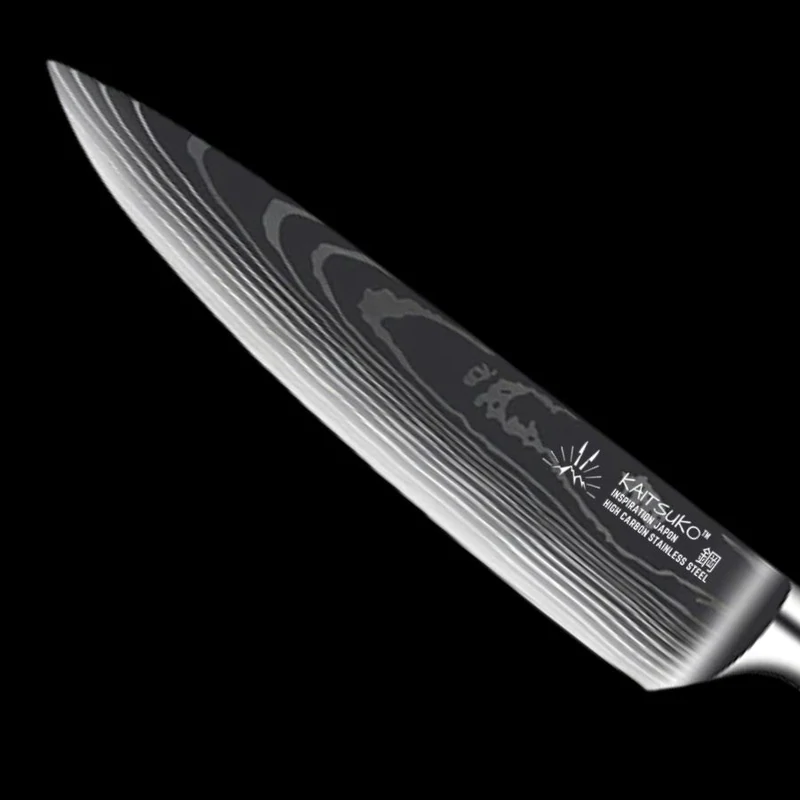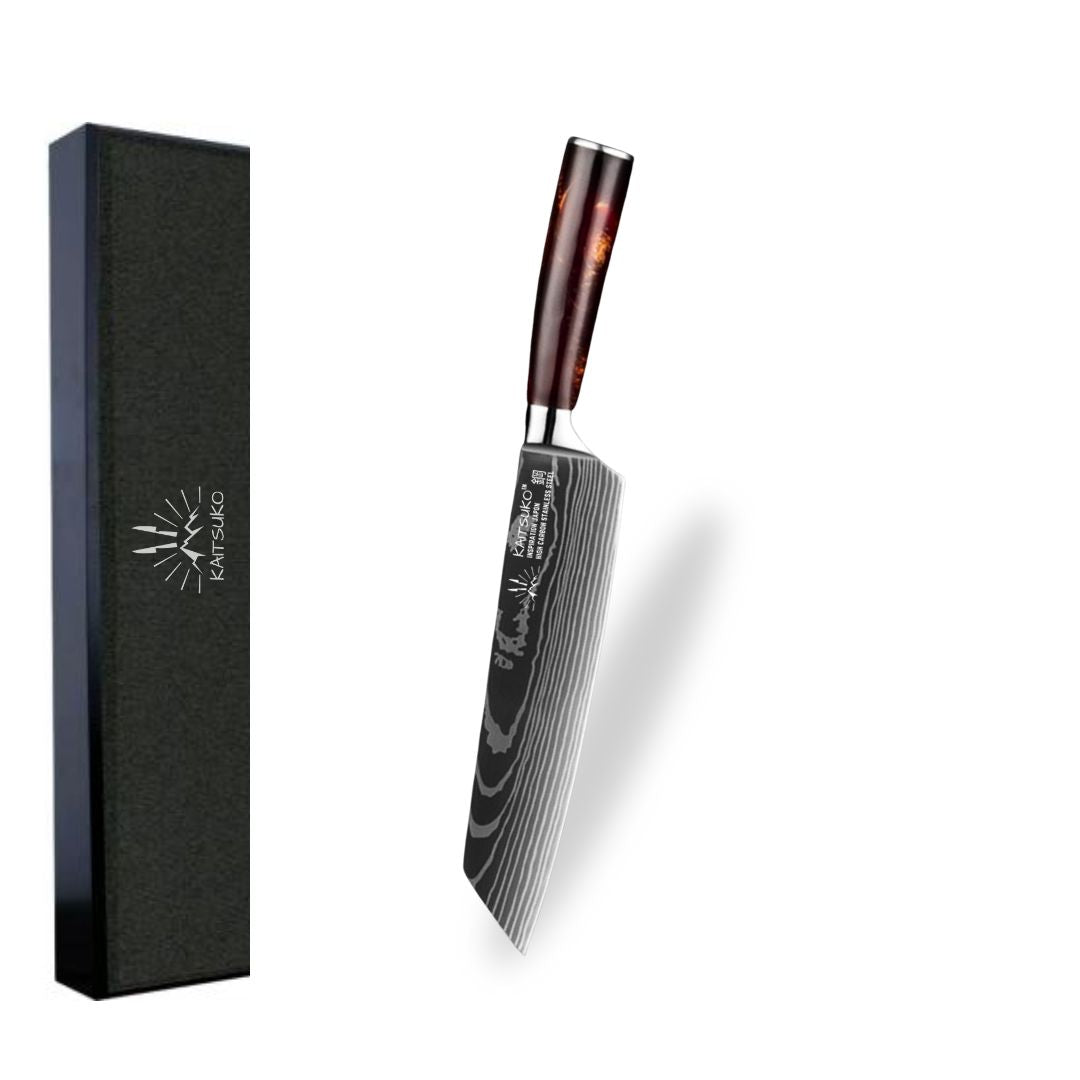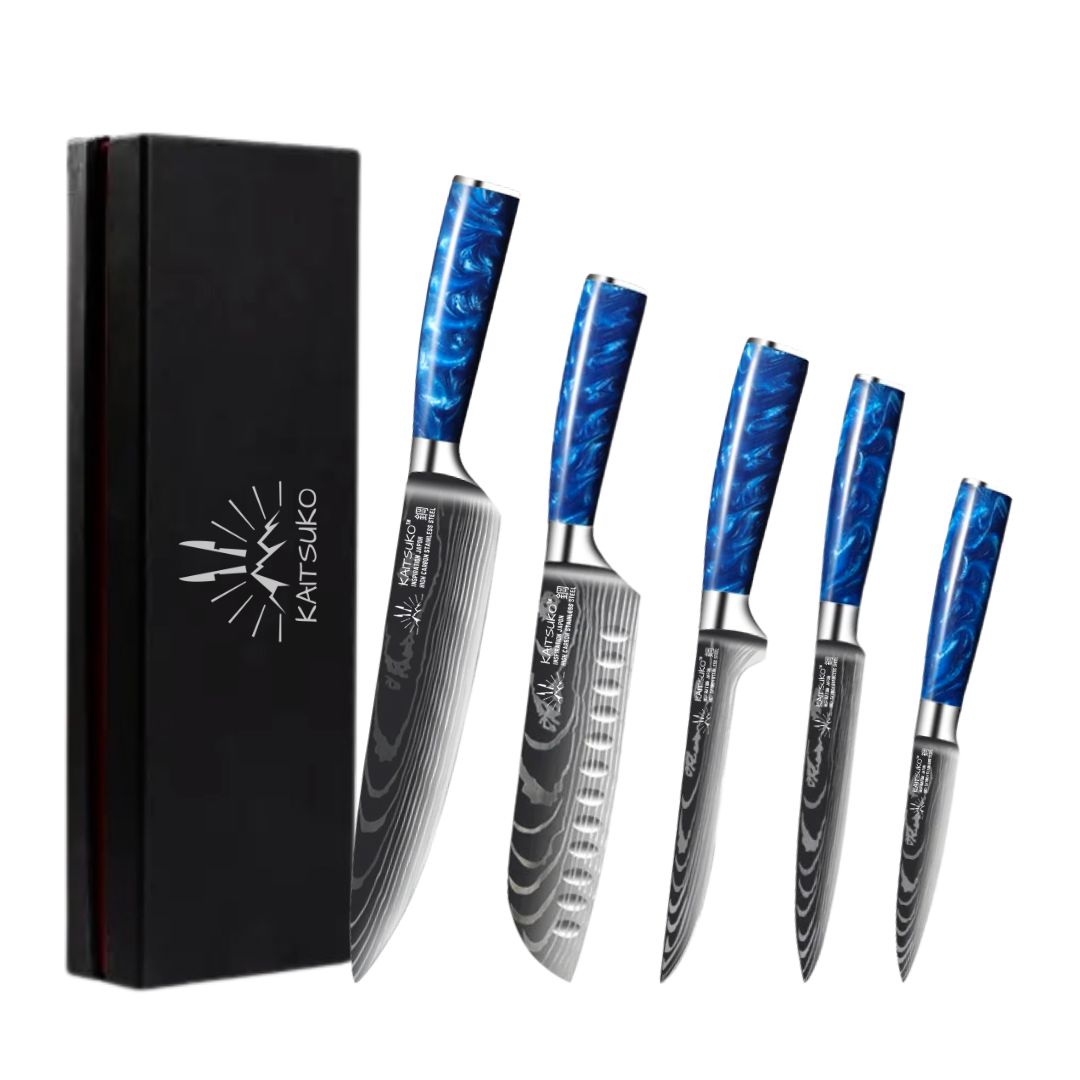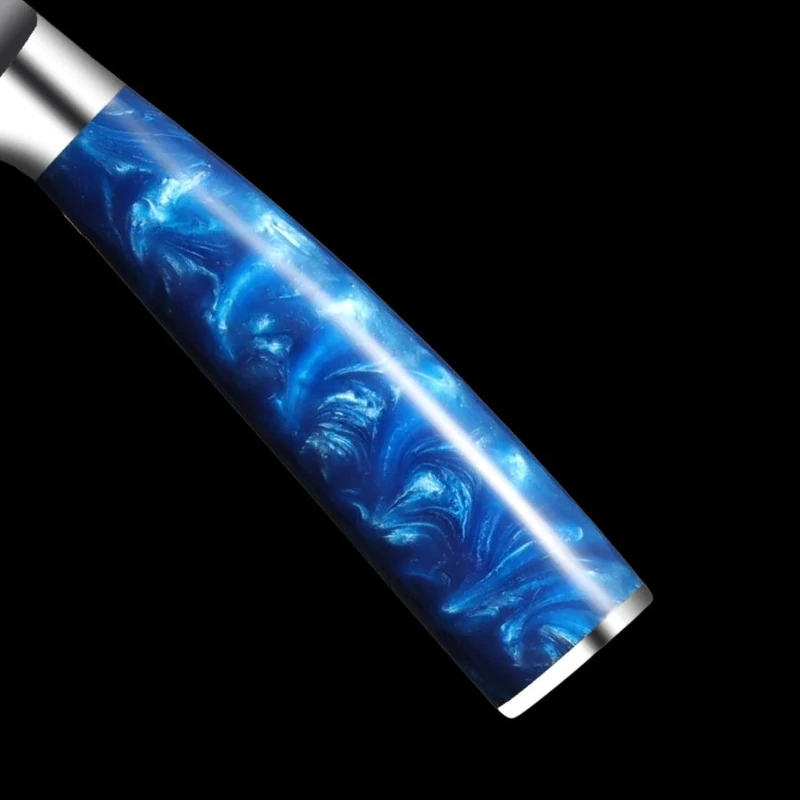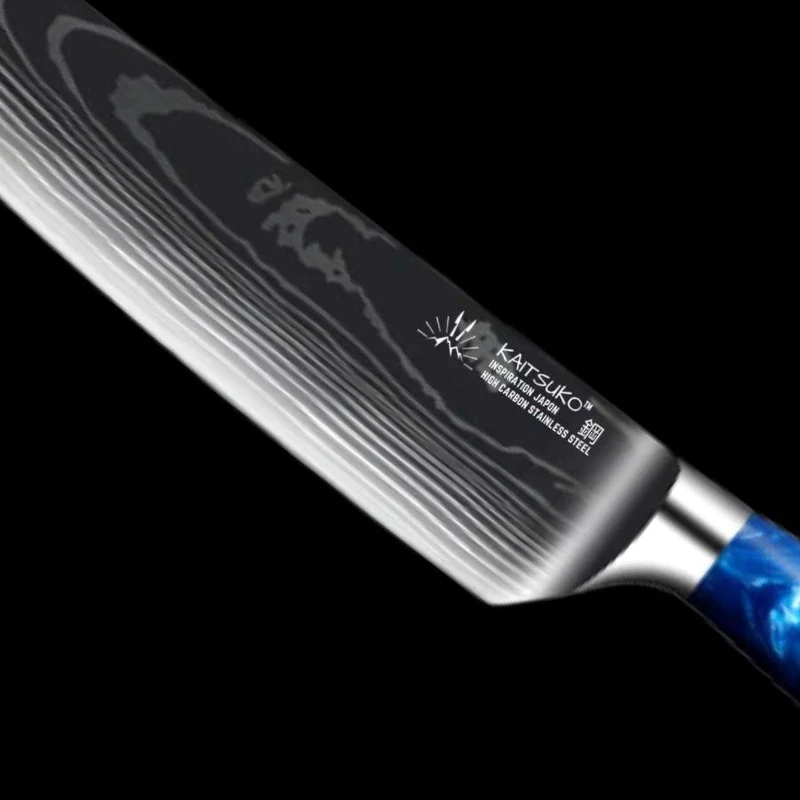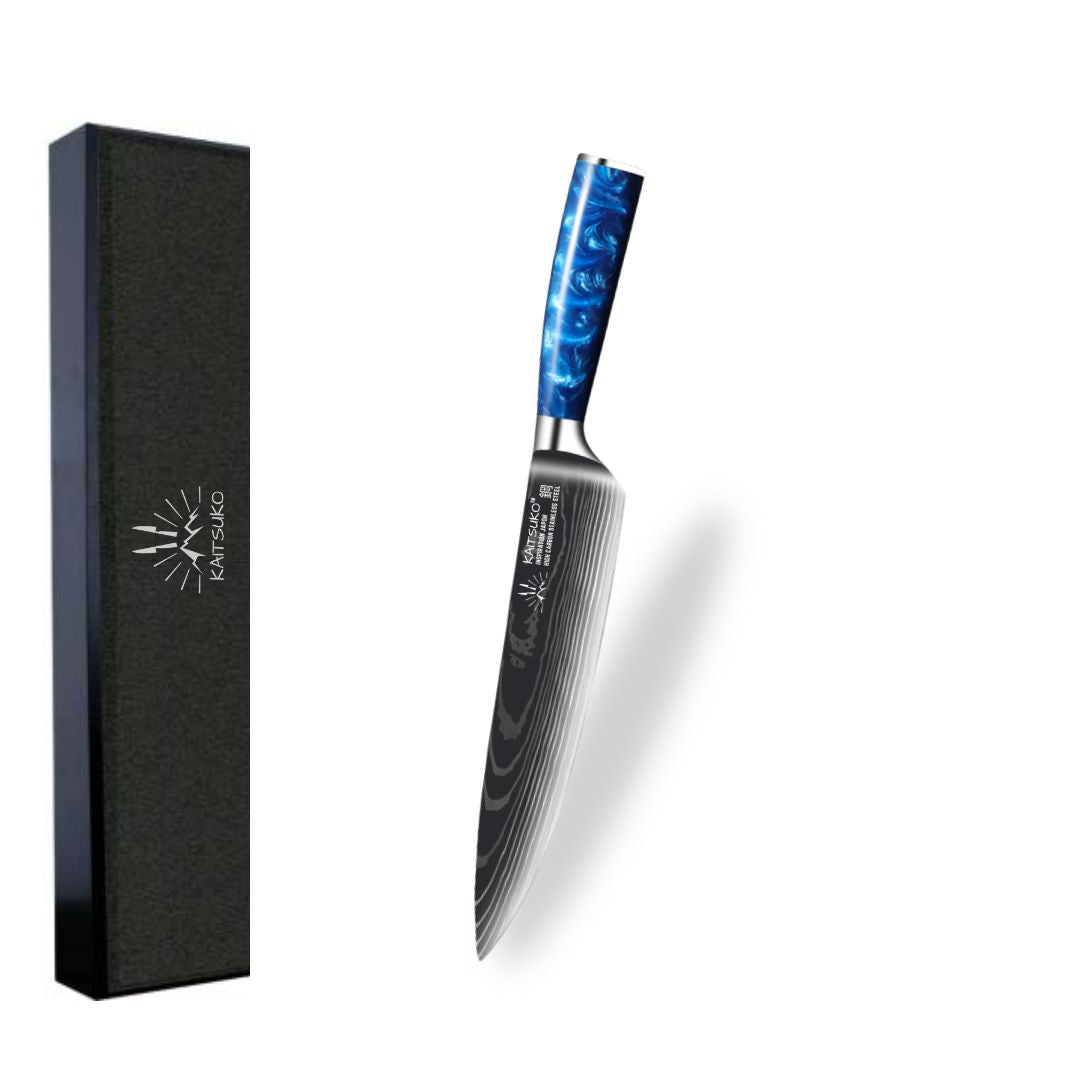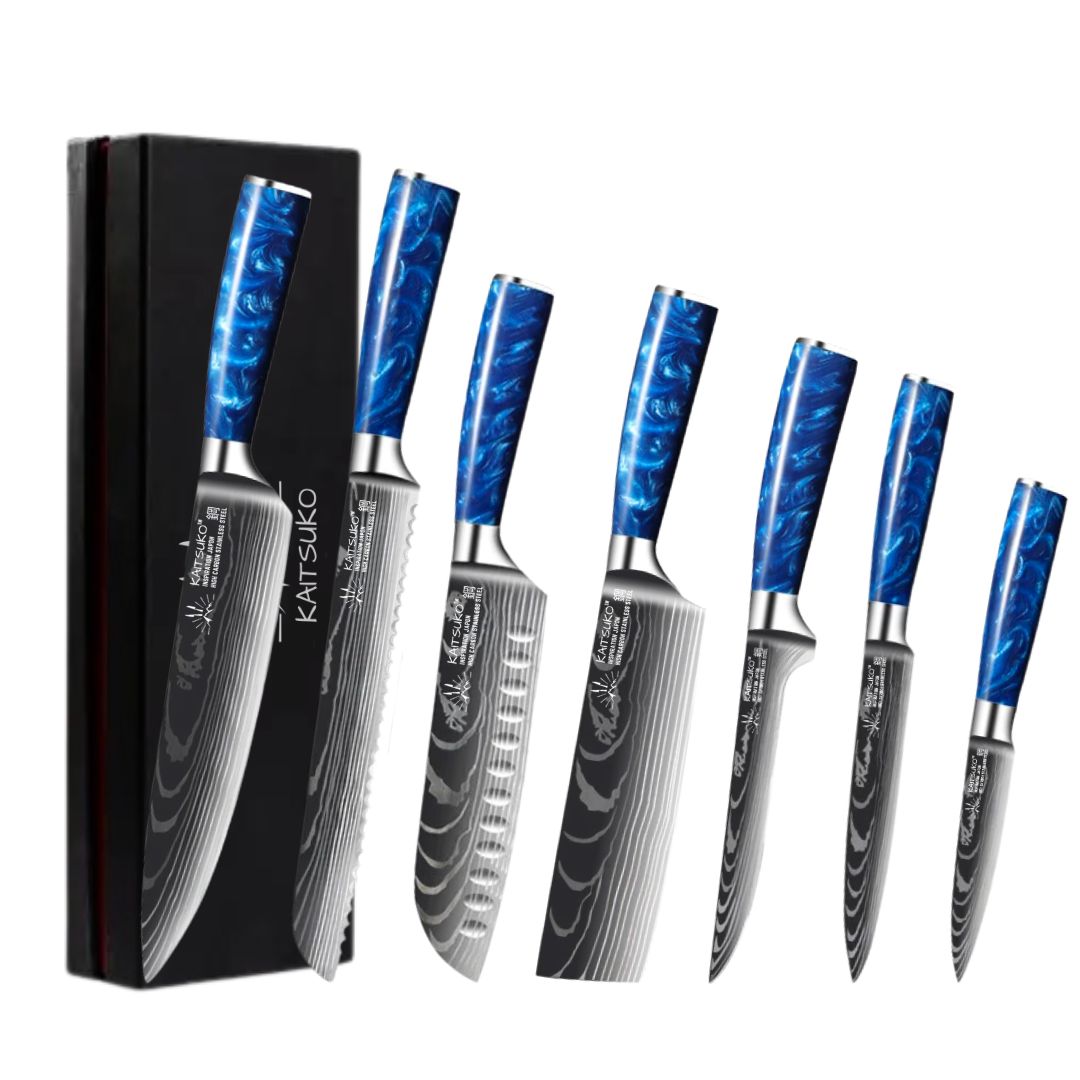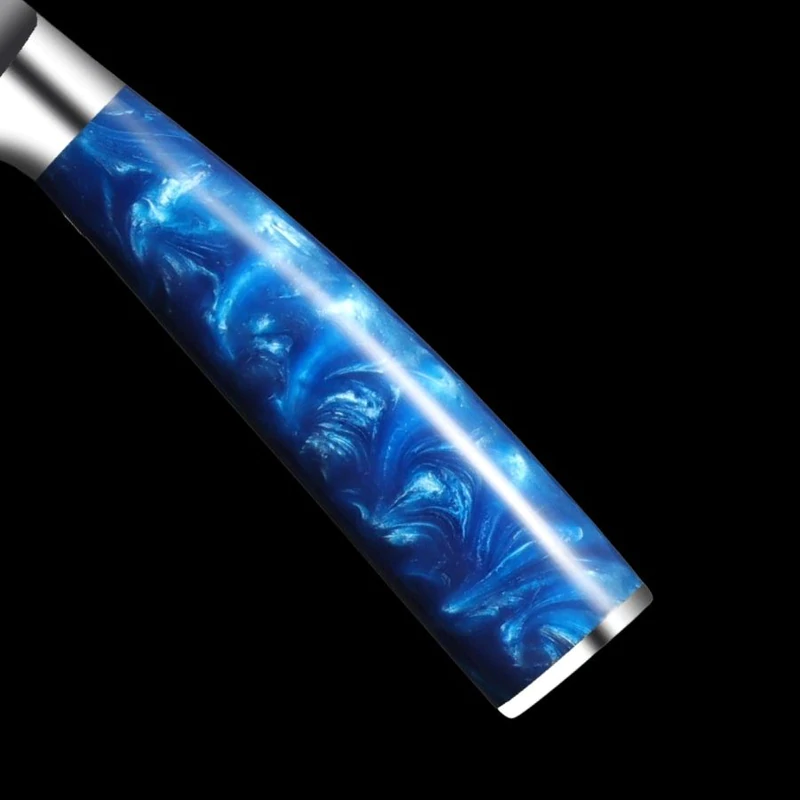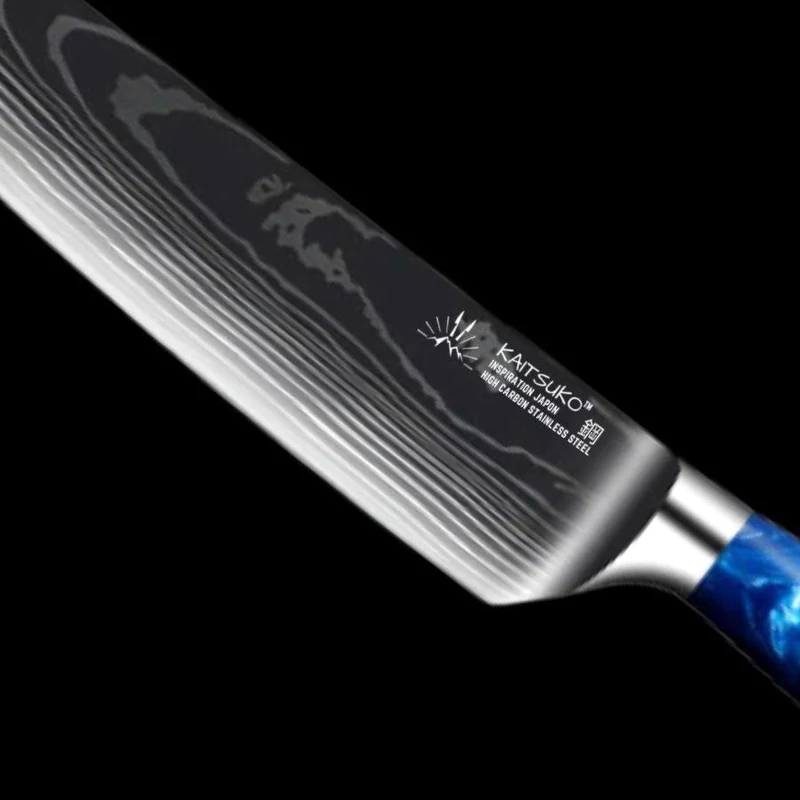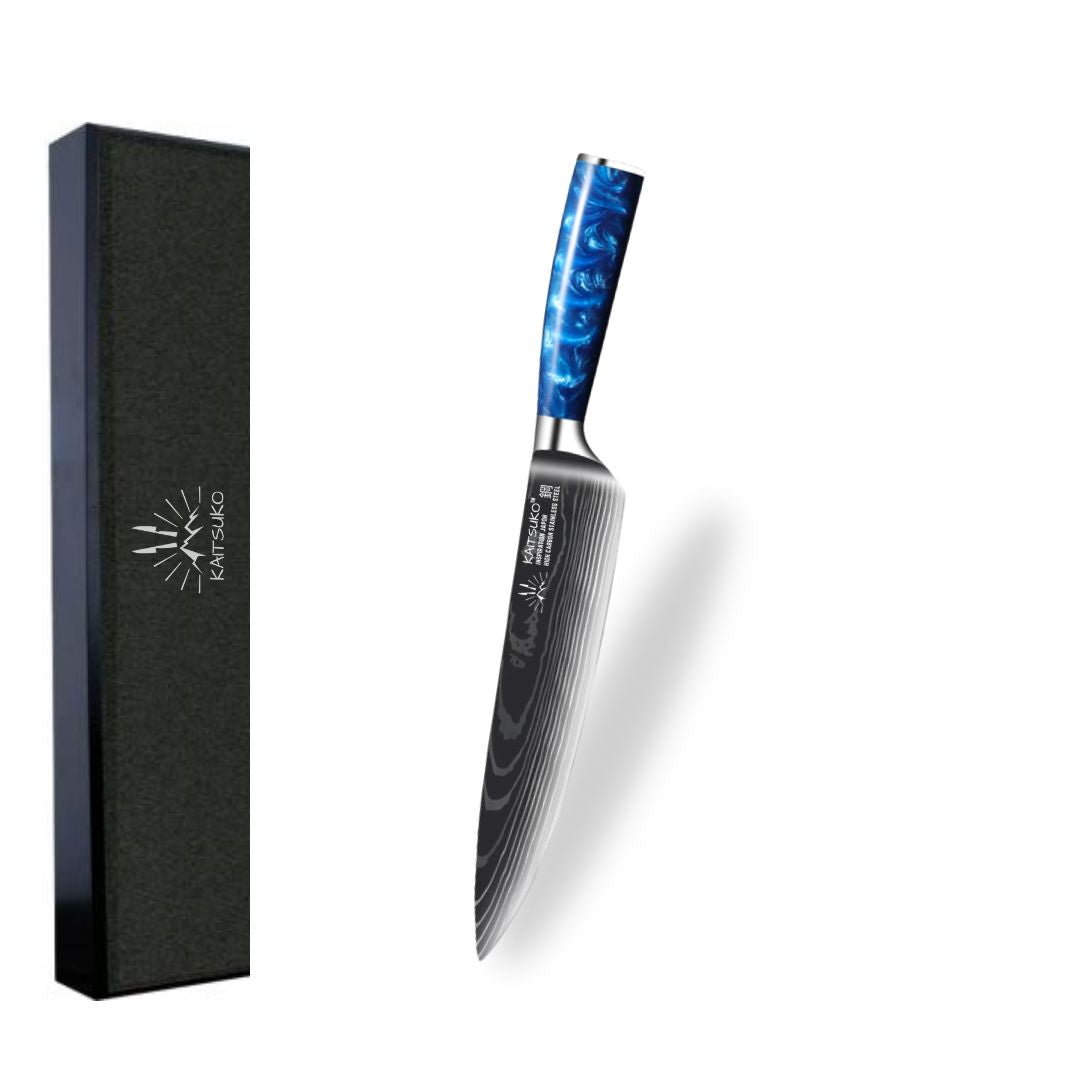Kitchen Knife Sets - Kaitsuko
A quality kitchen knife set can significantly transform your daily cooking experience. The right knives can make meal preparation faster, easier, and most importantly, more enjoyable.
Whether you're preparing vegetables for a salad, cutting meat, or simply slicing fresh bread, a well-chosen set can make all the difference.
Discover how carefully selected kitchen knives can simplify your cooking, elevate your dishes, and ensure optimal comfort while using them!
Why Invest in a Kitchen Knife Set?
The Benefits of a Complete Knife Set
Investing in a kitchen knife set means ensuring you'll work with adapted and efficient kitchen tools.
Instead of settling for a single knife that will never be perfect for all your tasks, a complete set will provide you with a specific knife for each need, resulting in increased precision, considerable time savings, and enhanced kitchen safety.
Here's a summary of the main advantages of a complete knife set:
- Versatility: Each knife is designed for a specific task
- Safety: Using the right knife for the right task significantly reduces the risk of accidents and cuts
- Durability: Quality sets, such as those offered by Kaitsuko, are manufactured with resistant and durable materials
- Aesthetics: A beautiful knife set on your countertop adds an elegant touch to any kitchen
- Long-term savings: Keep in mind that investing in a good knife set will prevent you from having to buy individual knives at often higher prices
Why Choose a Knife Set Rather Than Individual Knives?
By choosing a proper knife set instead of individual knives, you're prioritizing practicality and consistency.
In other words, a well-designed set represents a complete range of knives perfectly adapted to different uses, allowing you to optimize the adaptability of your knives while avoiding potential impulse purchases in the future.
Ultimate advantage: knives from the same set are designed to work together, with harmonized balance and handling.
How to Choose a Kitchen Knife Set?
Criteria to Consider (Materials, Blade Type, Ergonomics)
If you're still hesitating between several kitchen knife sets, here are the main criteria to analyze during your search:
- Materials: Favor blades made of stainless steel, Damascus steel, or carbon steel, which combine sharpness, corrosion resistance, and easy maintenance. Be careful with ceramic blade sets, which are light and ultra-sharp but much more fragile
- Blade type: Smooth blades are ideal for clean and precise cuts, while serrated blades are perfect for foods with hard crusts or thick skin, like bread or tomatoes. A good set should include a mix of these different blade types
- Ergonomics: The quality of the grip remains essential for comfortable and safe use of your knives
- Number of pieces: Choose a set that includes basic knives like the chef's knife, paring knife, and bread knife, but can also include other useful elements like a boning knife or kitchen scissors! You'll be fully equipped for any situation
Which Knife Type for Which Use? (Chef, Santoku, Paring...)
The first thing to know is that each kitchen knife has a specific role. Understanding their specificities will allow you to make the best use of their functionalities and your culinary talents.
First example with the chef's knife, the most versatile of all. With its wide blade and pointed tip, it's perfect for chopping, slicing, or mincing vegetables, herbs, and even meat pieces. It's an essential found in all professional kitchens!
The Santoku knife, of Japanese origin, stands out with its shorter and wider blade, specially designed for fine and precise cuts. It will be your best ally when preparing vegetables, fish, and boneless meats, particularly thanks to its great maneuverability and exceptional sharpness.
If you're looking for a knife that combines precision and elegance, the Santoku knives from Kaitsuko's Kyoto collection and their high-end finishes are an excellent choice!
The paring knife, while small, is indispensable. It will allow you to perform precision work like peeling, pitting, or cutting small fruits and vegetables, its short and pointed blade making it extremely manageable and precise. In Kaitsuko's Yellow Sea collection, you'll find paring knives of impeccable quality, designed to last and ensure clean cuts with each use!
Investing in a complete knife set therefore allows you to have all these different types of knives at hand, each adapted to specific tasks. Don't wait to discover our selection and bring excellence into your kitchen!
Japanese Kitchen Knife Set vs. Western Kitchen Knife Set
Japanese knives are recognized worldwide for their precision and artisanal craftsmanship. Here are the main reasons to buy a Japanese knife:
- Fine blade and exceptional sharpness: Japanese knives stand out primarily for their particularly fine blade, sharpened at a lower angle (generally around 15 degrees), giving them unmatched sharpness. It becomes very simple to make precise and clean cuts, essential for delicate preparations like sashimi
- High-quality steel: Japanese knives are often made of high-carbon steel, like VG-10 or Blue Steel. Why? Simply because they are very renowned for their ability to maintain their edge longer
- Ergonomic handle: Traditionally, Japanese knives have a wooden handle, often magnolia wood. The interest of this design lies in the fact that it promotes perfect balance in hand while reducing fatigue during long cutting sessions
- Refined aesthetics: Japanese knives are also appreciated for their beauty. The hammered finishes (tsuchime), Damascus patterns on the blade, and handle details make them true works of art, in addition to being high-performance tools!
Comparative Table: Japanese vs. Western Kitchen Knife Sets
|
Characteristics |
Japanese Knives | Western Knives |
|---|---|---|
|
Sharpness |
Fine and precise edge, 15° angle | Robust edge, 20° to 25° angle |
|
Blade |
Thin, light, high-carbon steel | Thicker, durable stainless steel |
|
Ergonomics |
Light wooden handle, perfect balance | Heavier handle, often polymer |
|
Versatility |
Specialized for precise tasks | More versatile for daily use |
|
Durability |
Long edge retention, less maintenance | Easy to maintain, more shock-resistant |
|
Aesthetics |
Elegant design, artisanal finishes | More robust, functional appearance |
At Kaitsuko, our primary goal is to help you find the best kitchen knife through our range of high-quality Japanese knives!
Professional Kitchen Knife Set: What Does it Include?
Composition of a Professional Kitchen Knife Set
A professional kitchen knife set generally contains essential elements for any chef, such as:
- A versatile chef's knife for chopping and slicing
- A paring knife for precision work
- A serrated bread knife
- A Santoku or slicer for more delicate cuts
- A boning knife for separating meat from bones
How to Maintain Your Knives for Optimal Lifespan?
Here are some tips to extend the life of your knives:
- Sharpen them frequently with a honing steel or whetstone to maintain their edge
- Hand wash them with lukewarm water and mild detergent
- Dry them immediately to prevent corrosion
- Avoid the dishwasher, which can damage blades and handles
- Store them in a knife block or on a magnetic strip to avoid impacts and preserve their edge
Discover our accessories to care for your knives
FAQ
What makes up a kitchen knife set?
A kitchen knife set typically includes a chef's knife, a paring knife, a bread knife, and sometimes a Santoku or boning knife. Each knife is designed to meet specific kitchen needs.
How to choose a knife set adapted to your needs?
Choose a set based on the types of dishes you prepare most often! Be sure to select quality blades, good ergonomics, and a sufficient number of knives to cover your main cutting needs!






